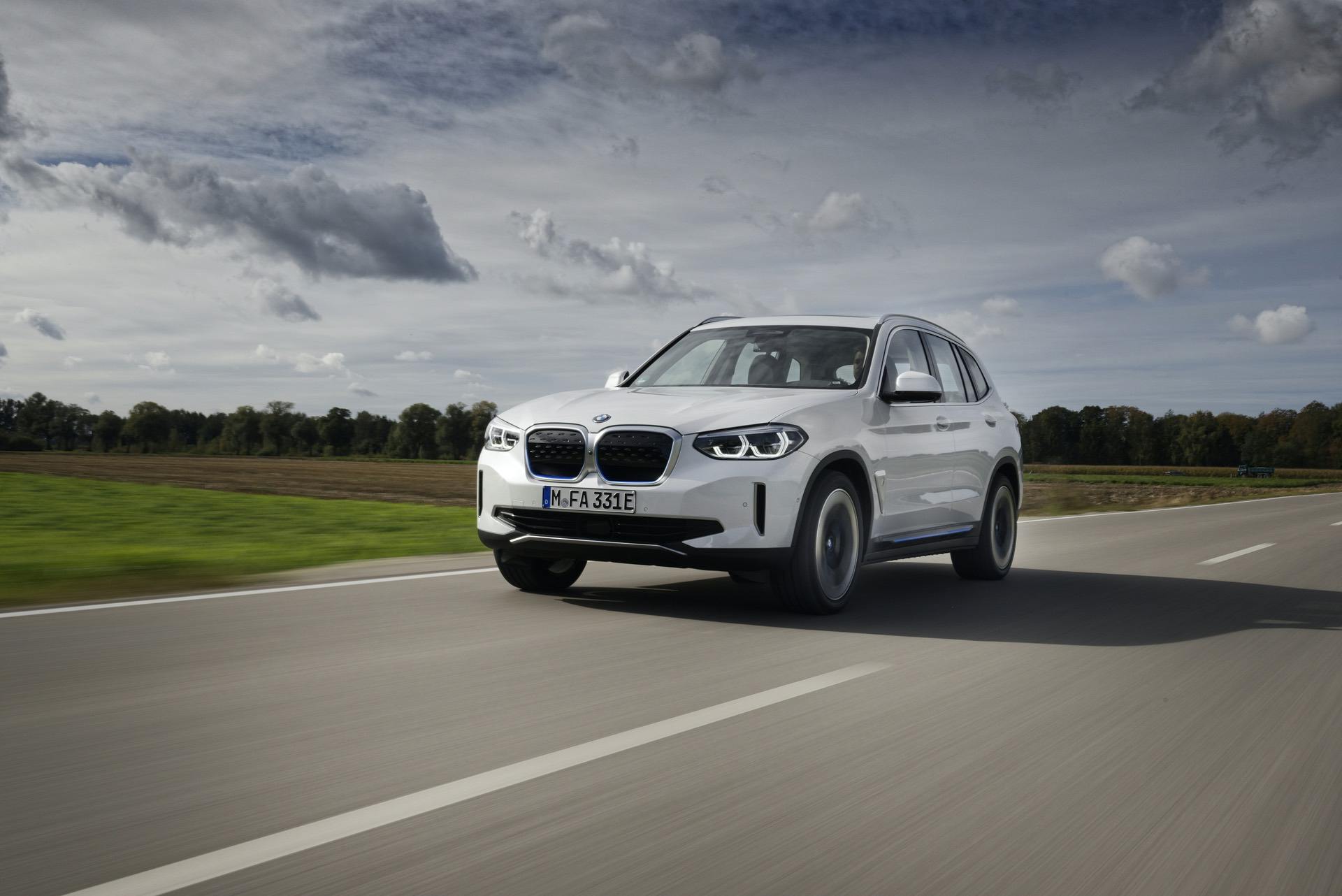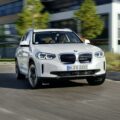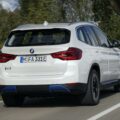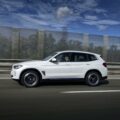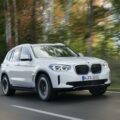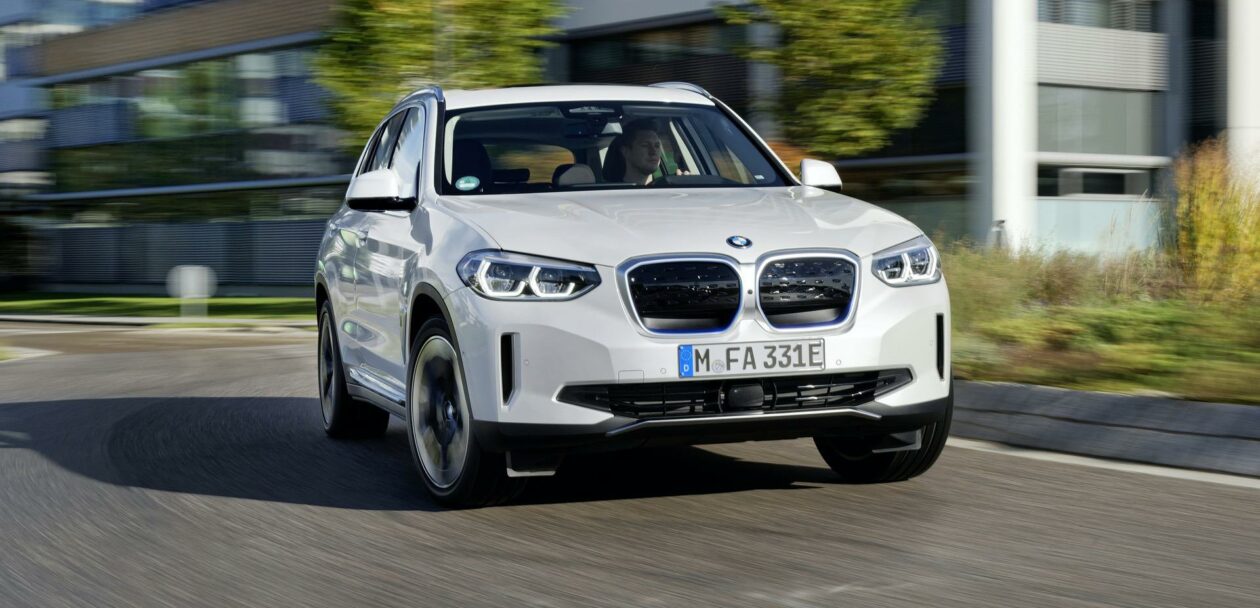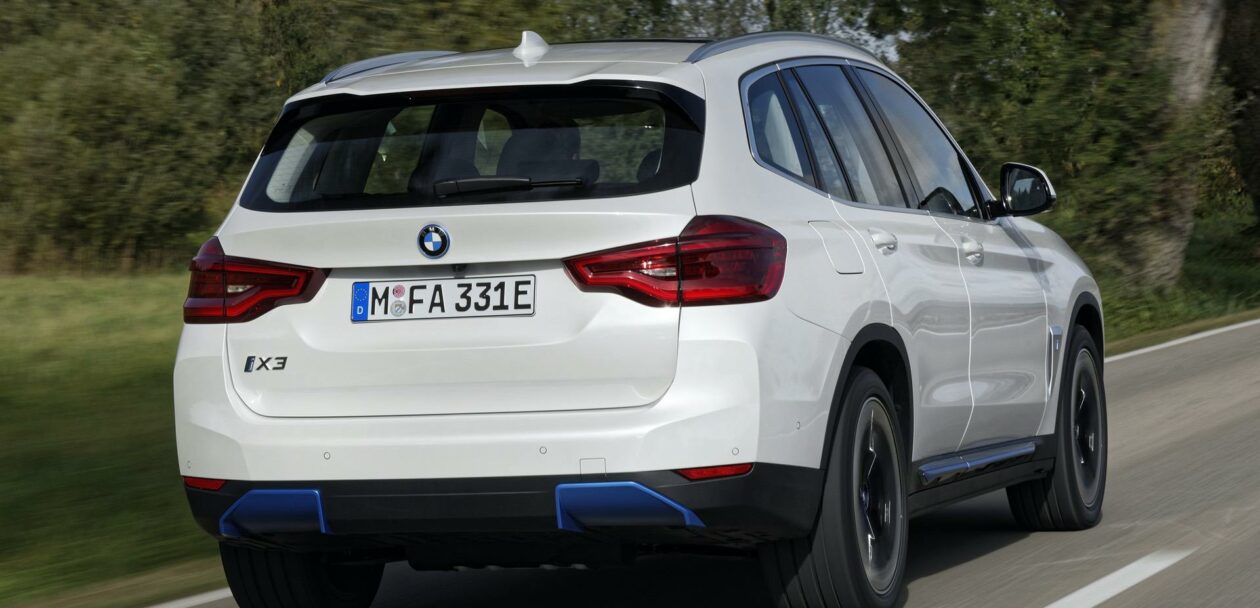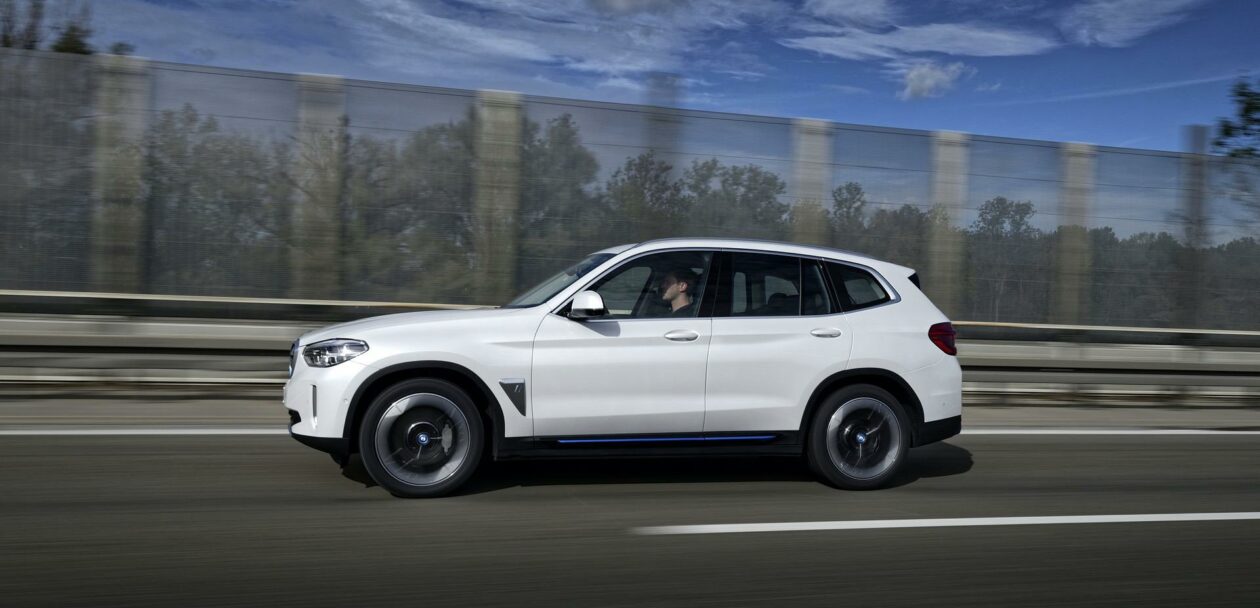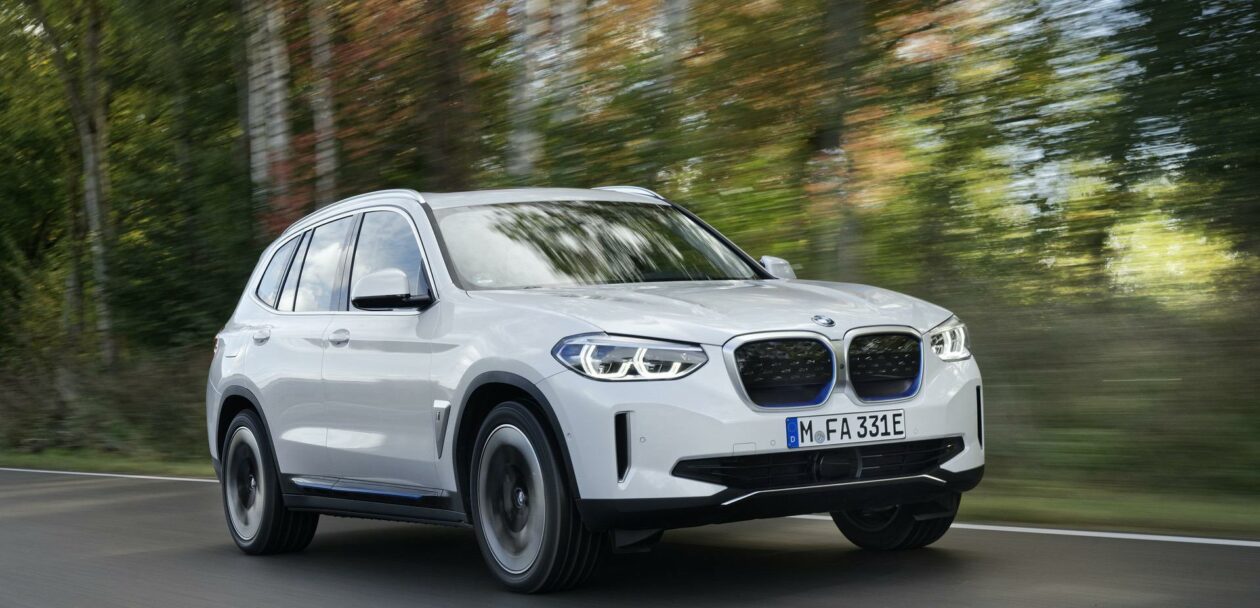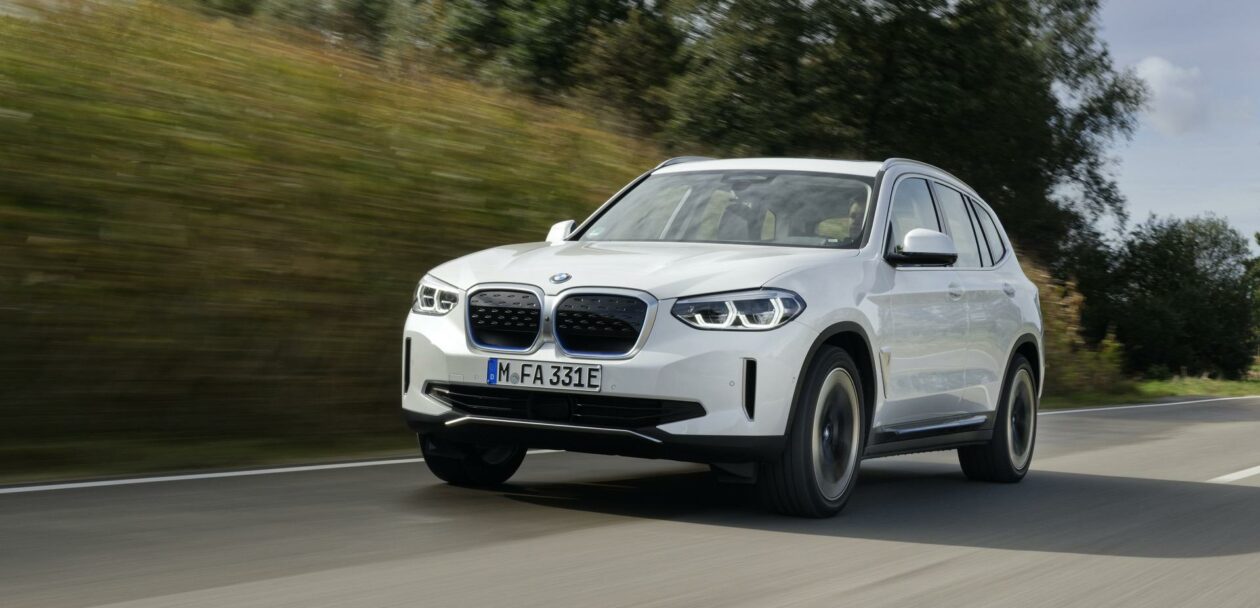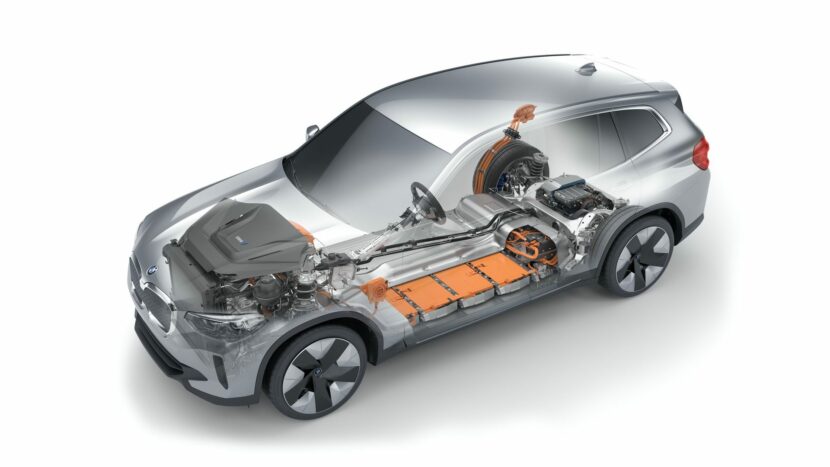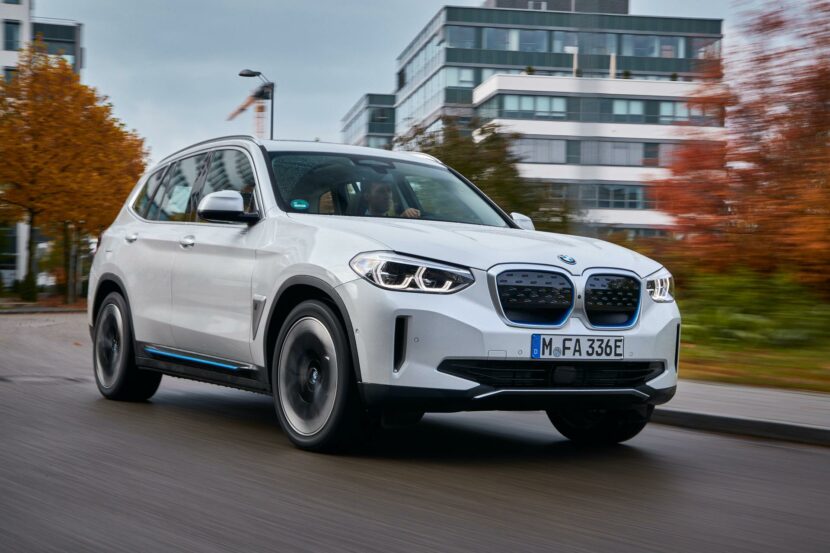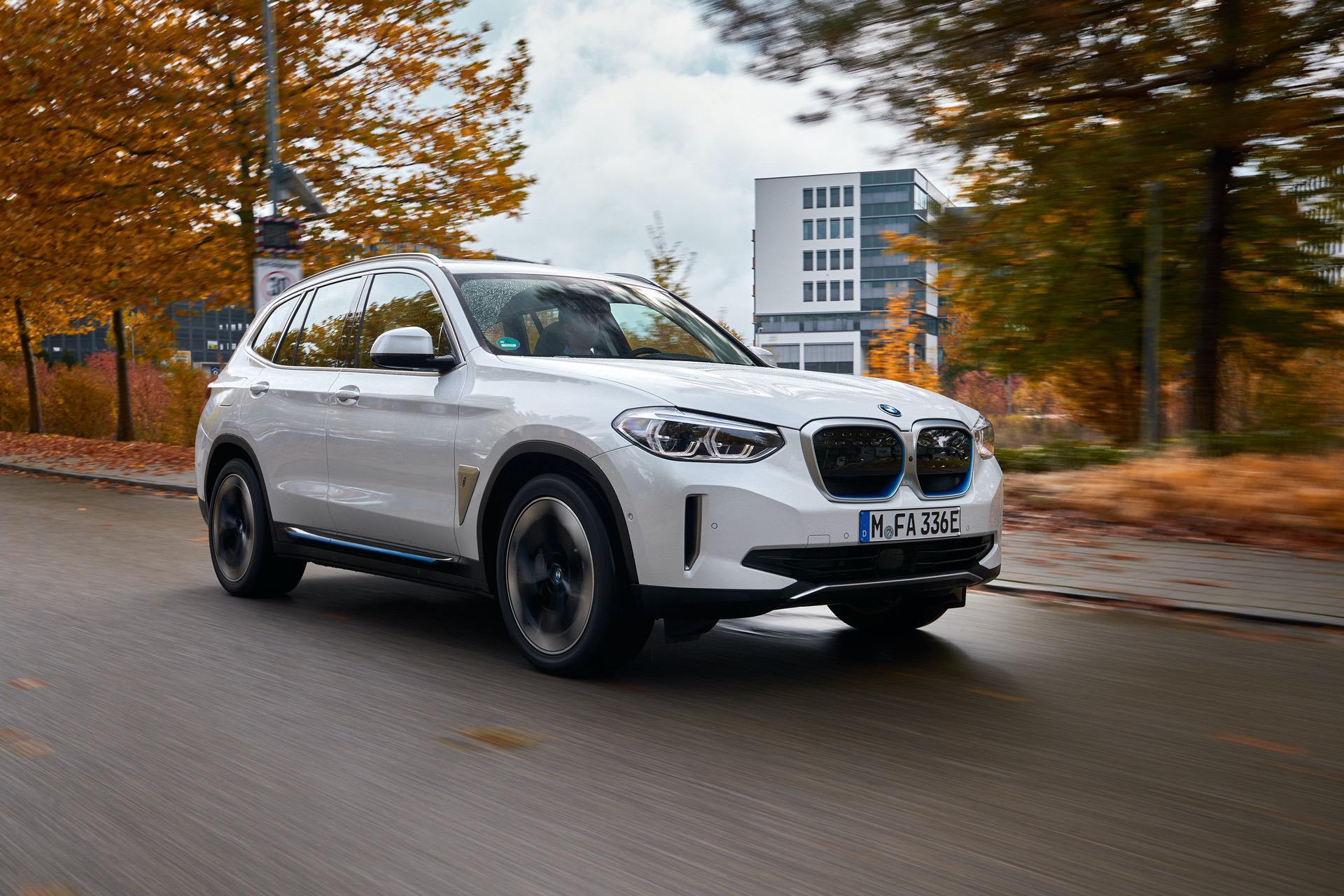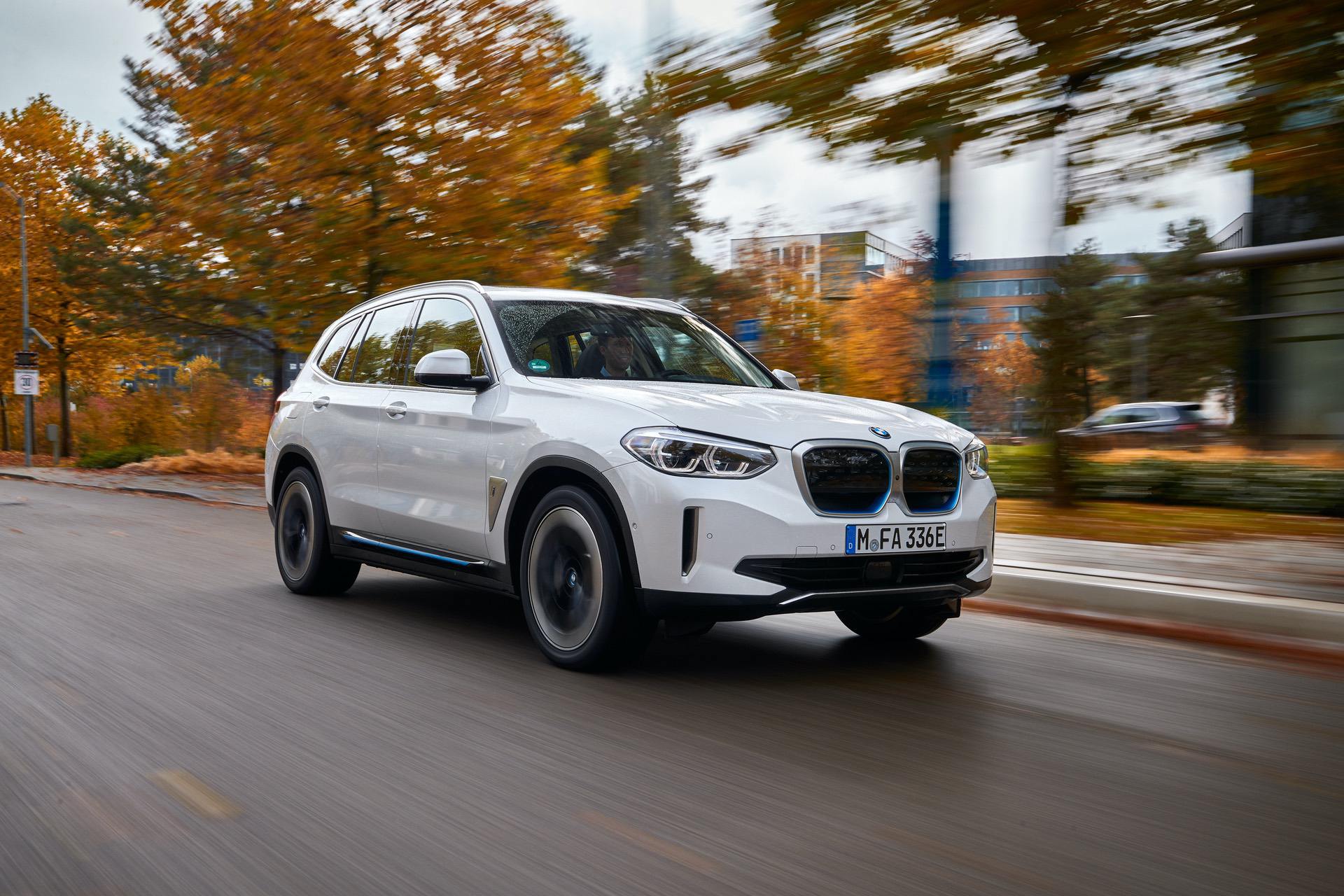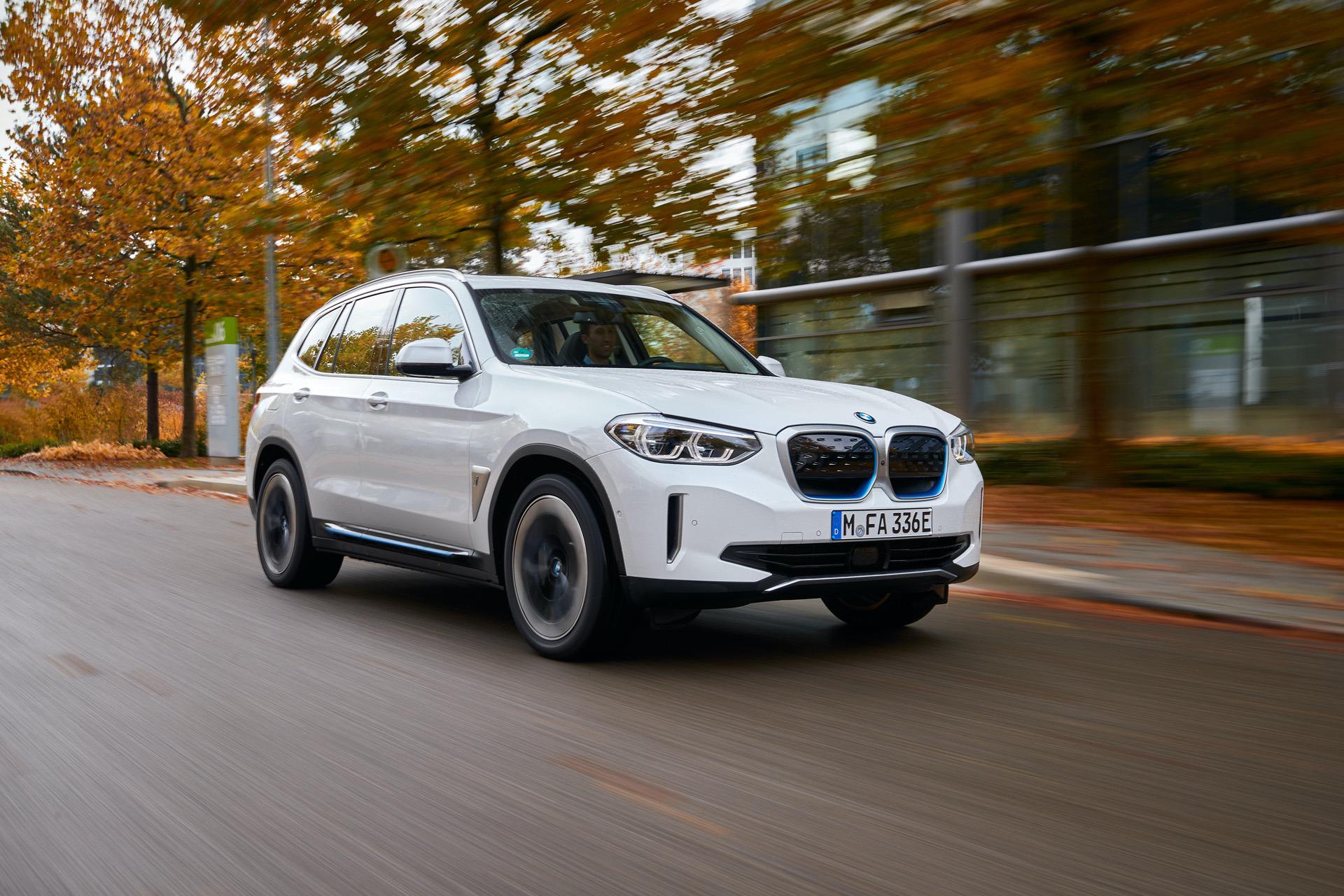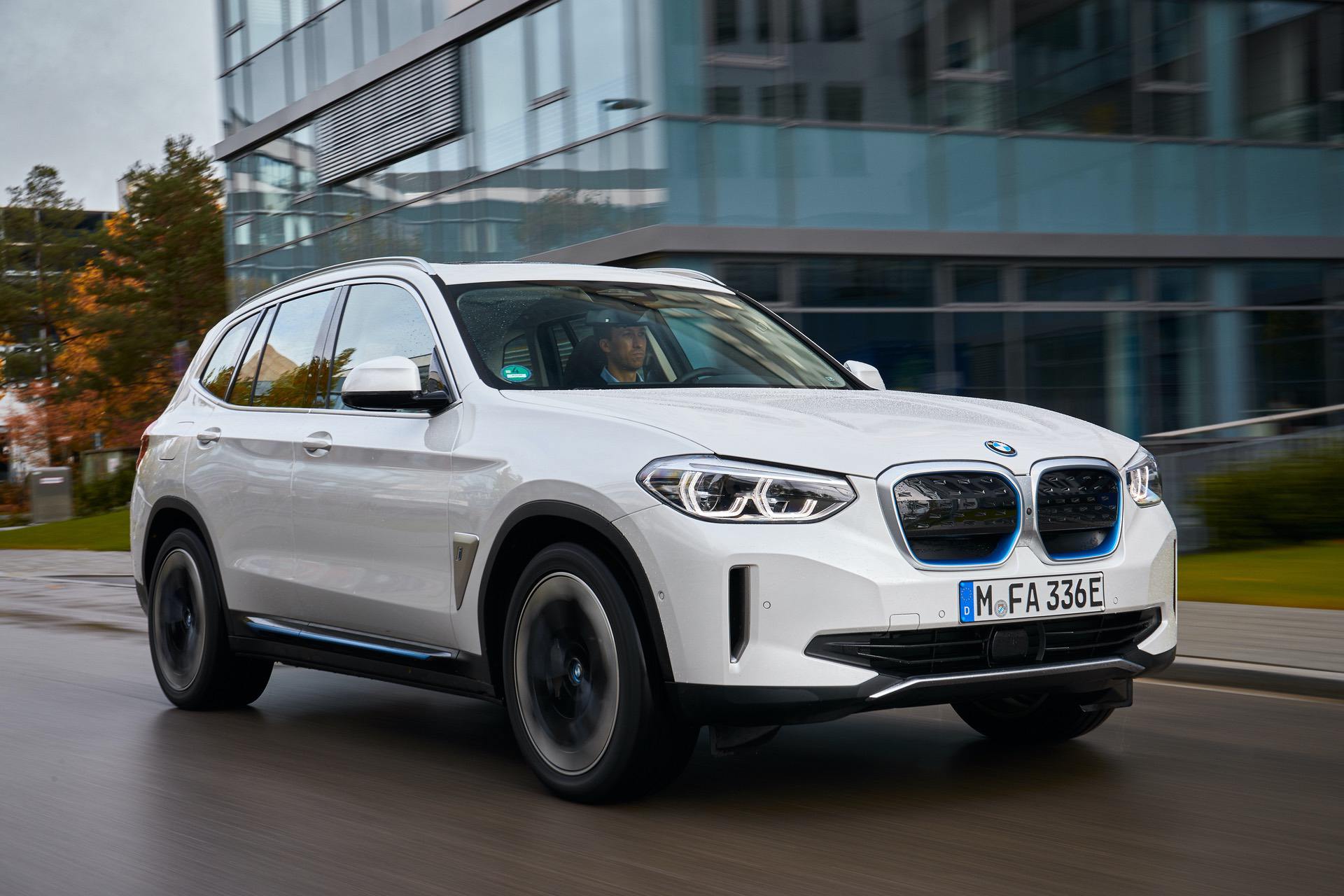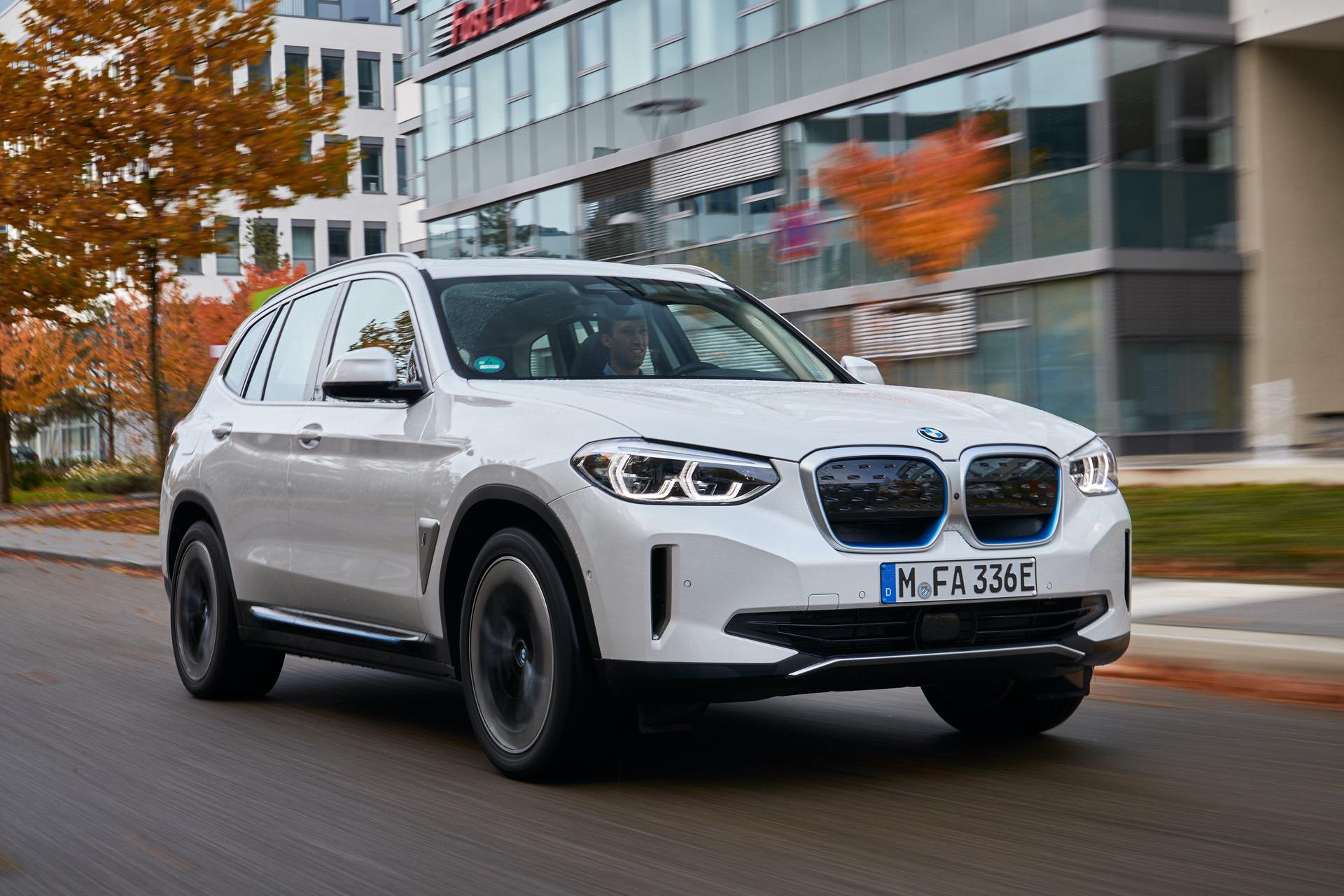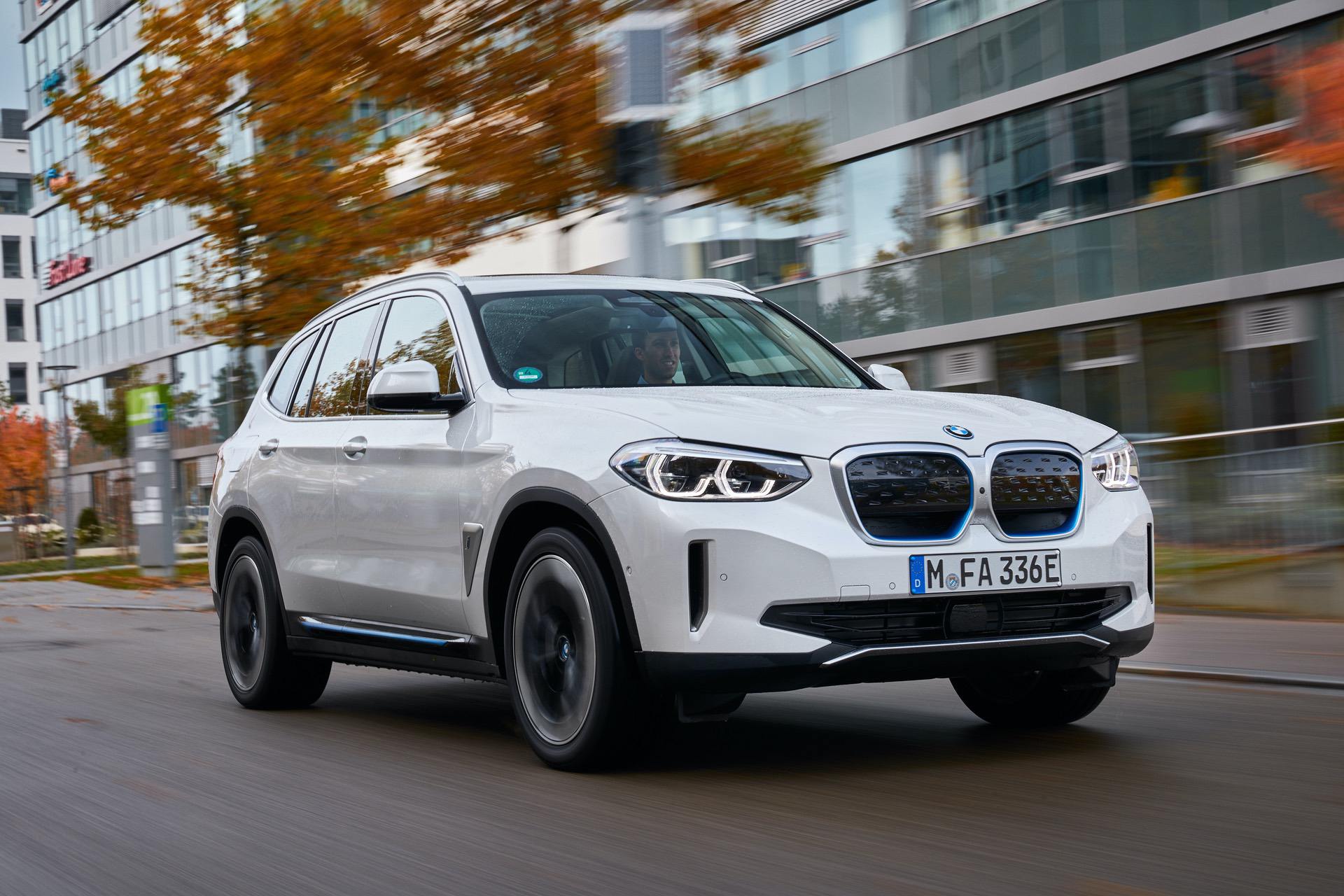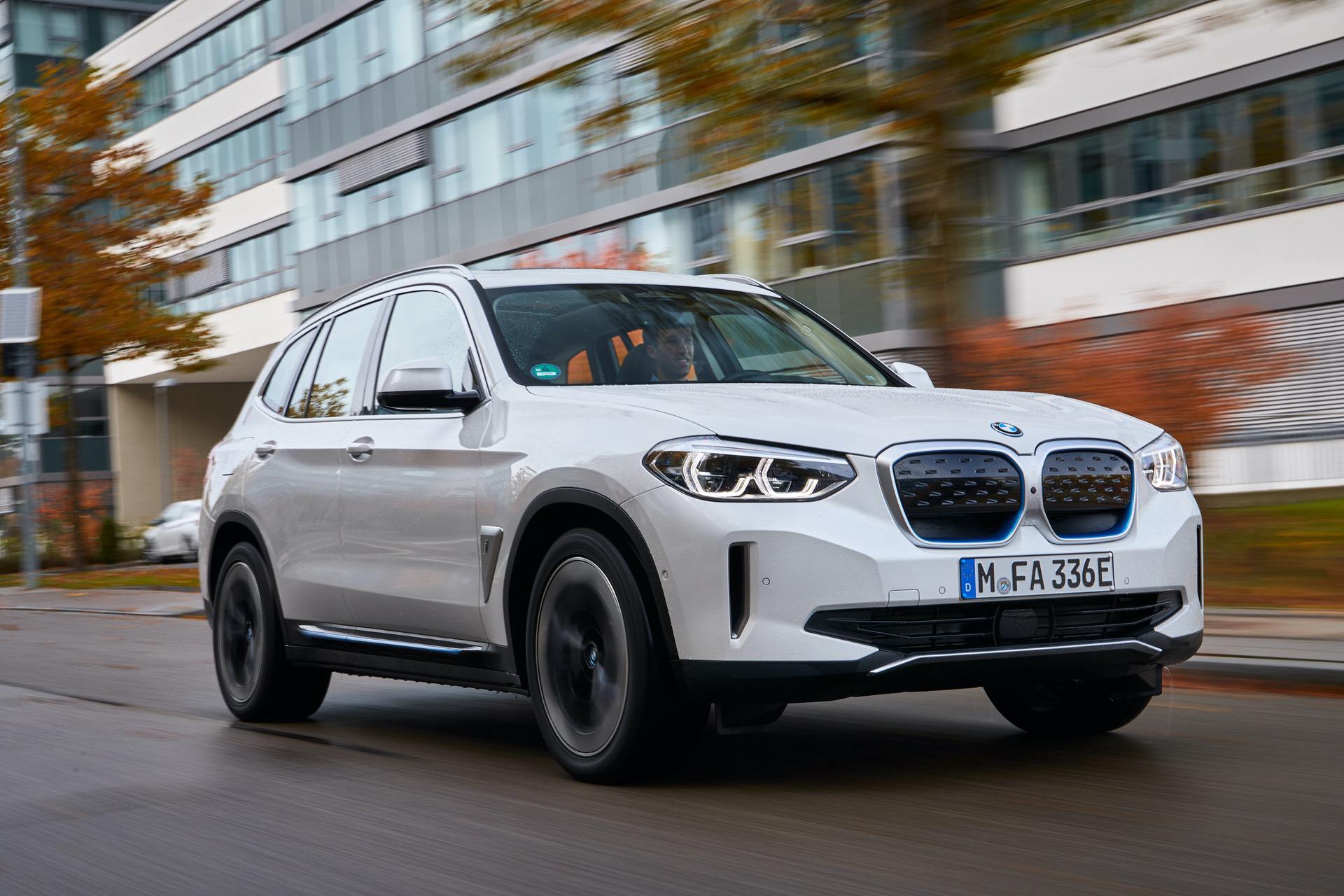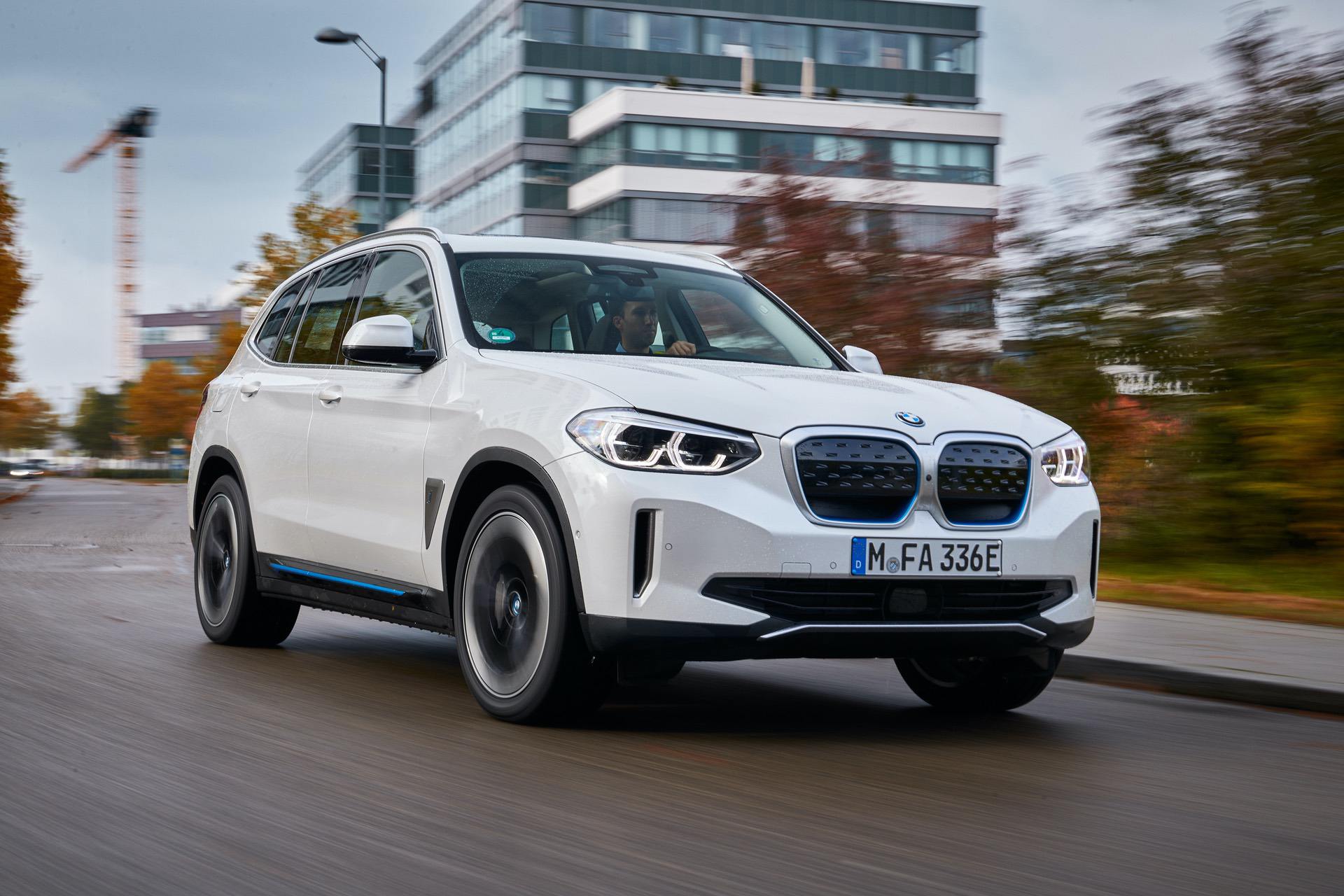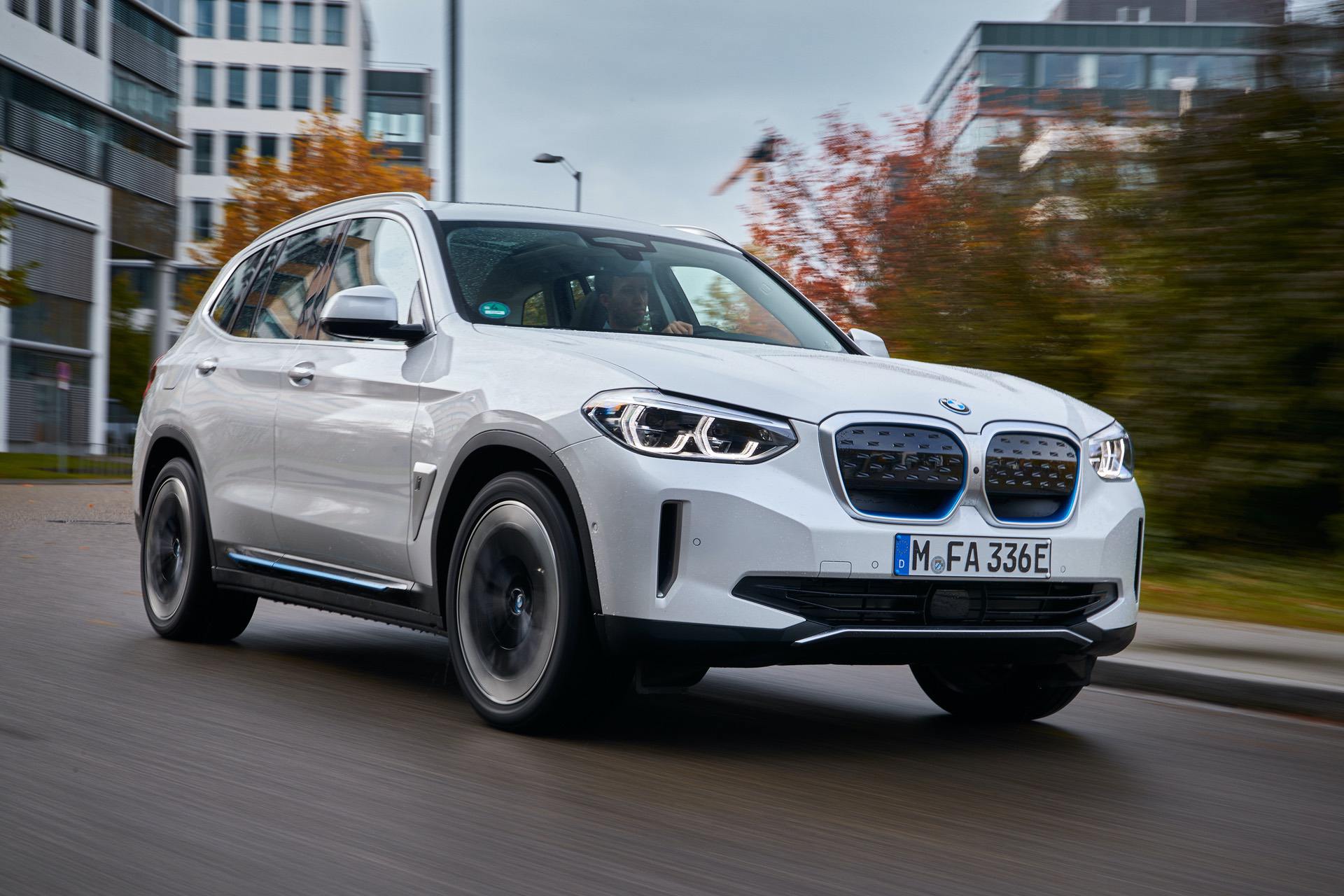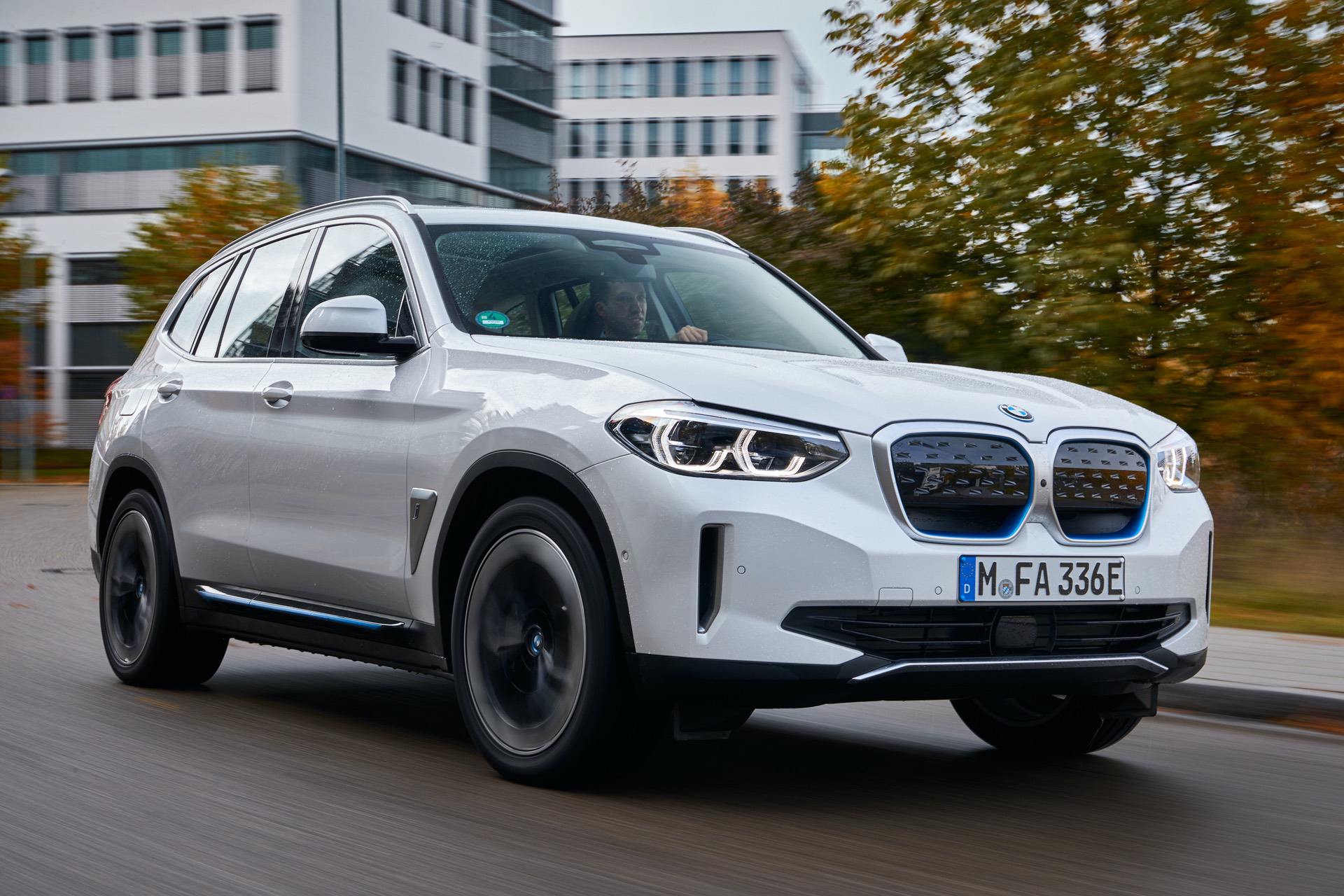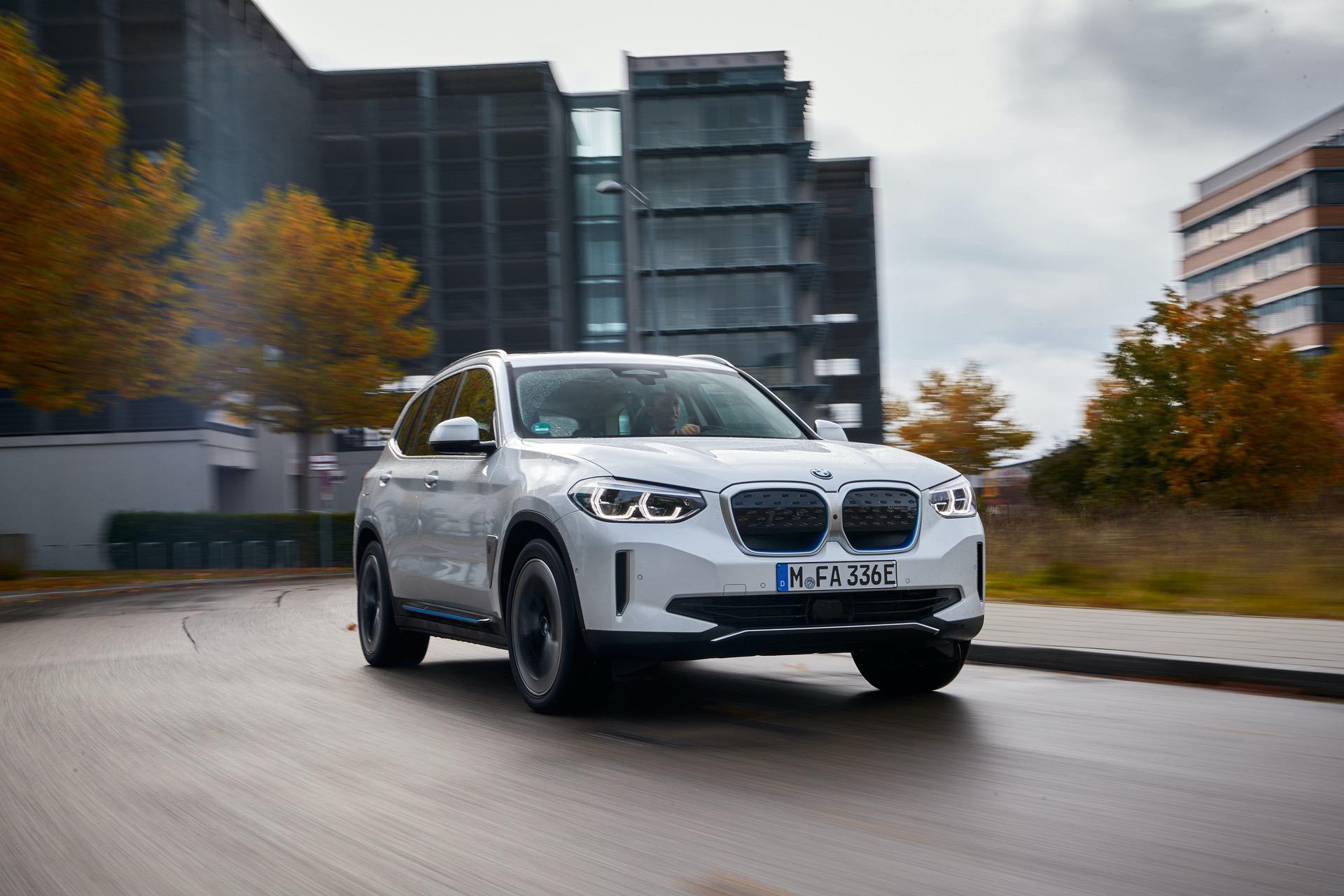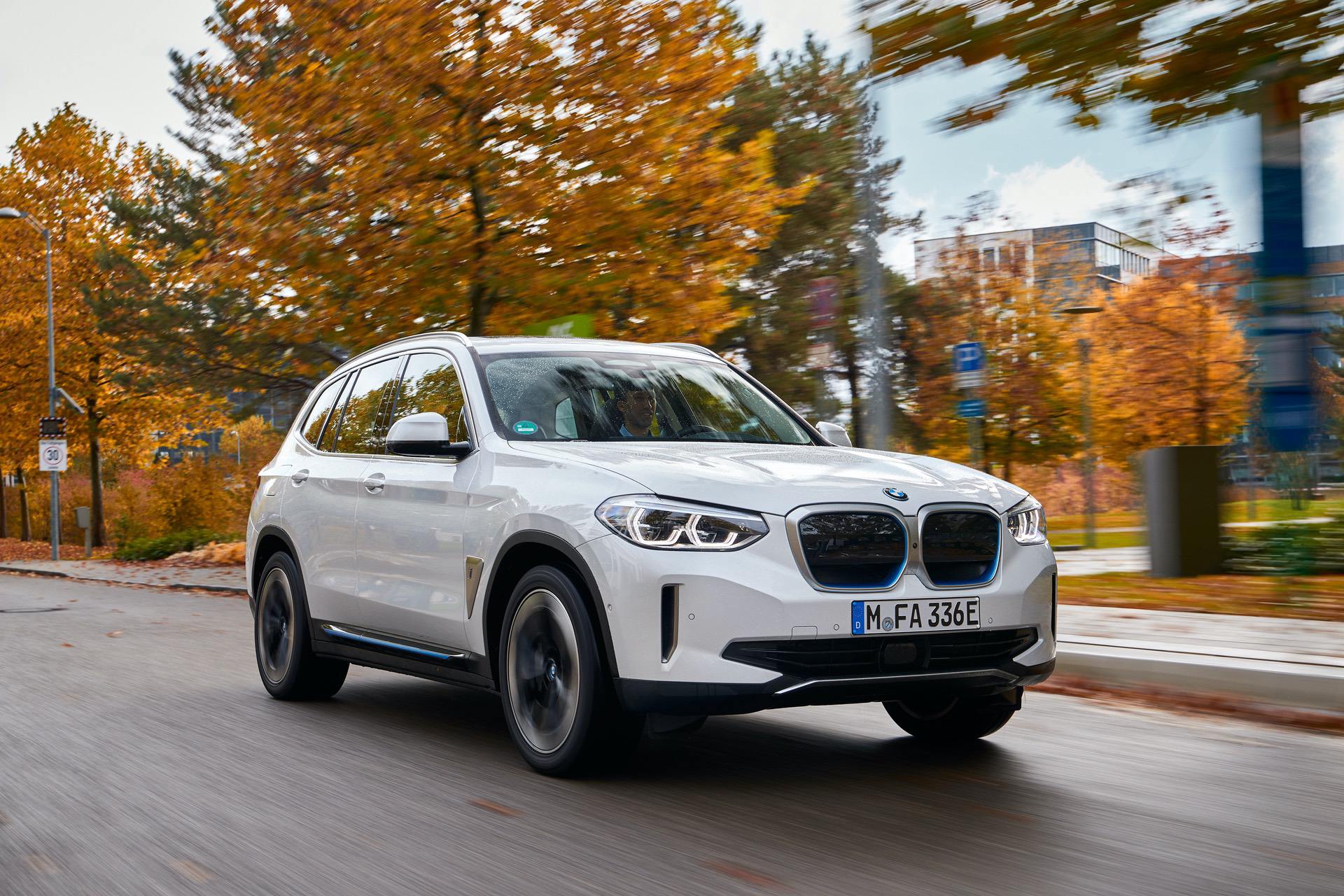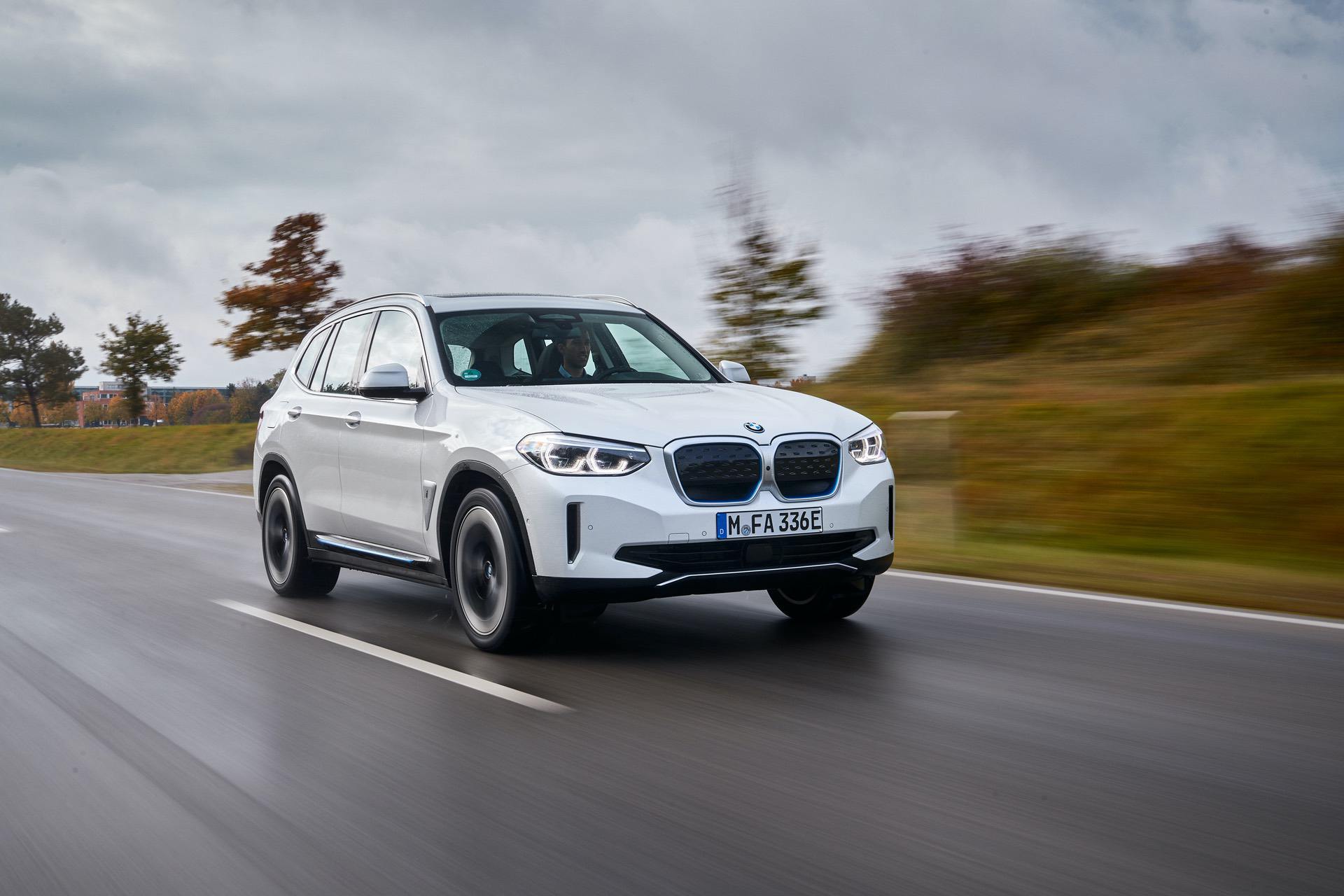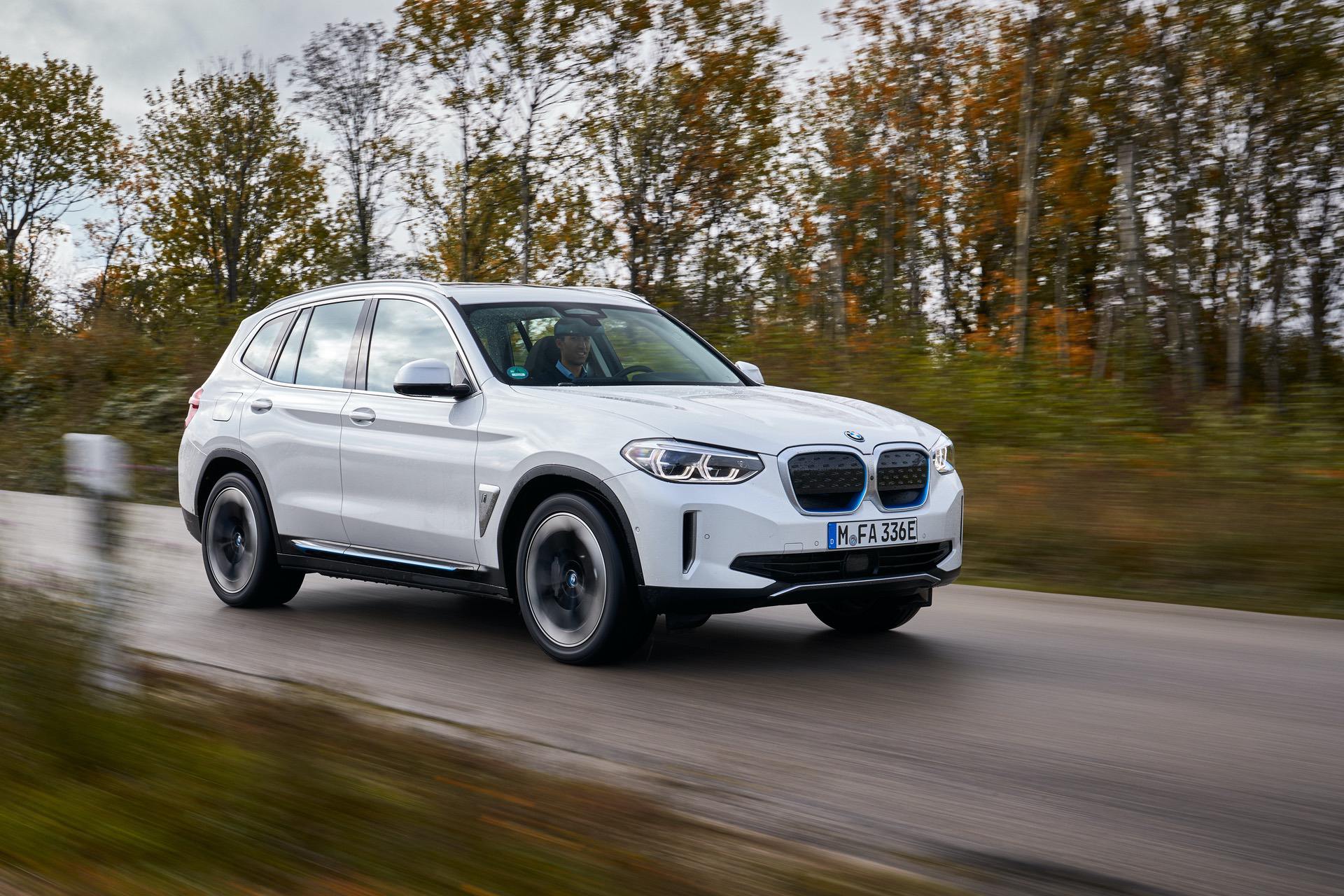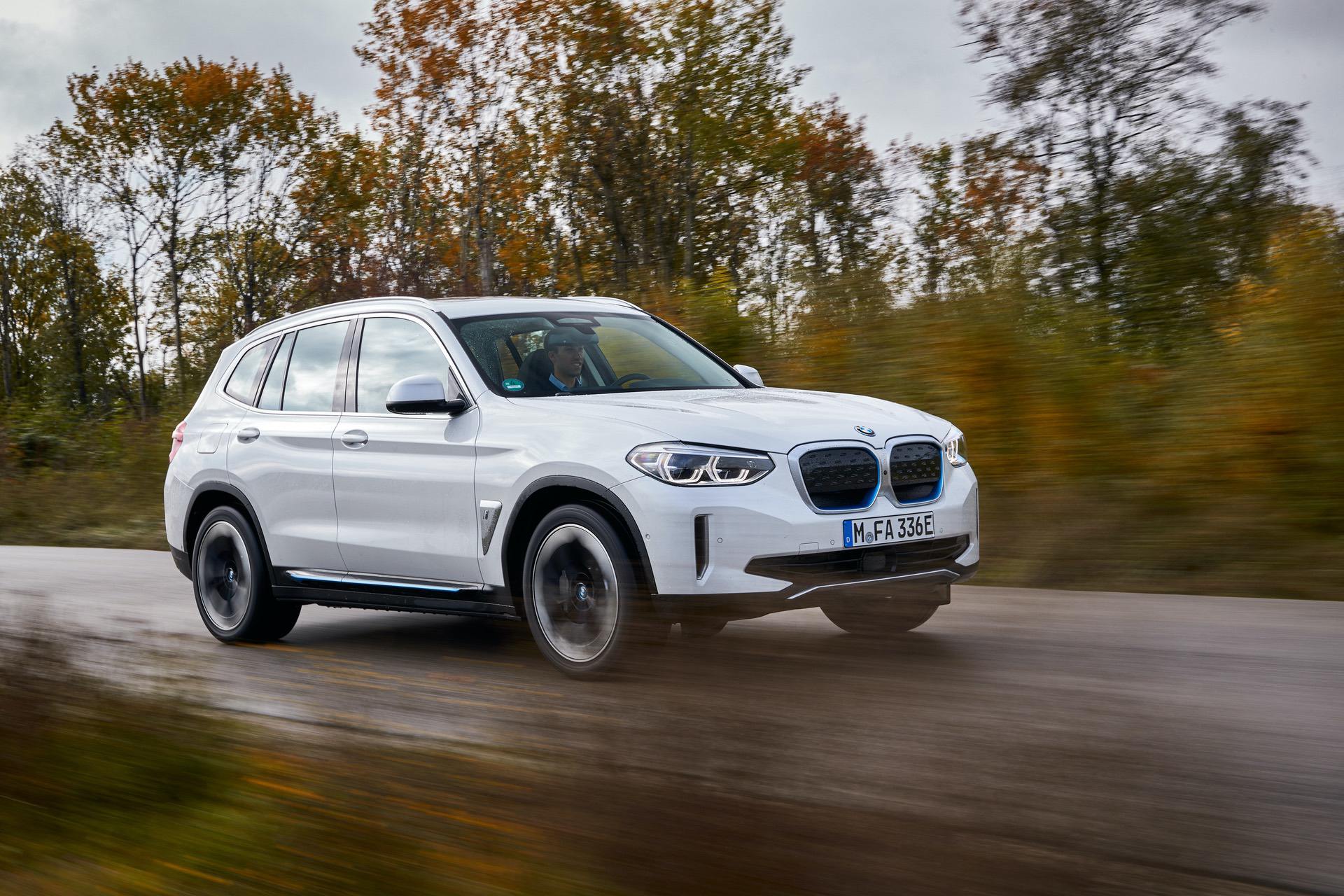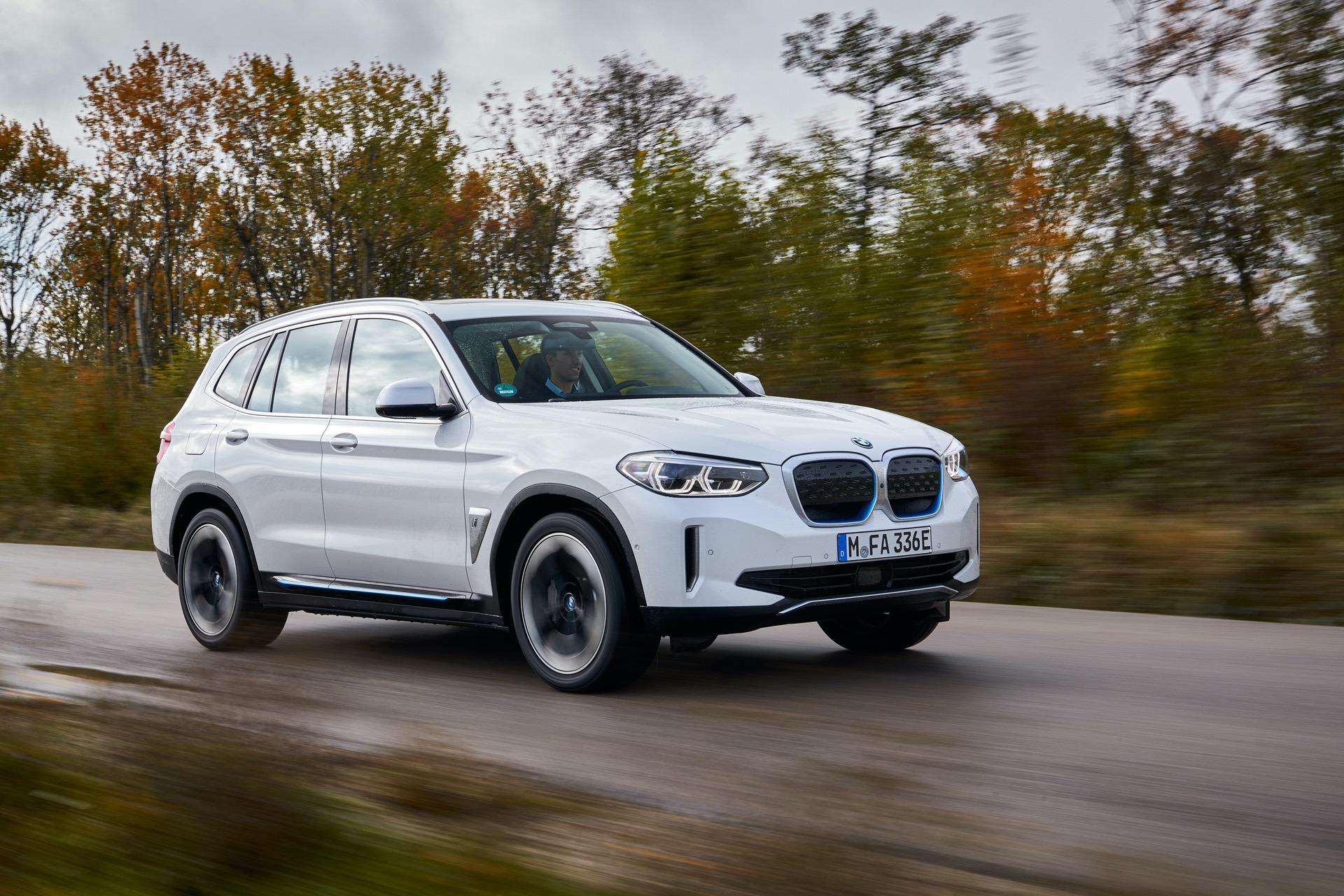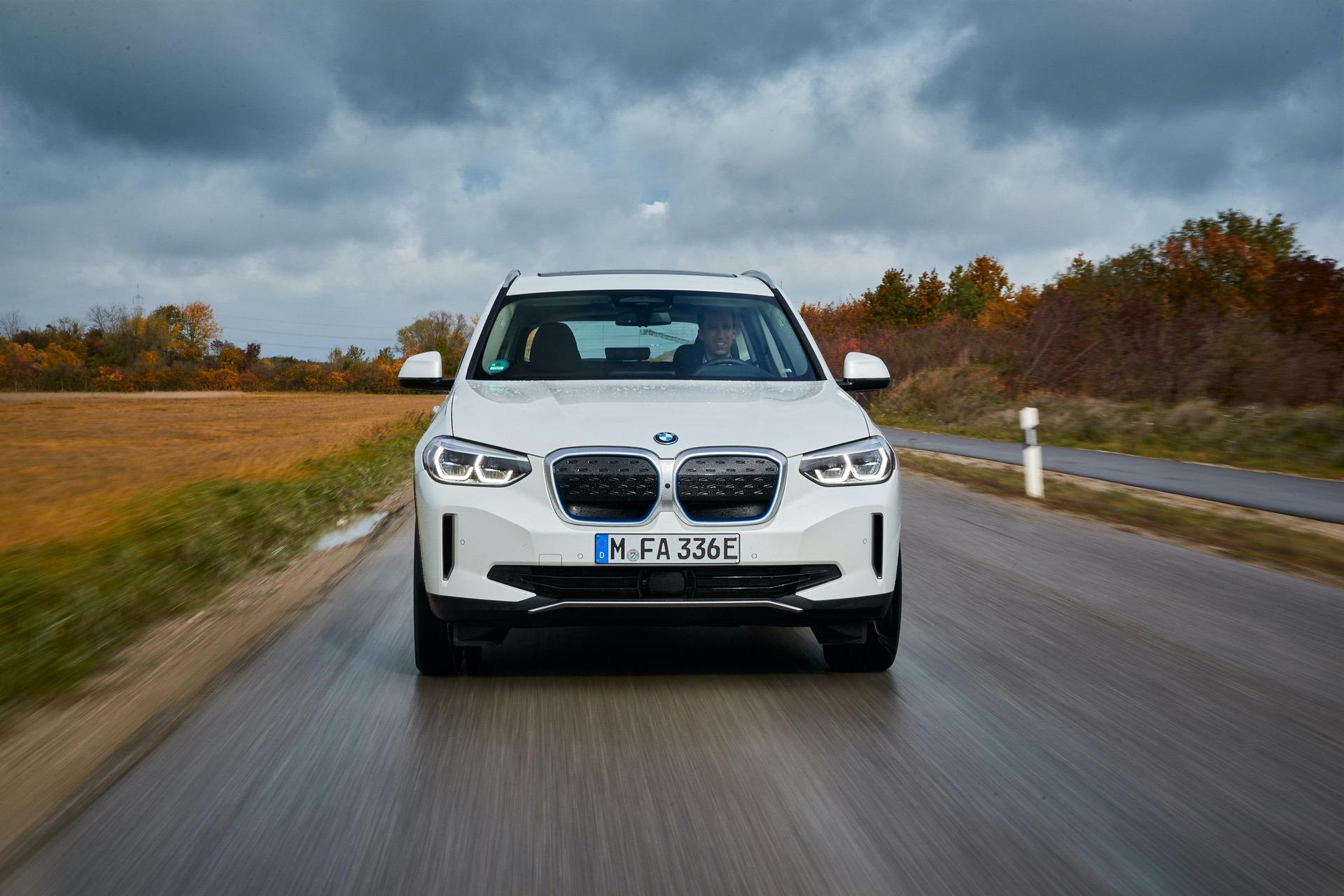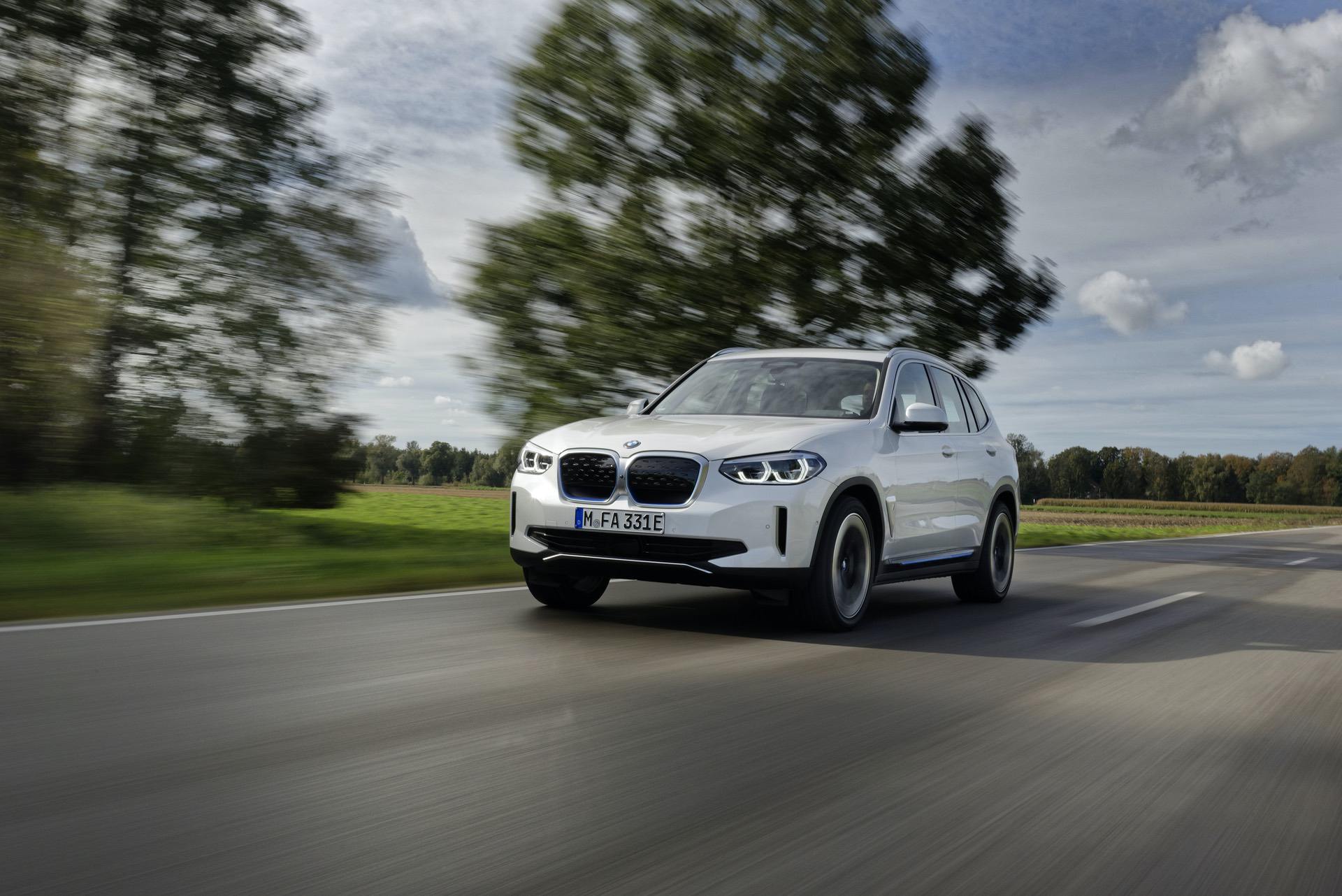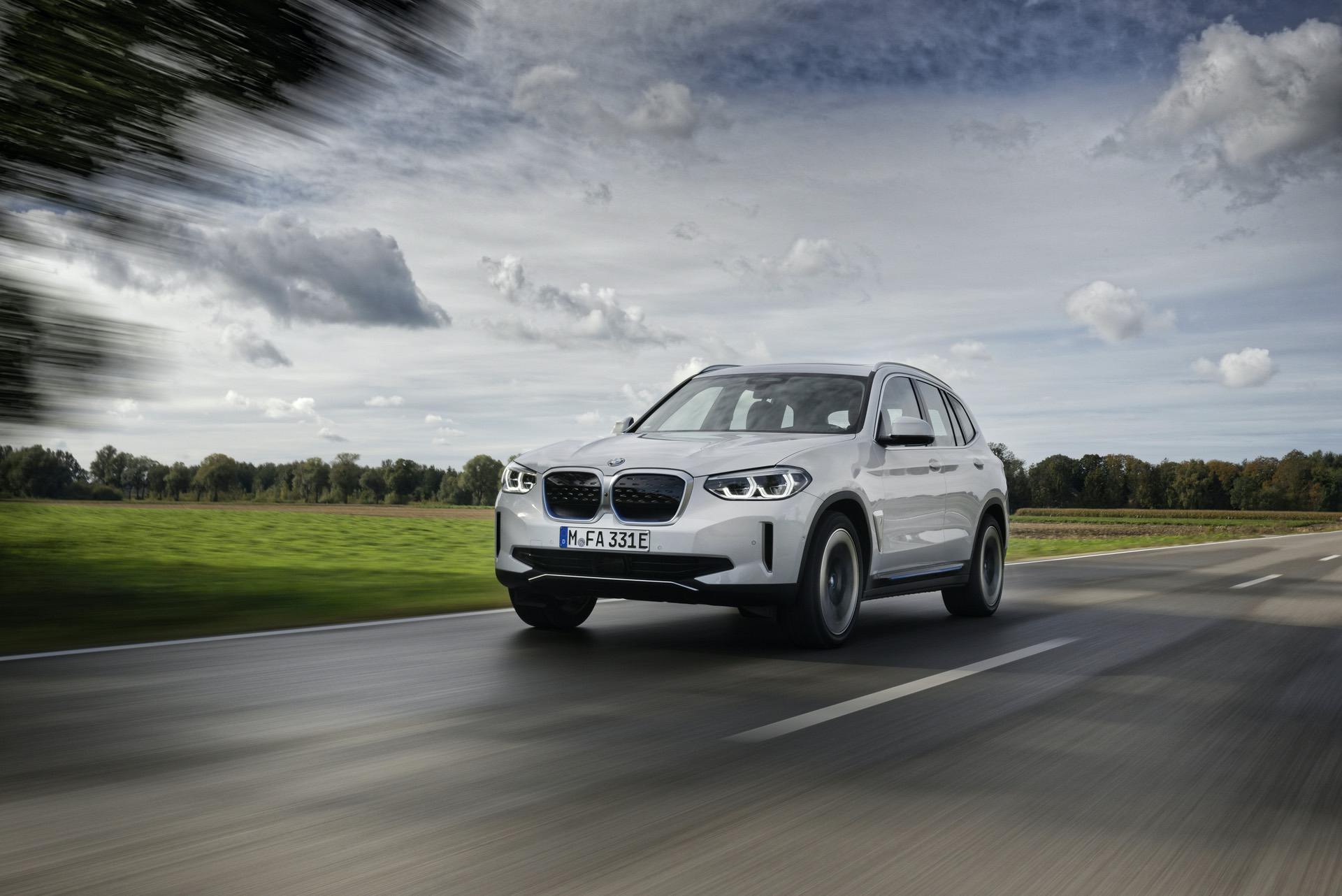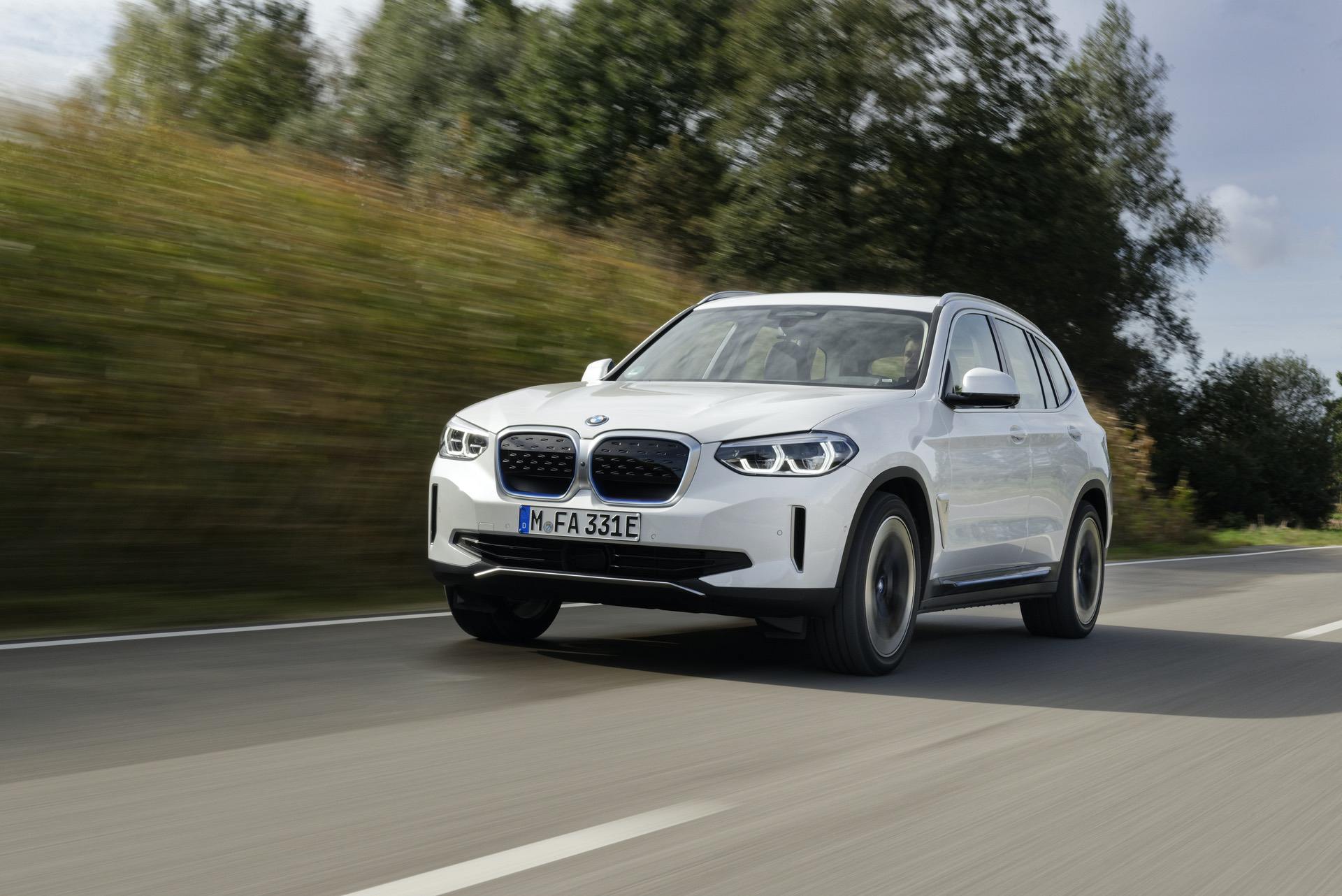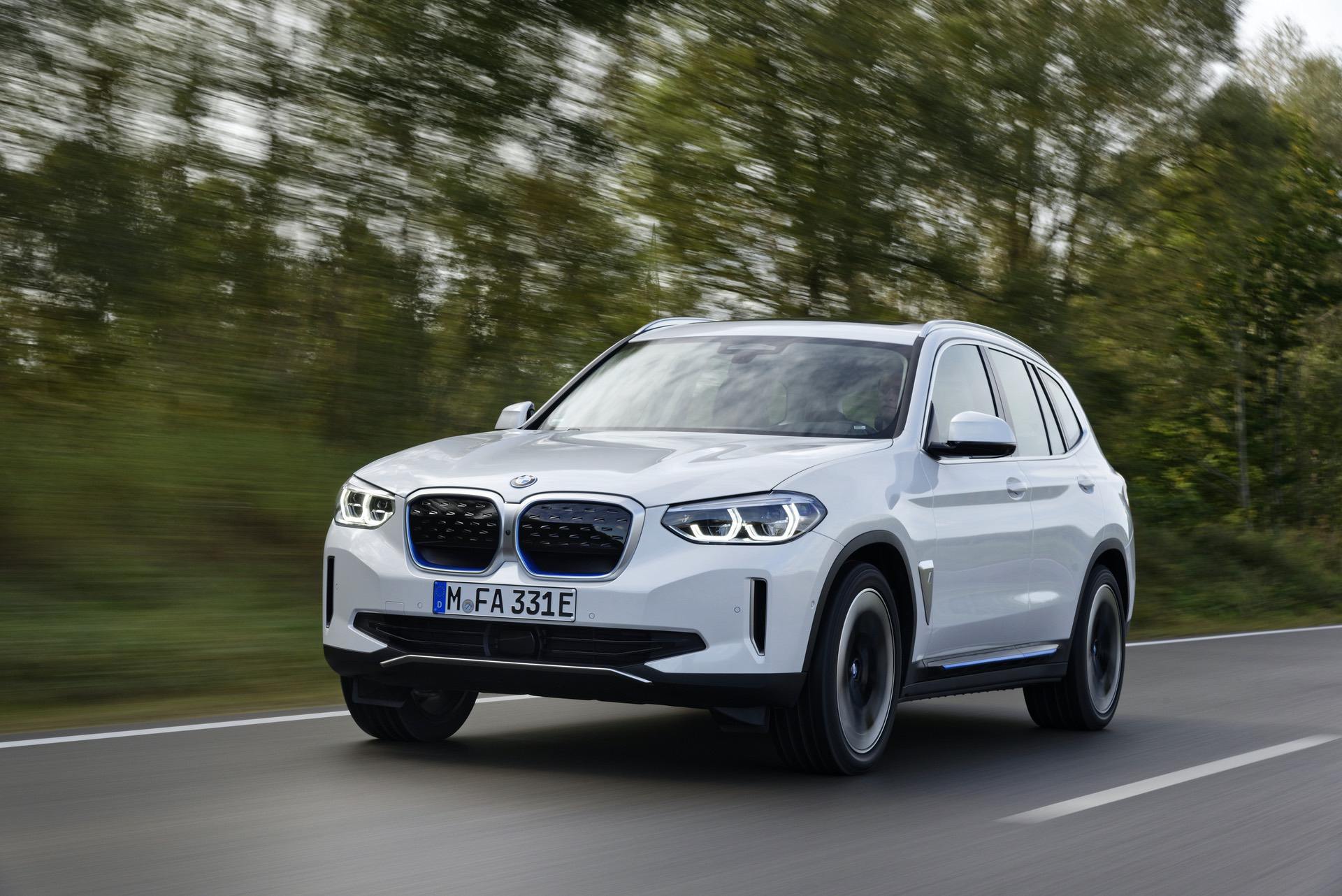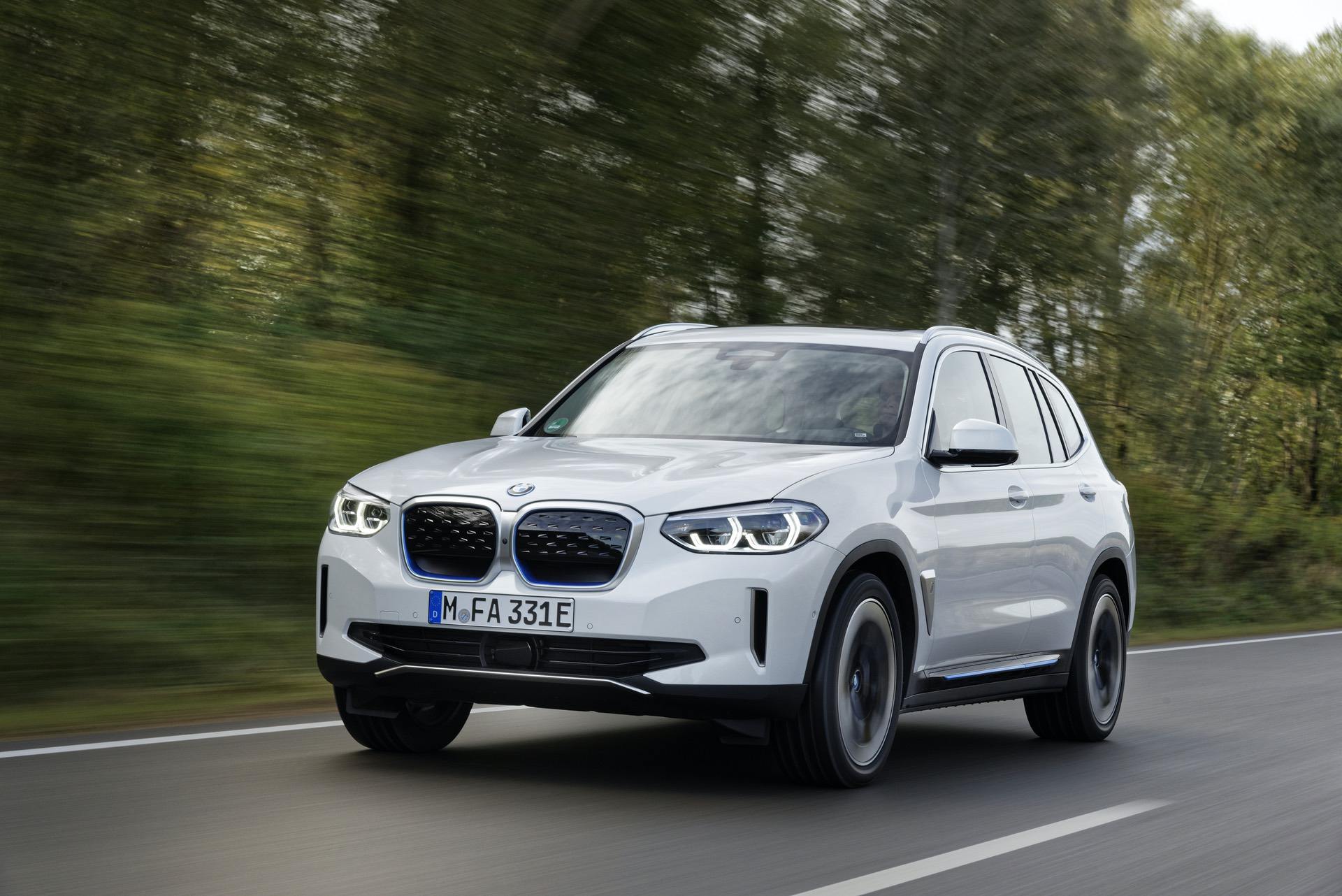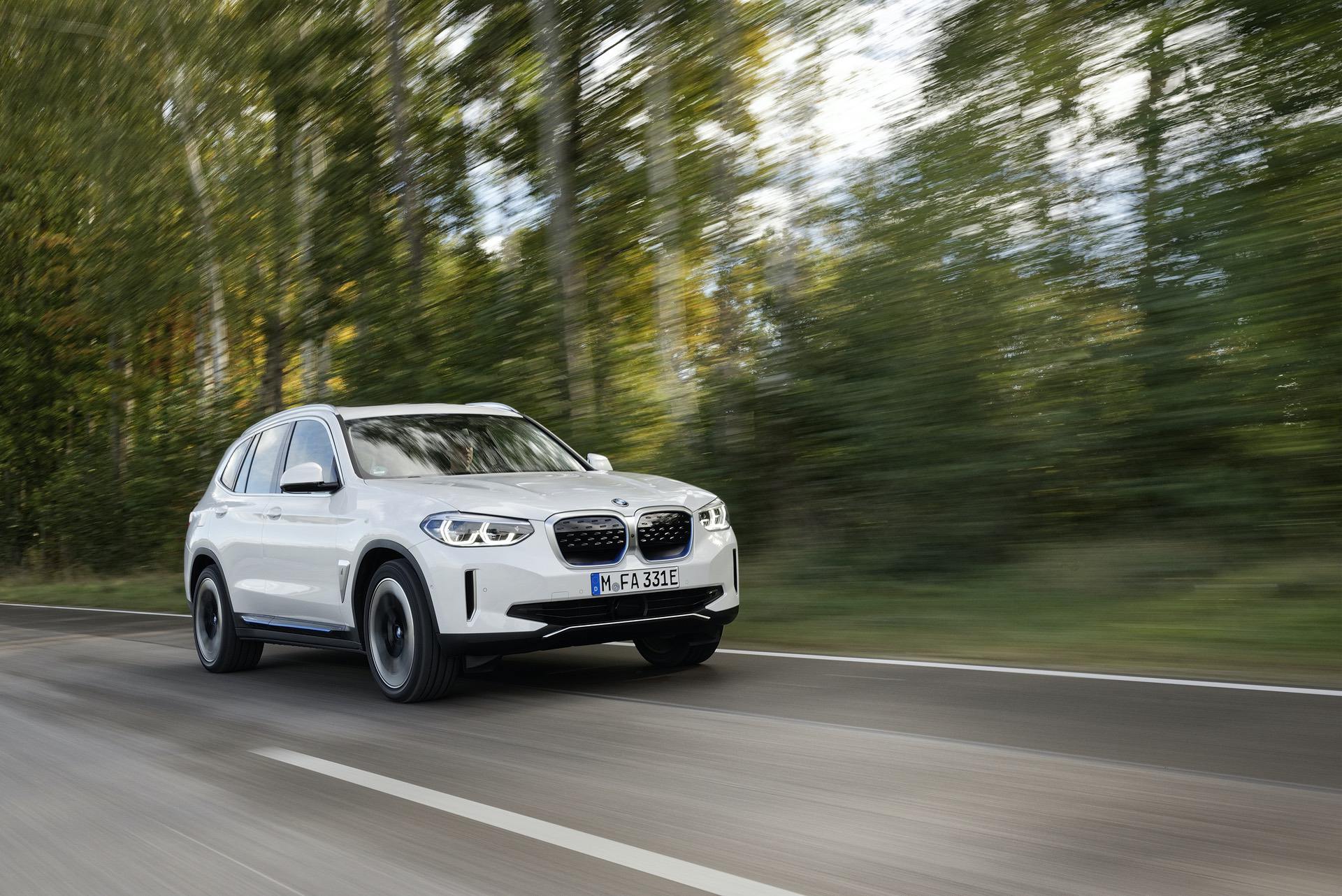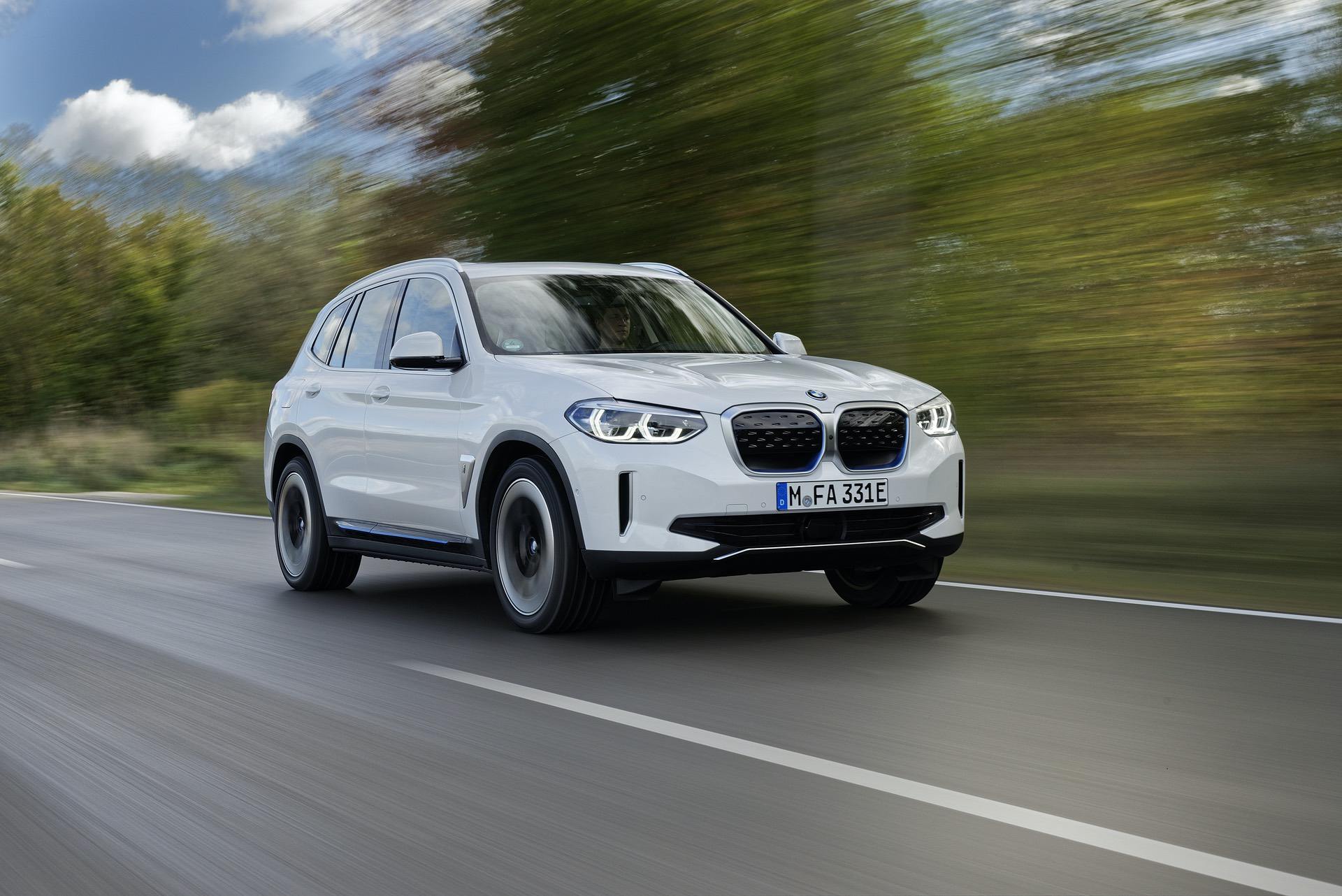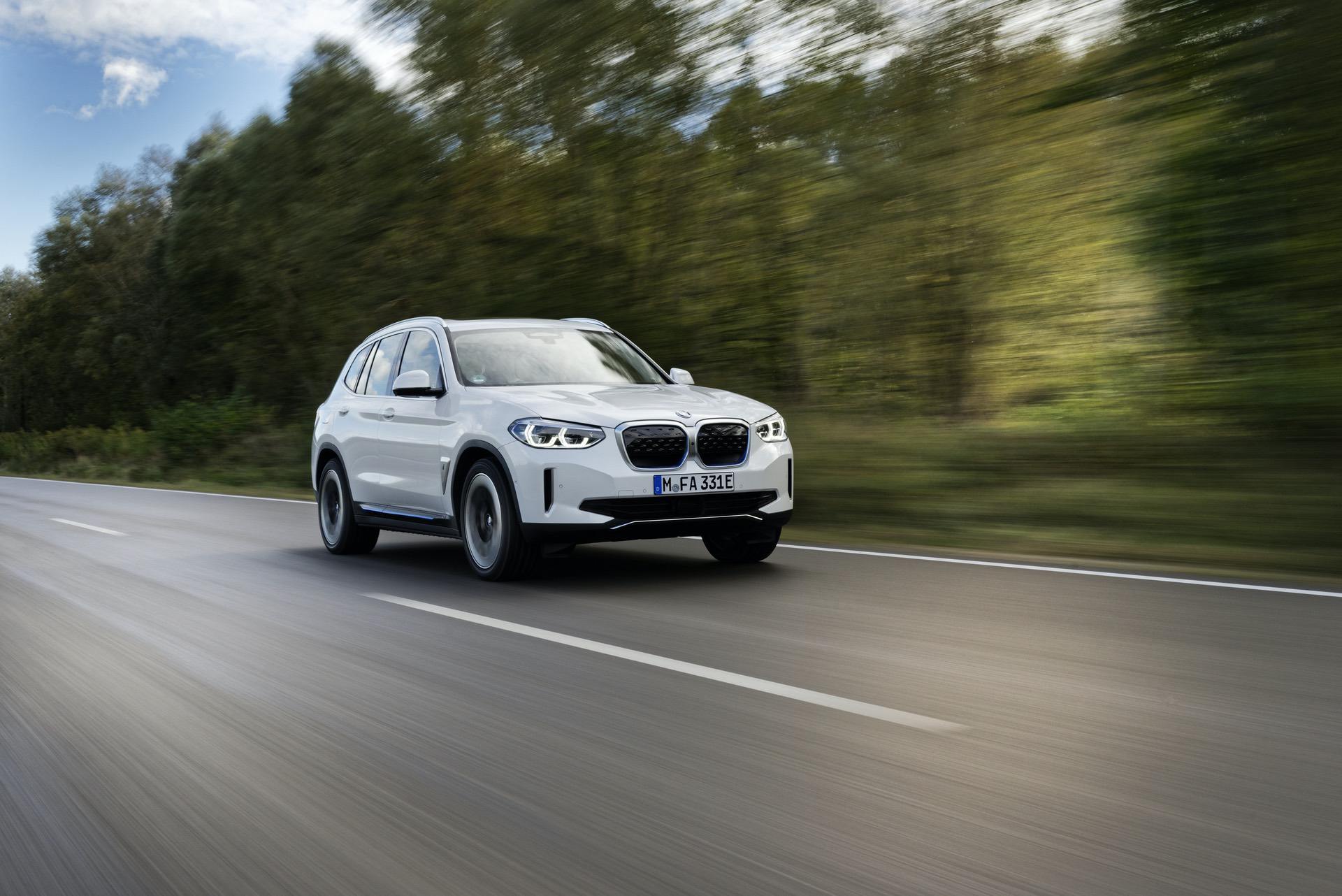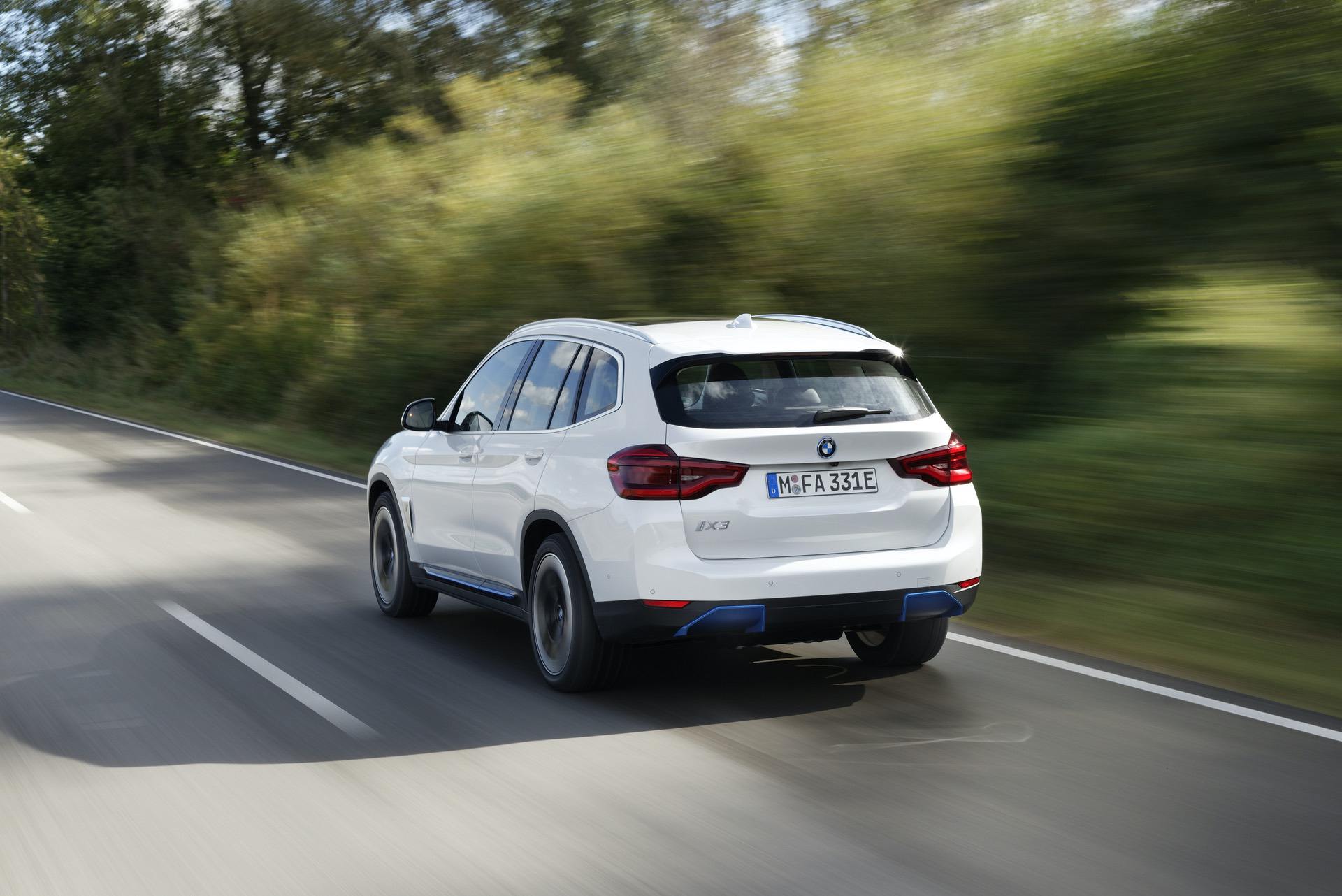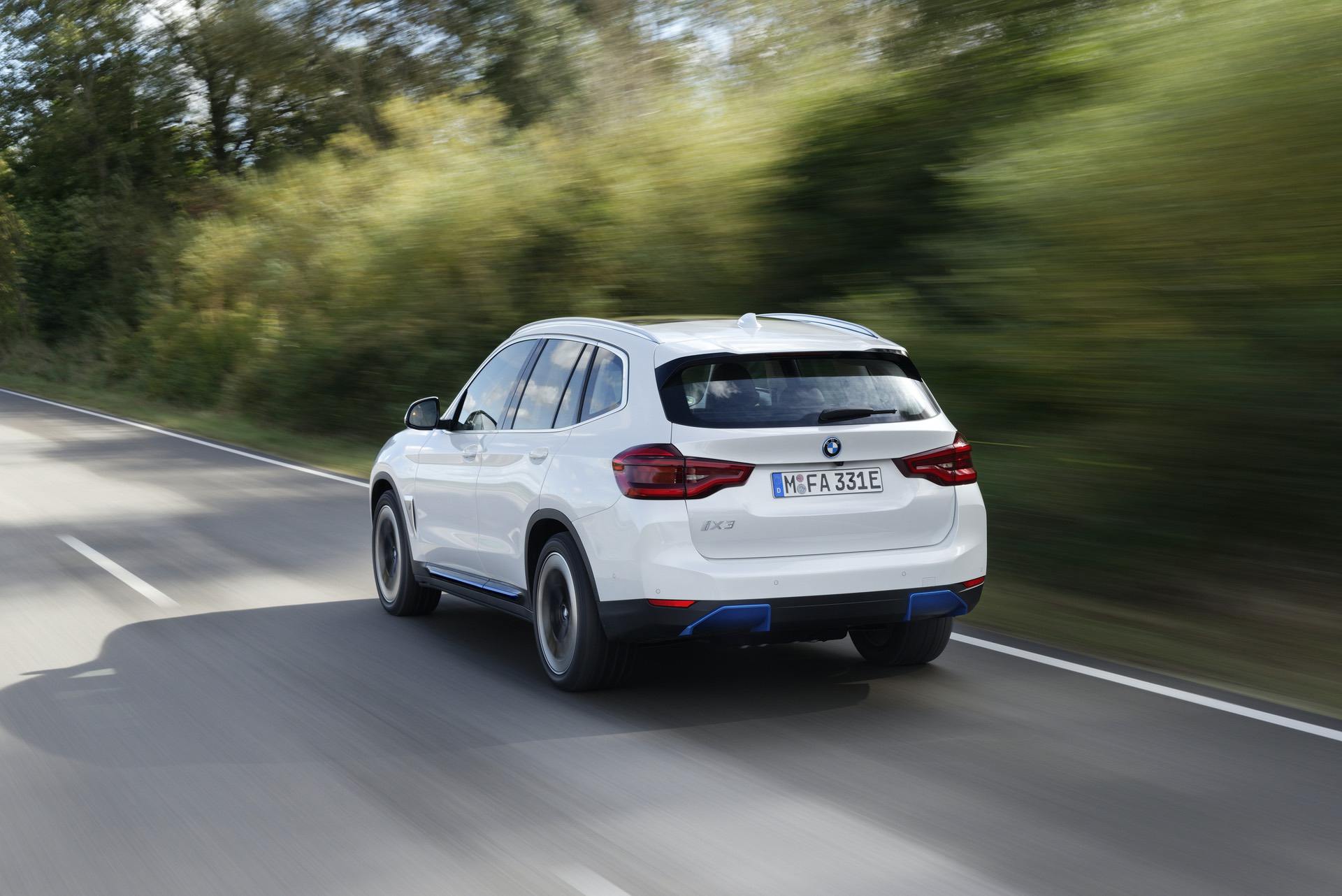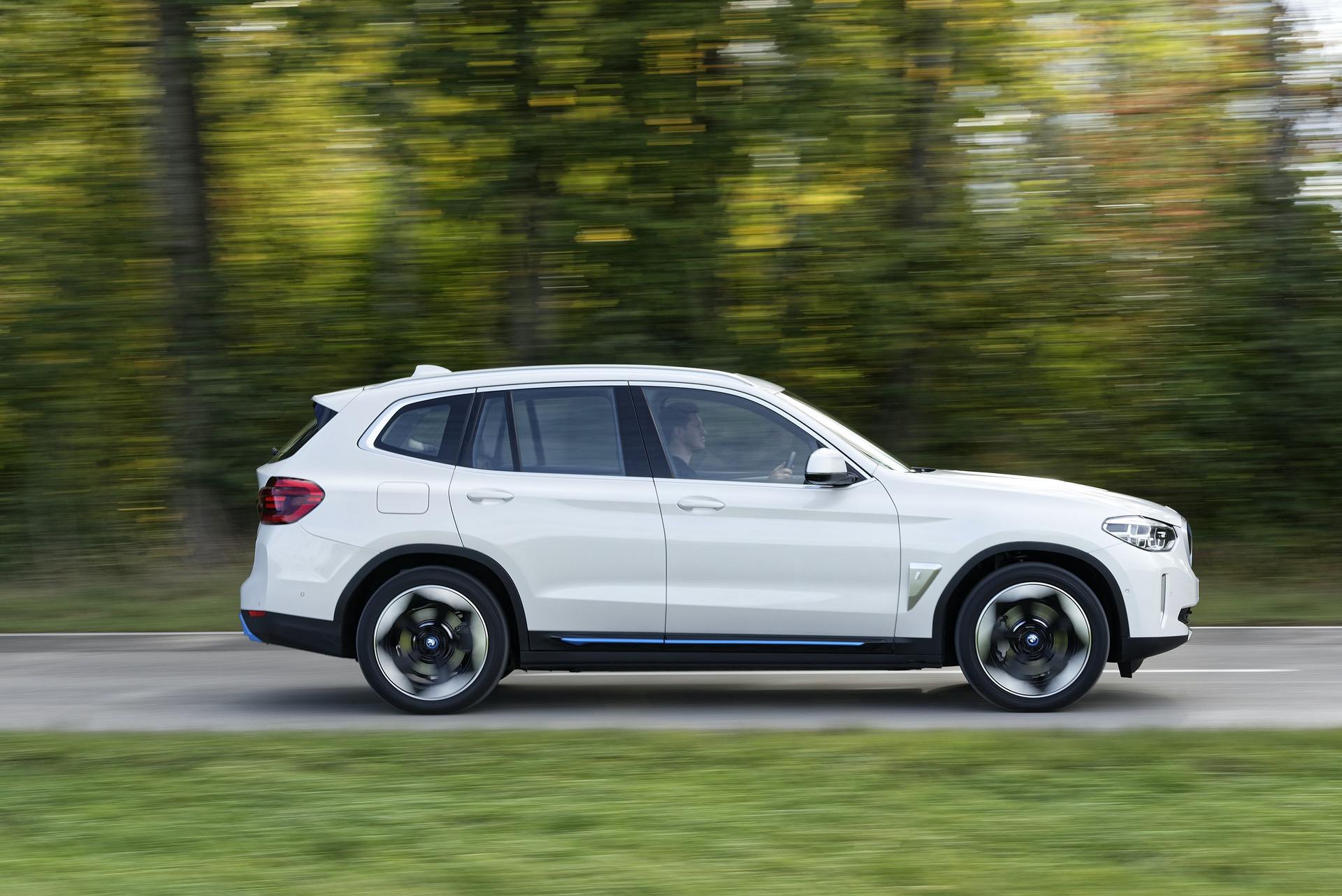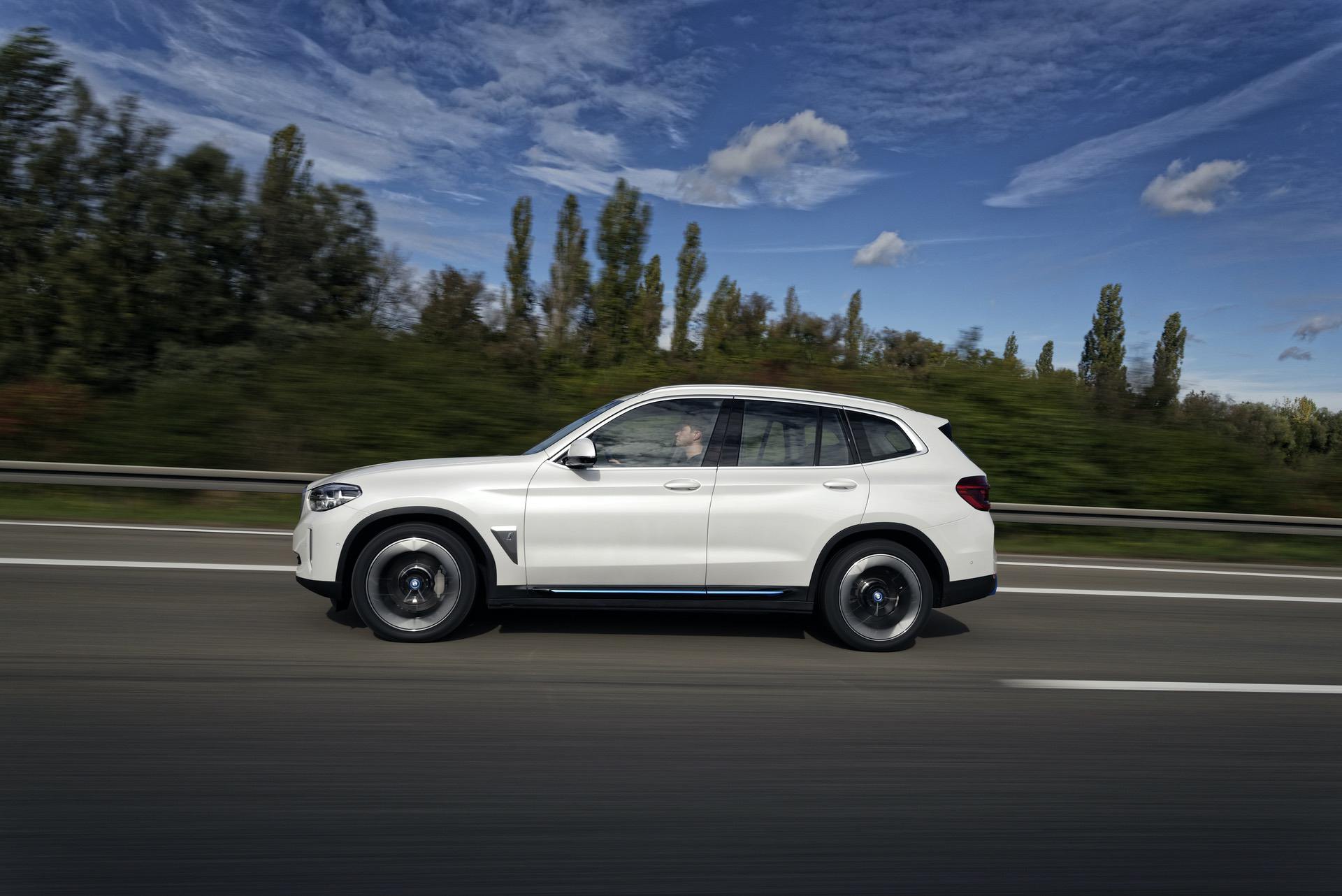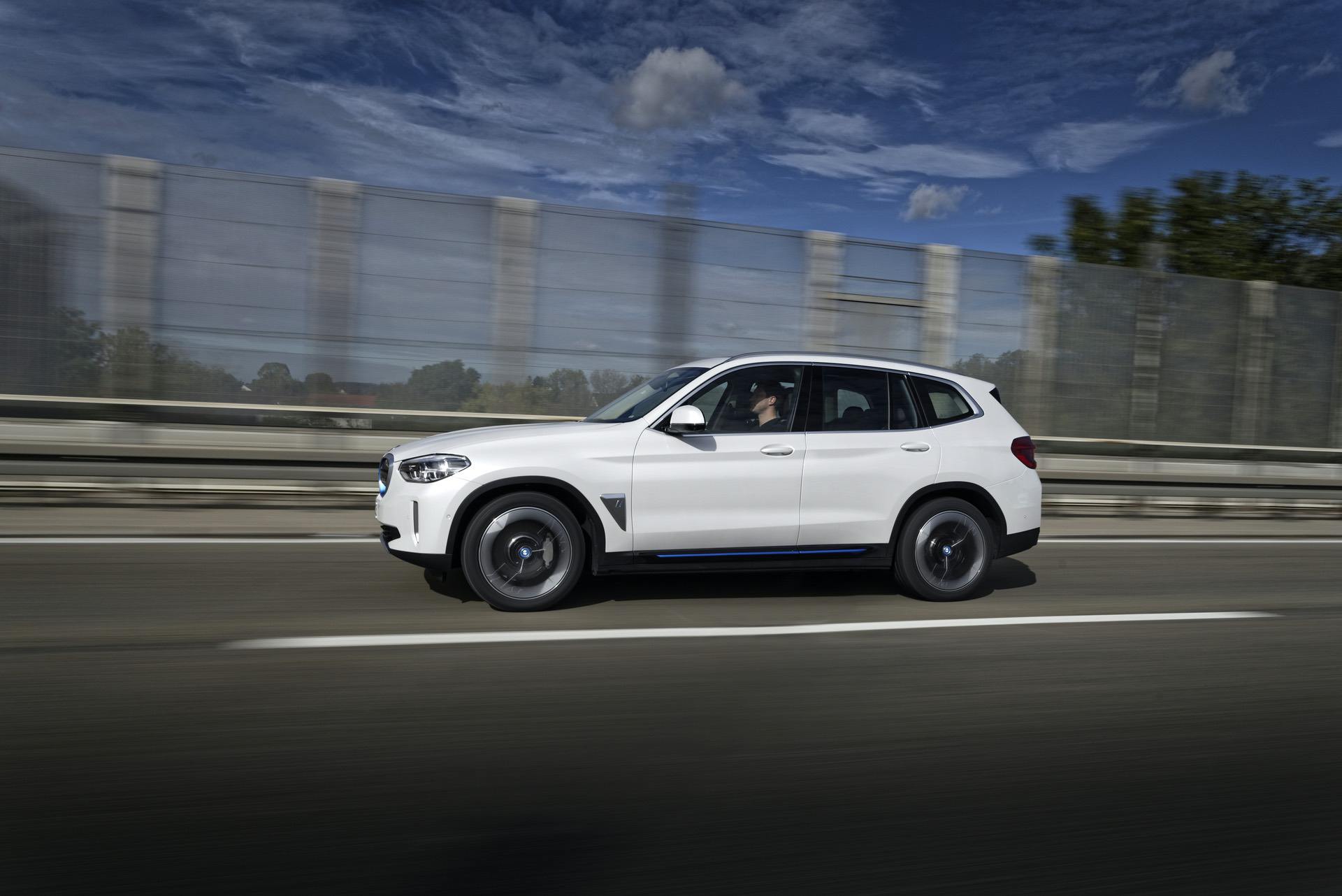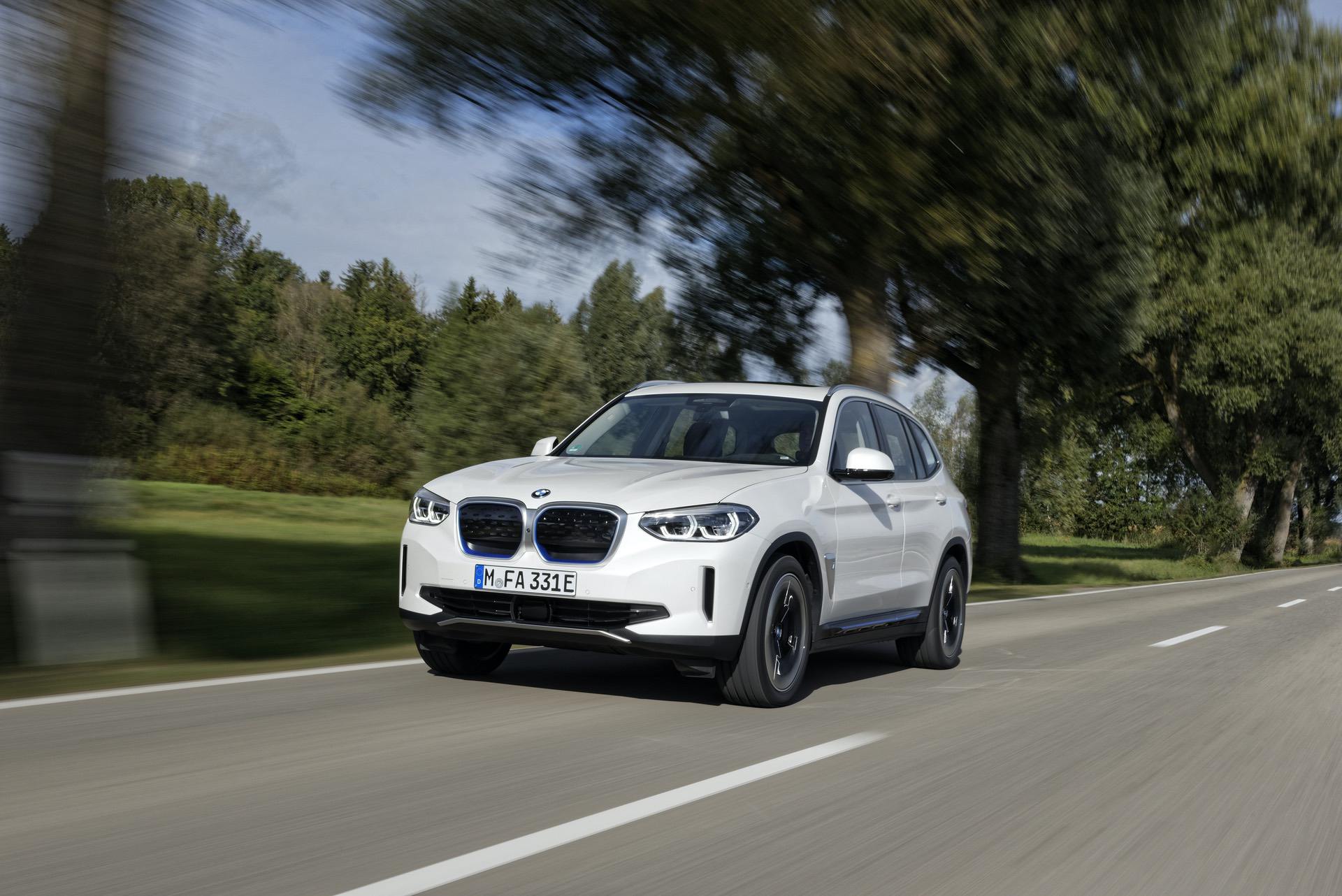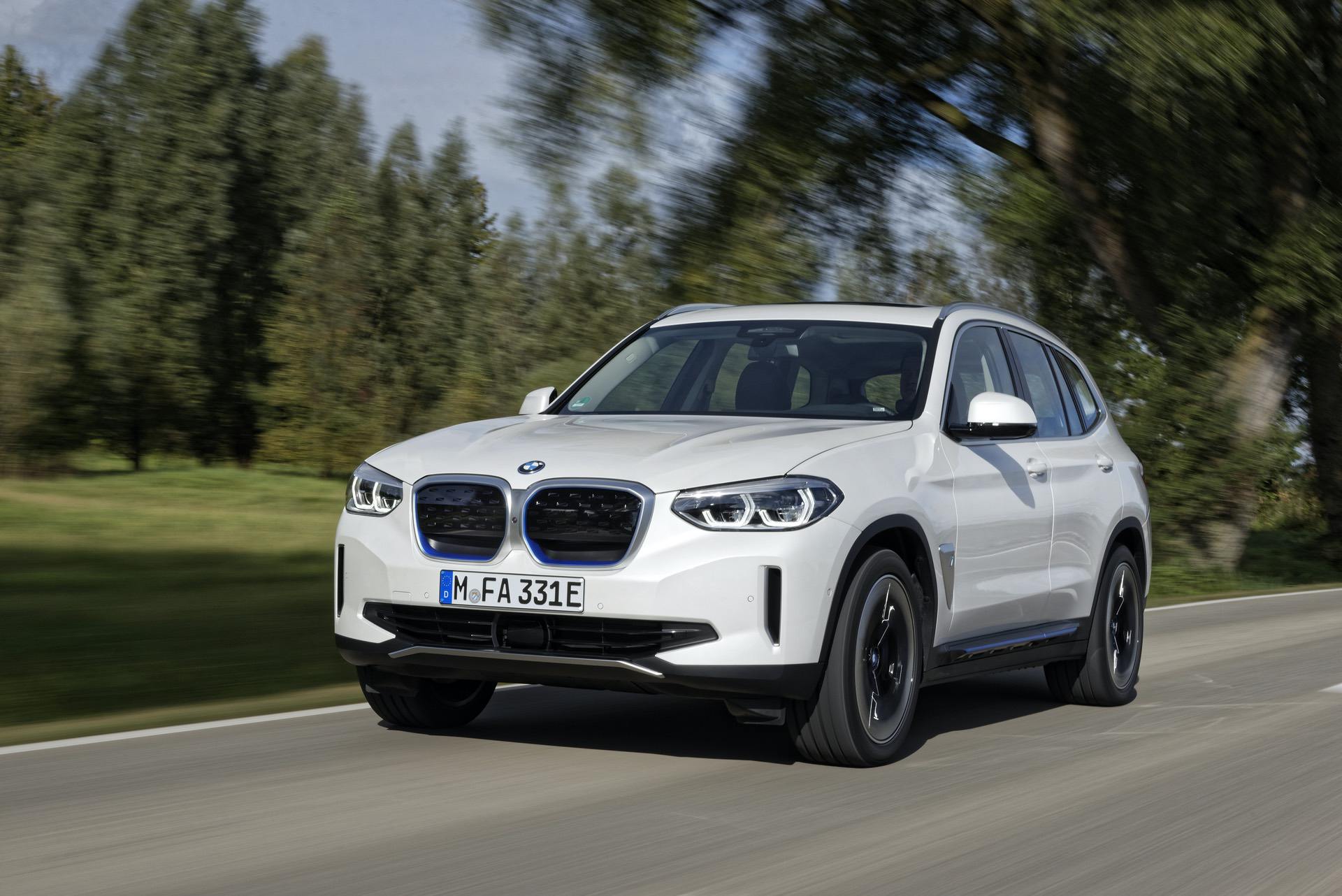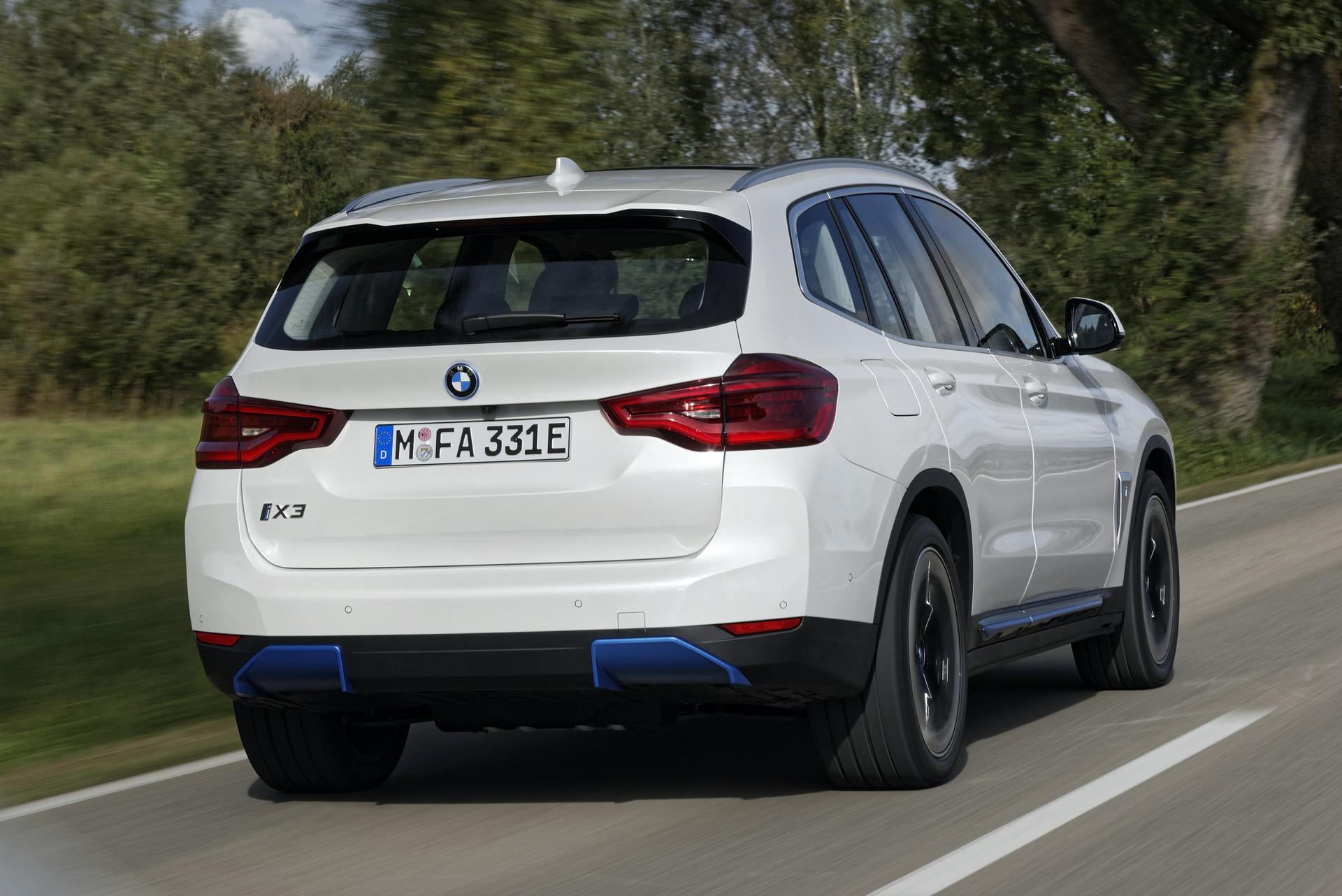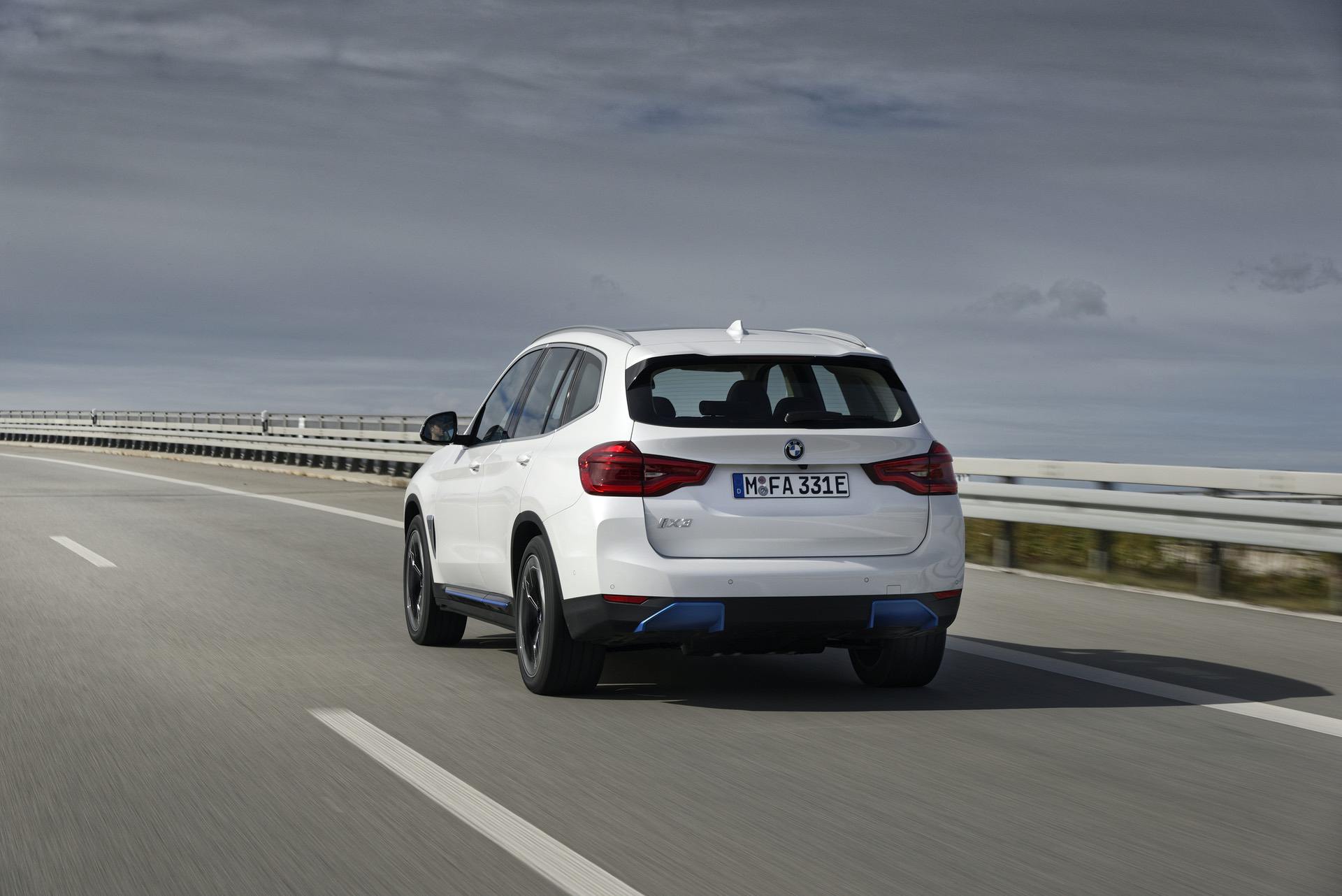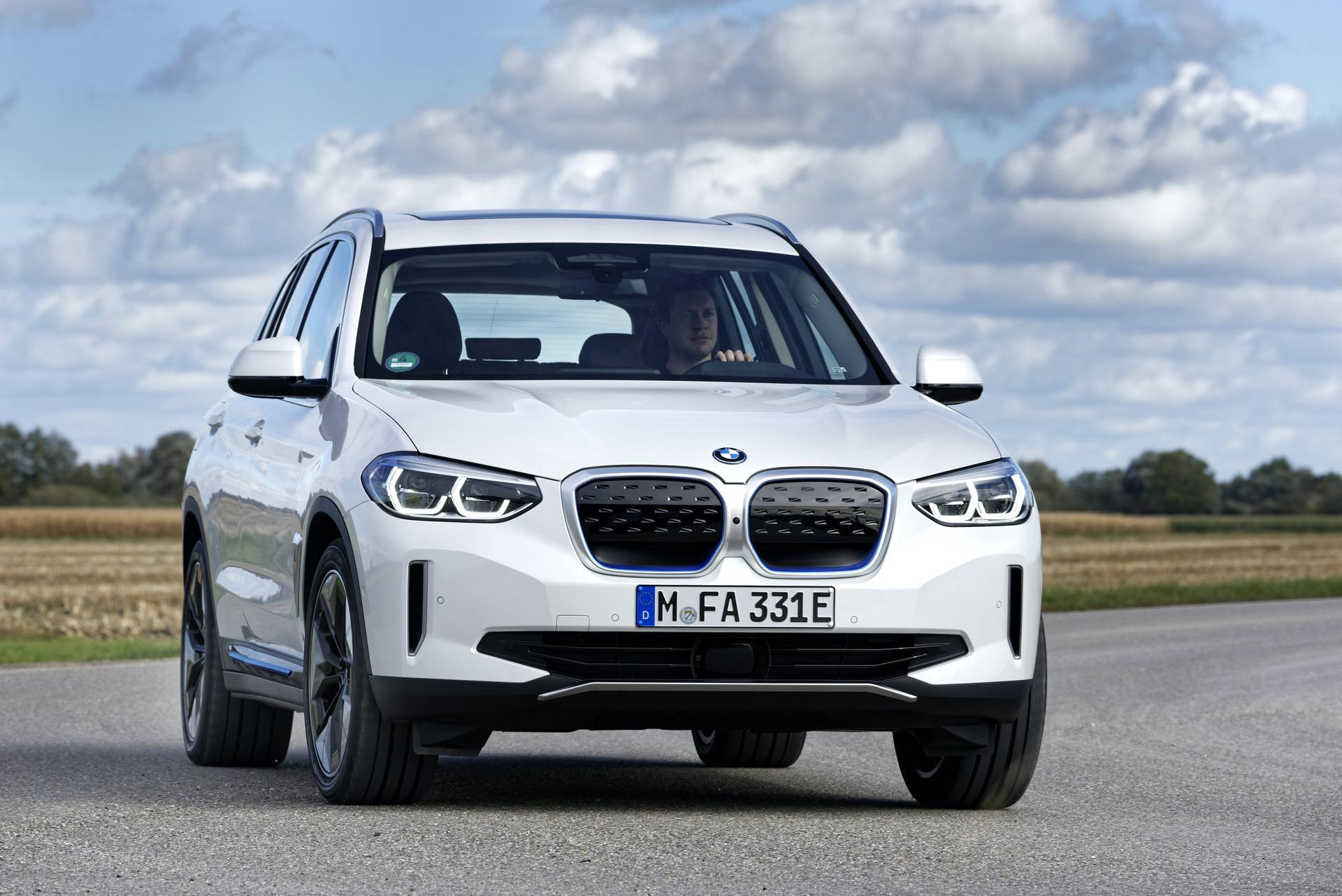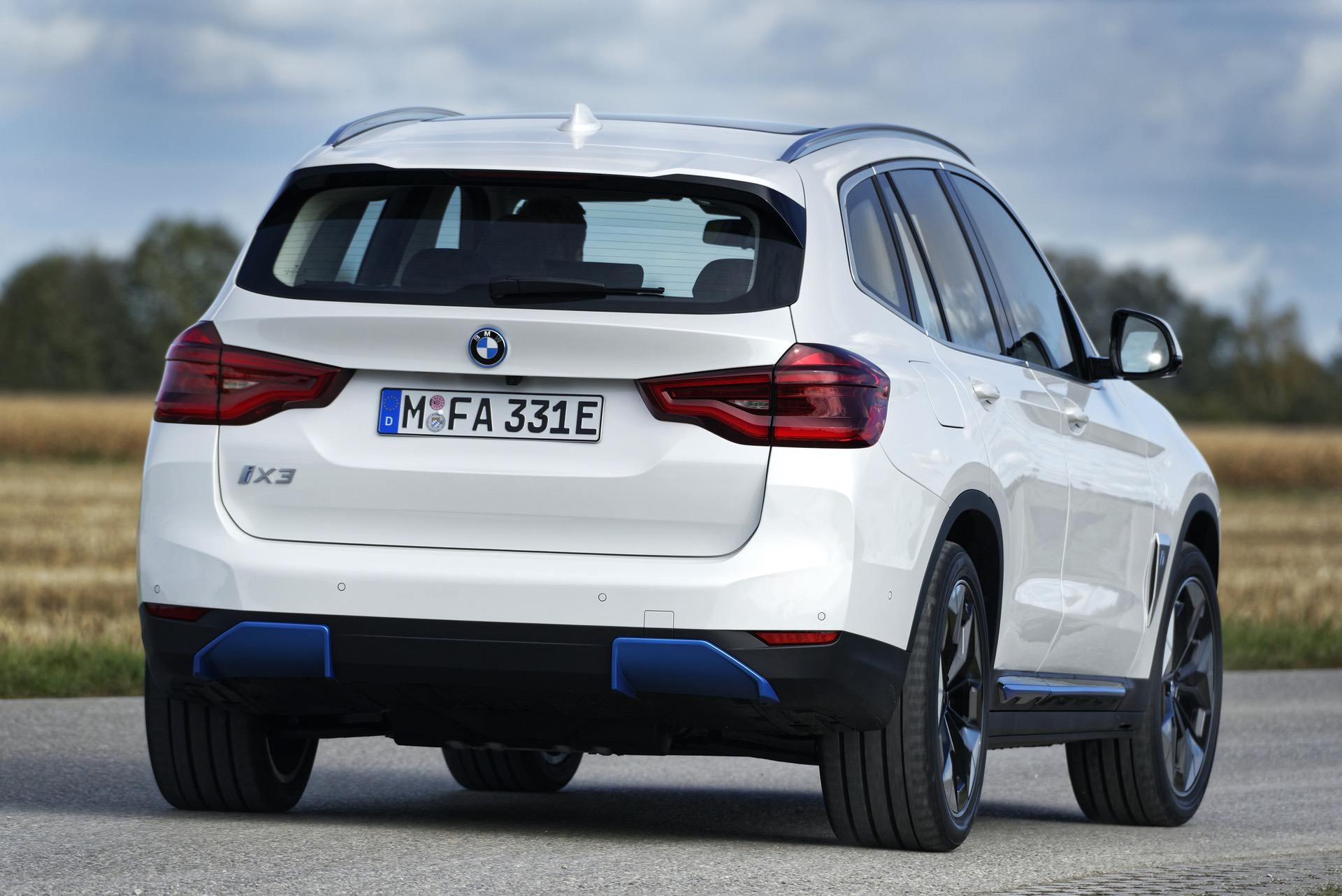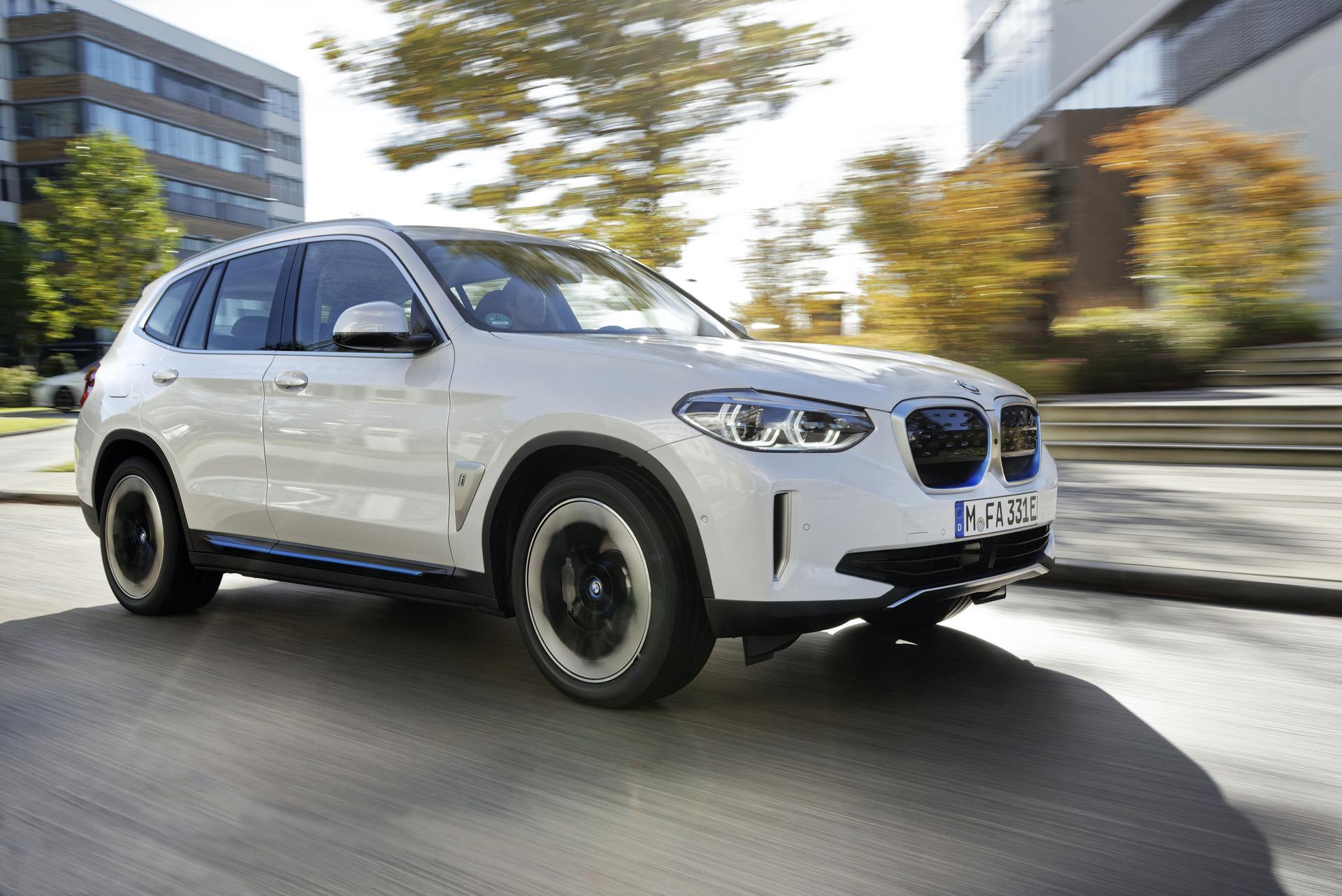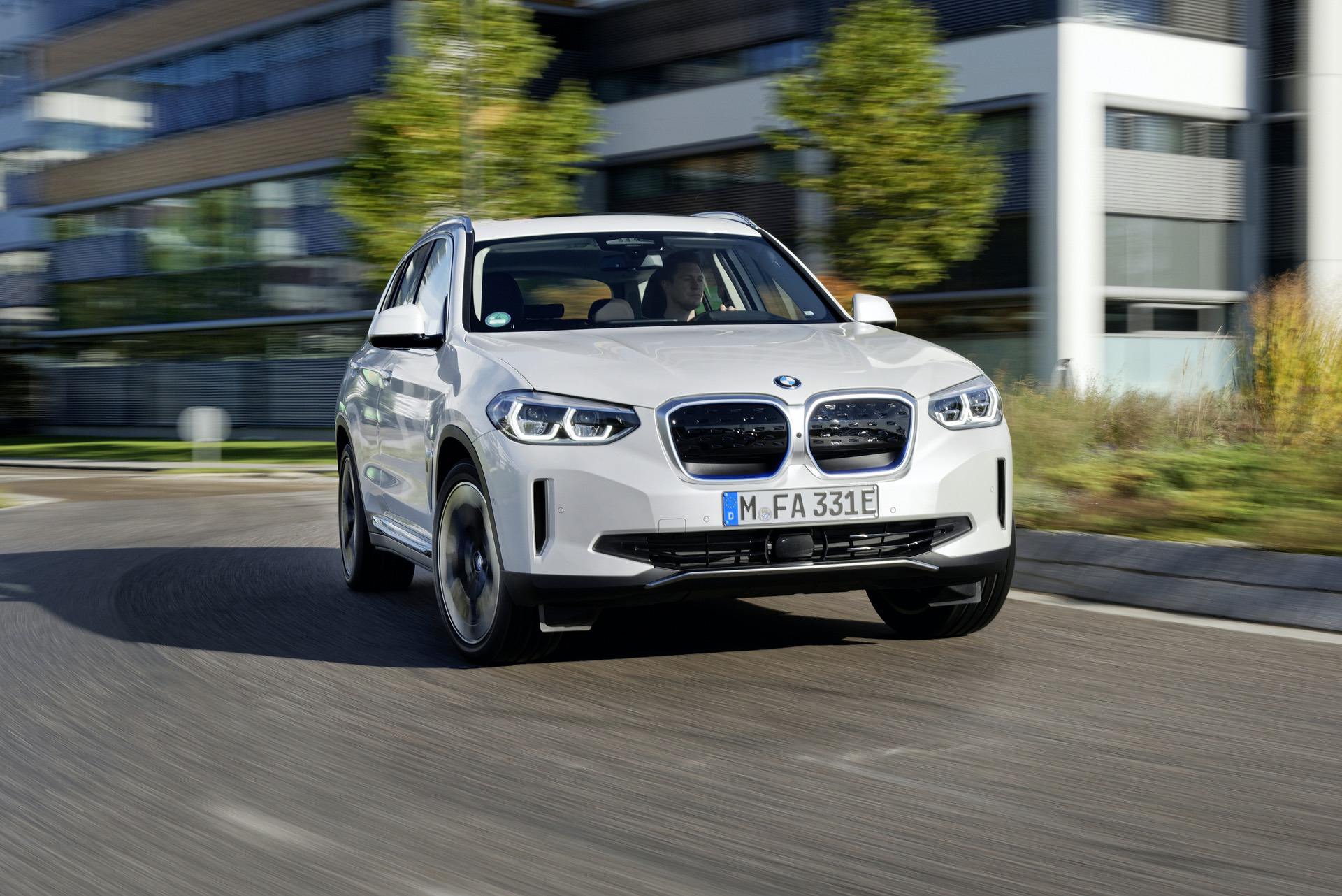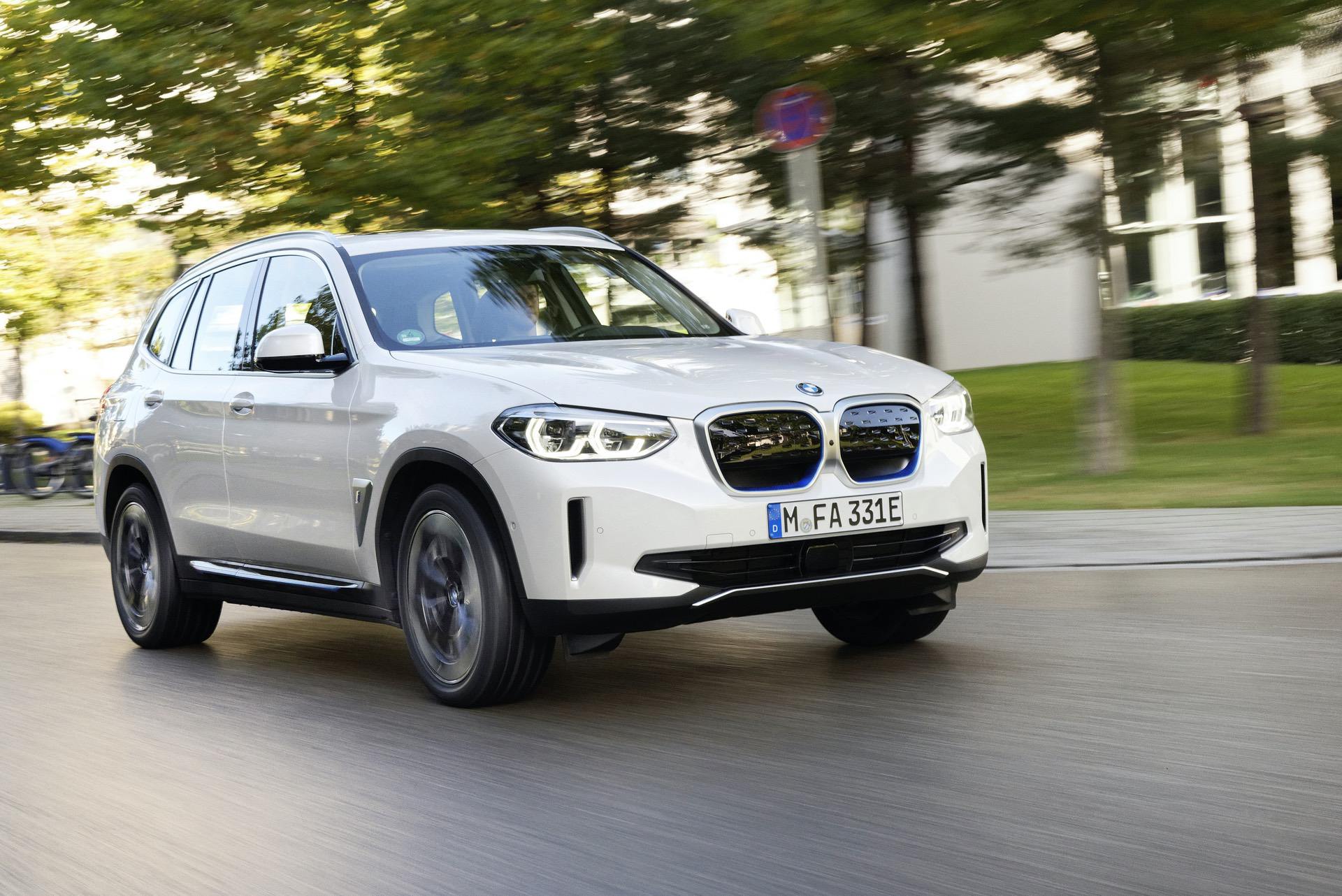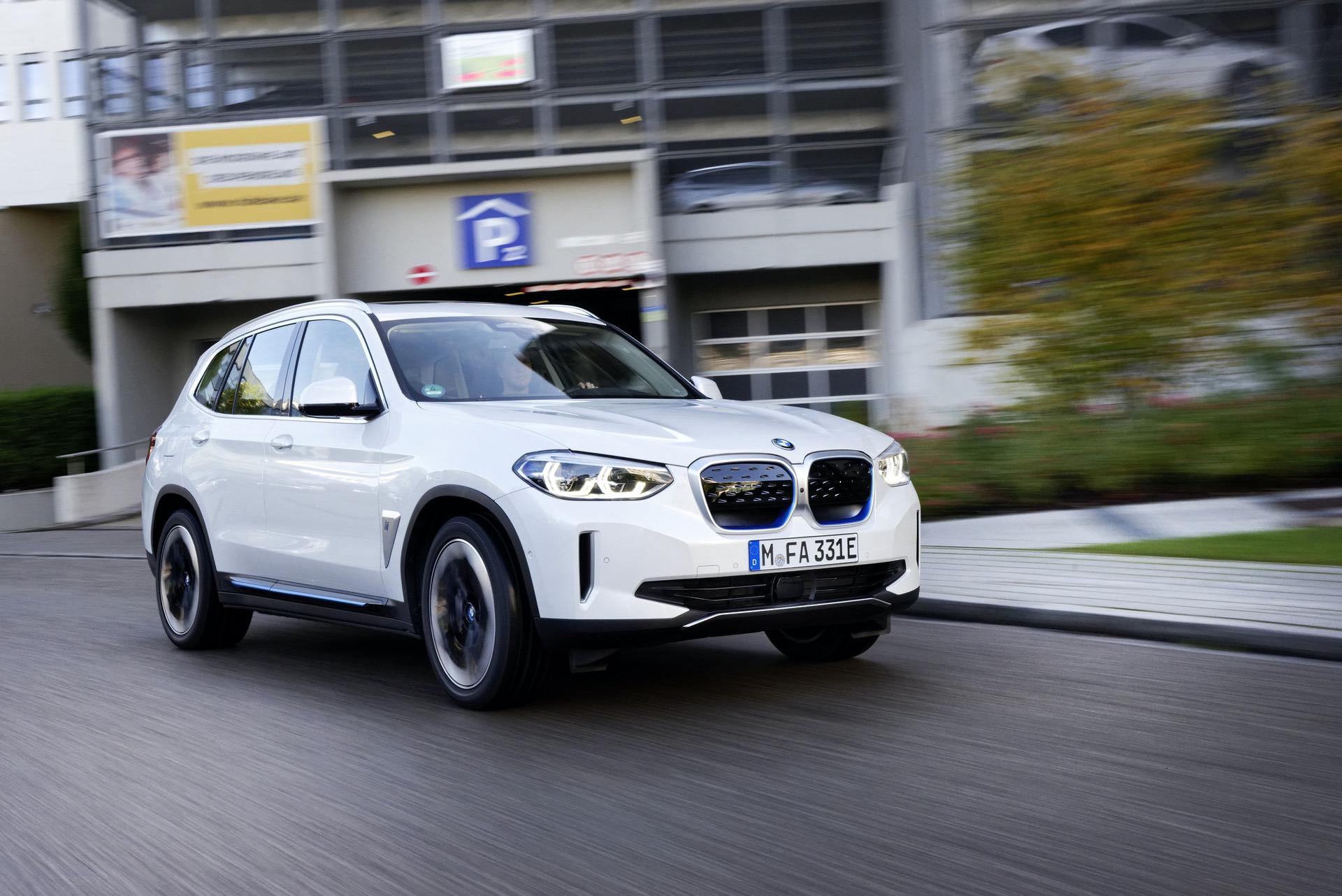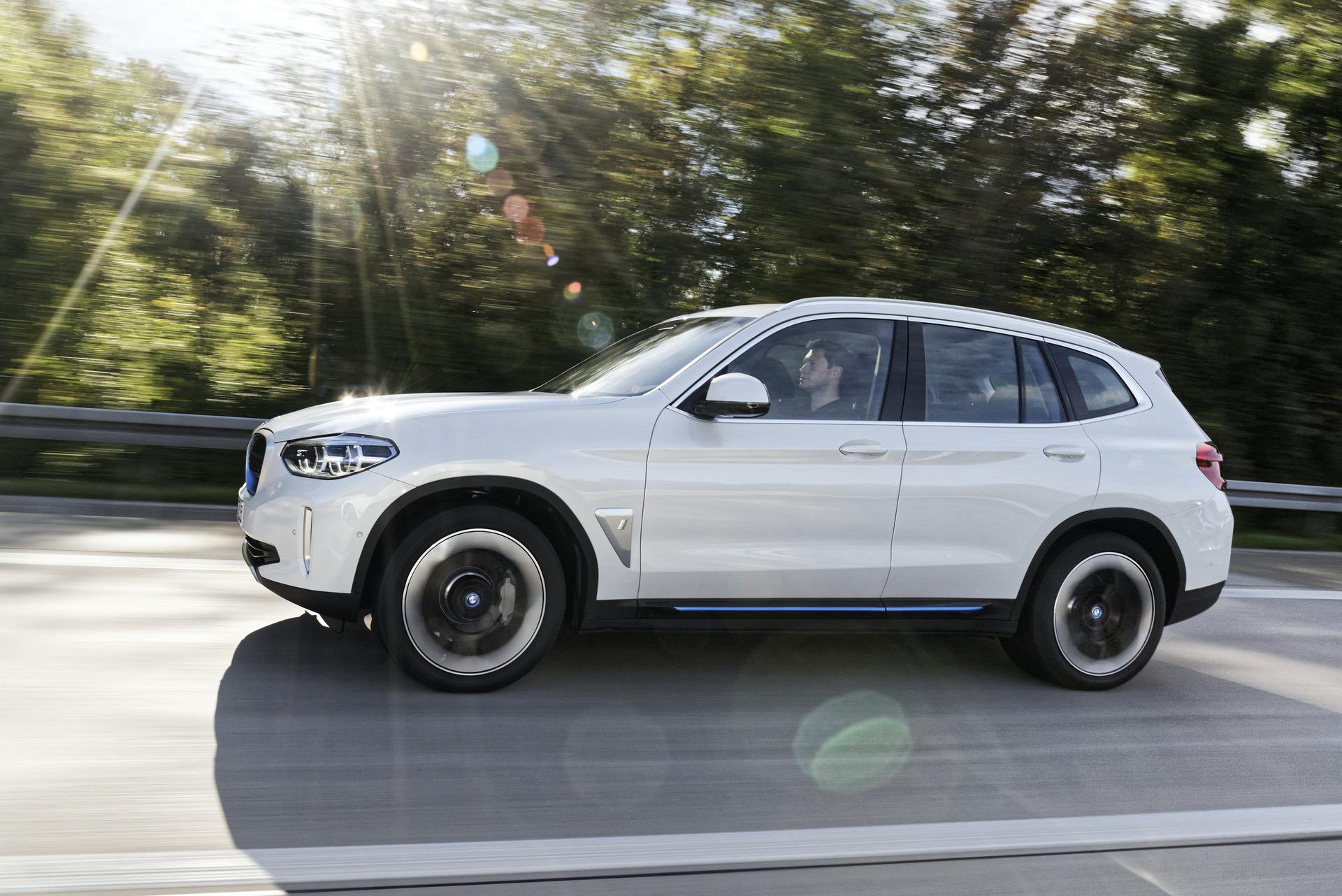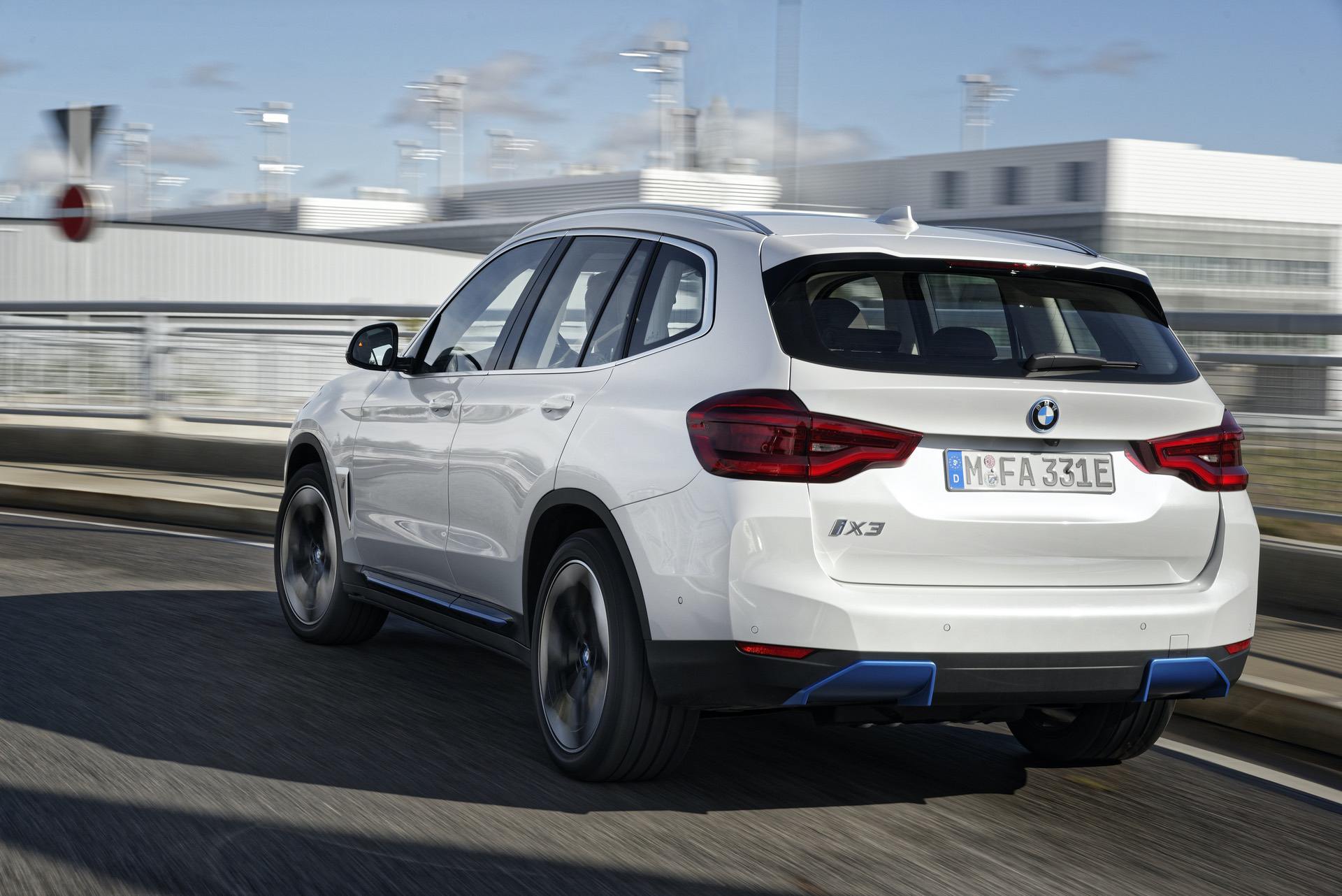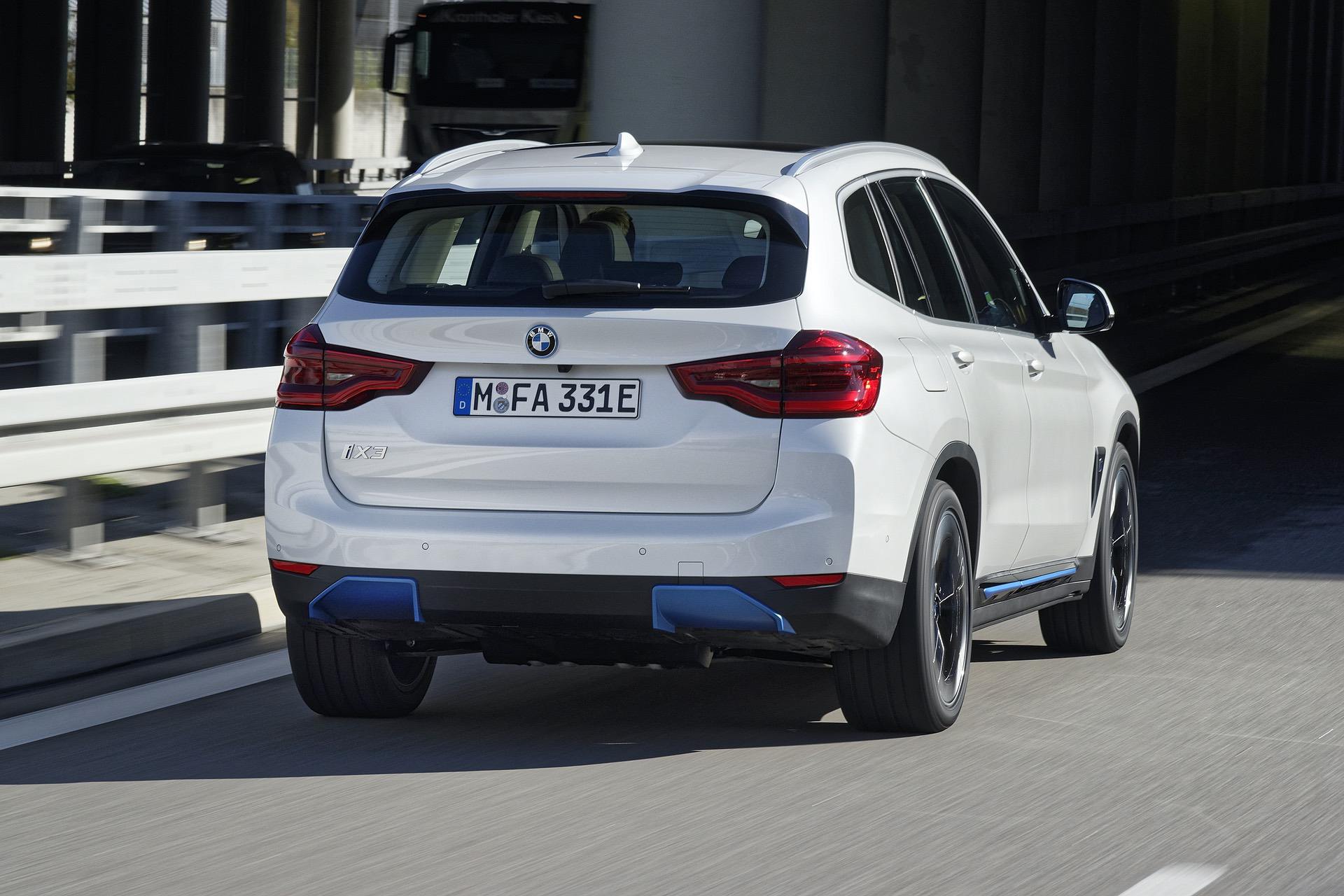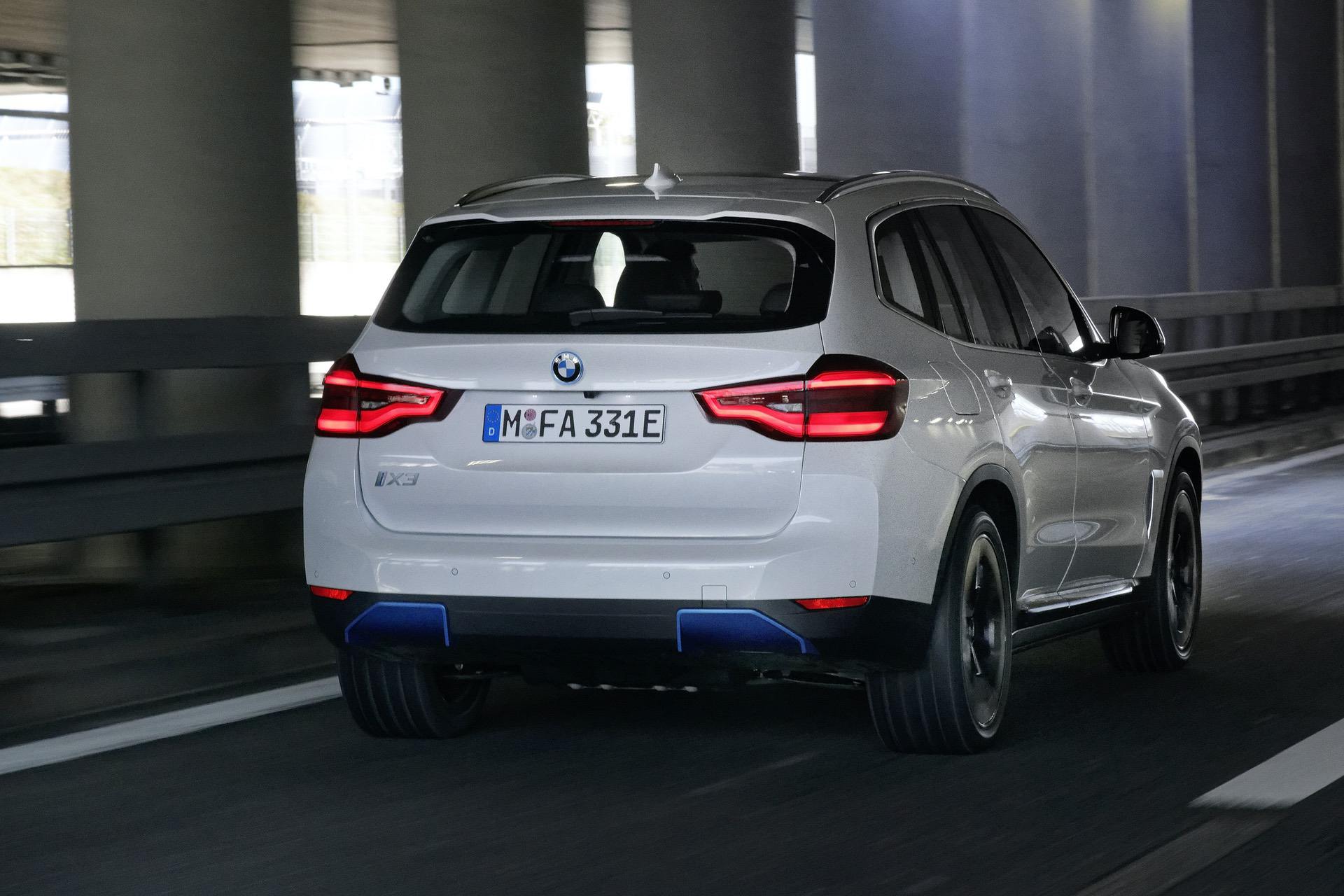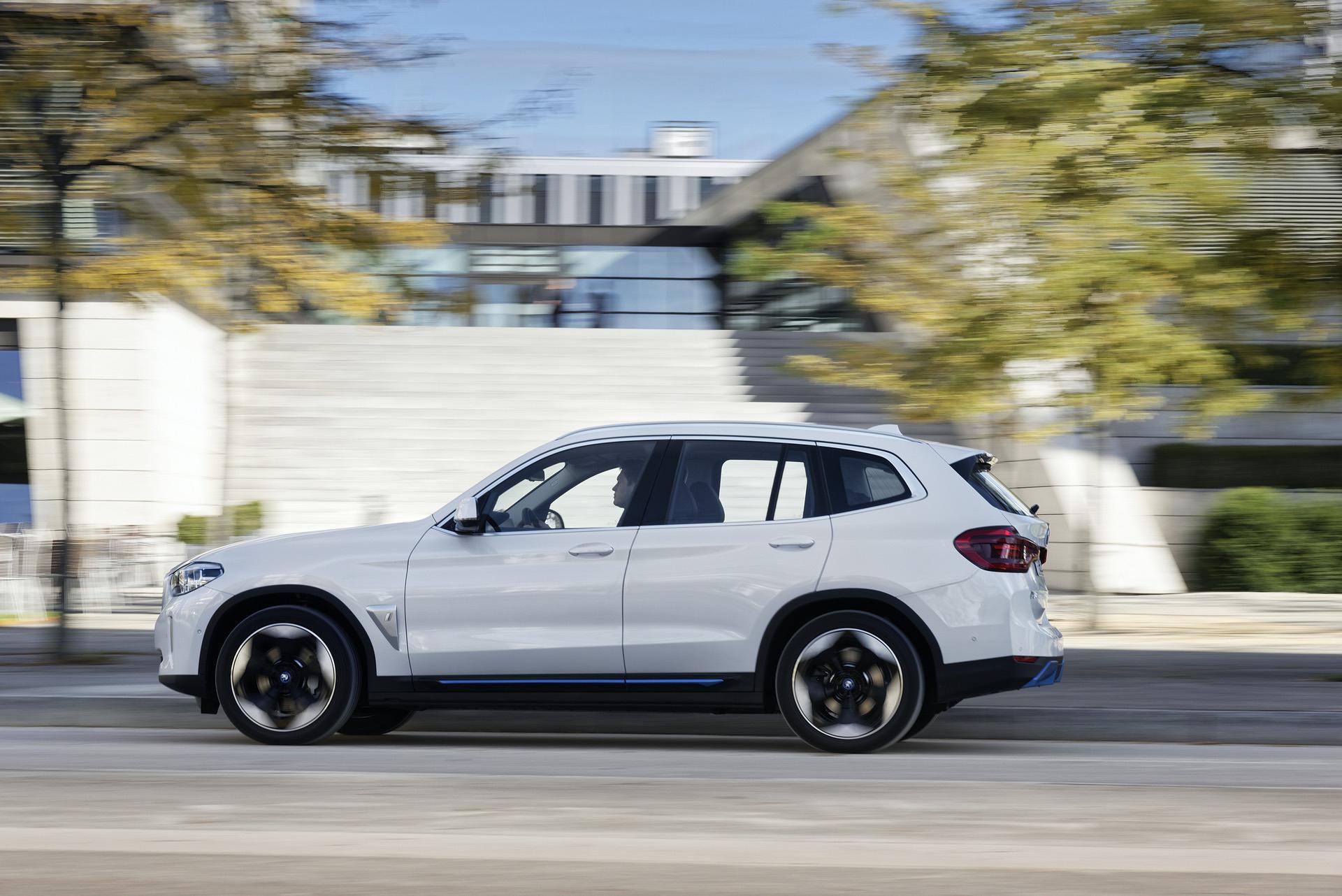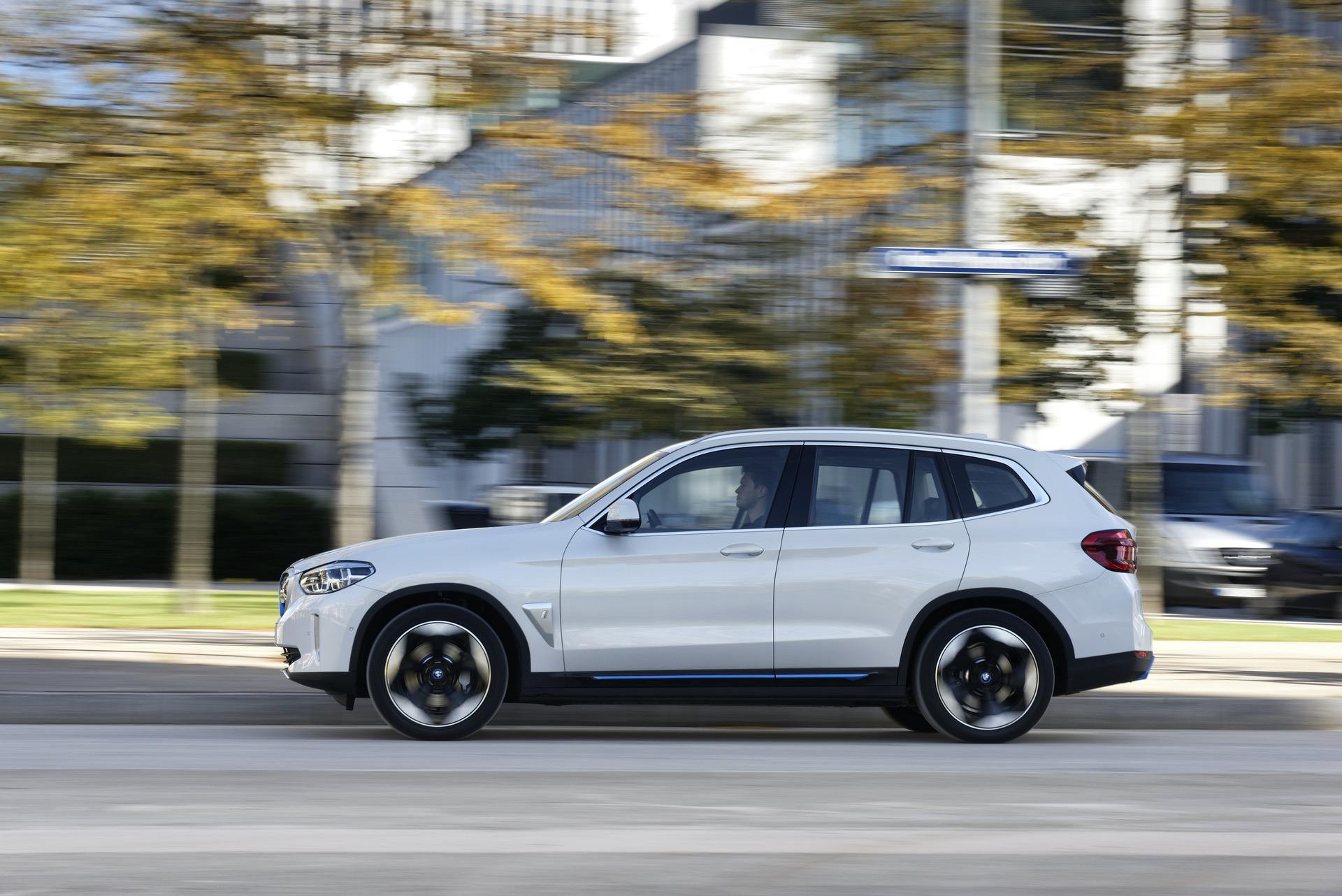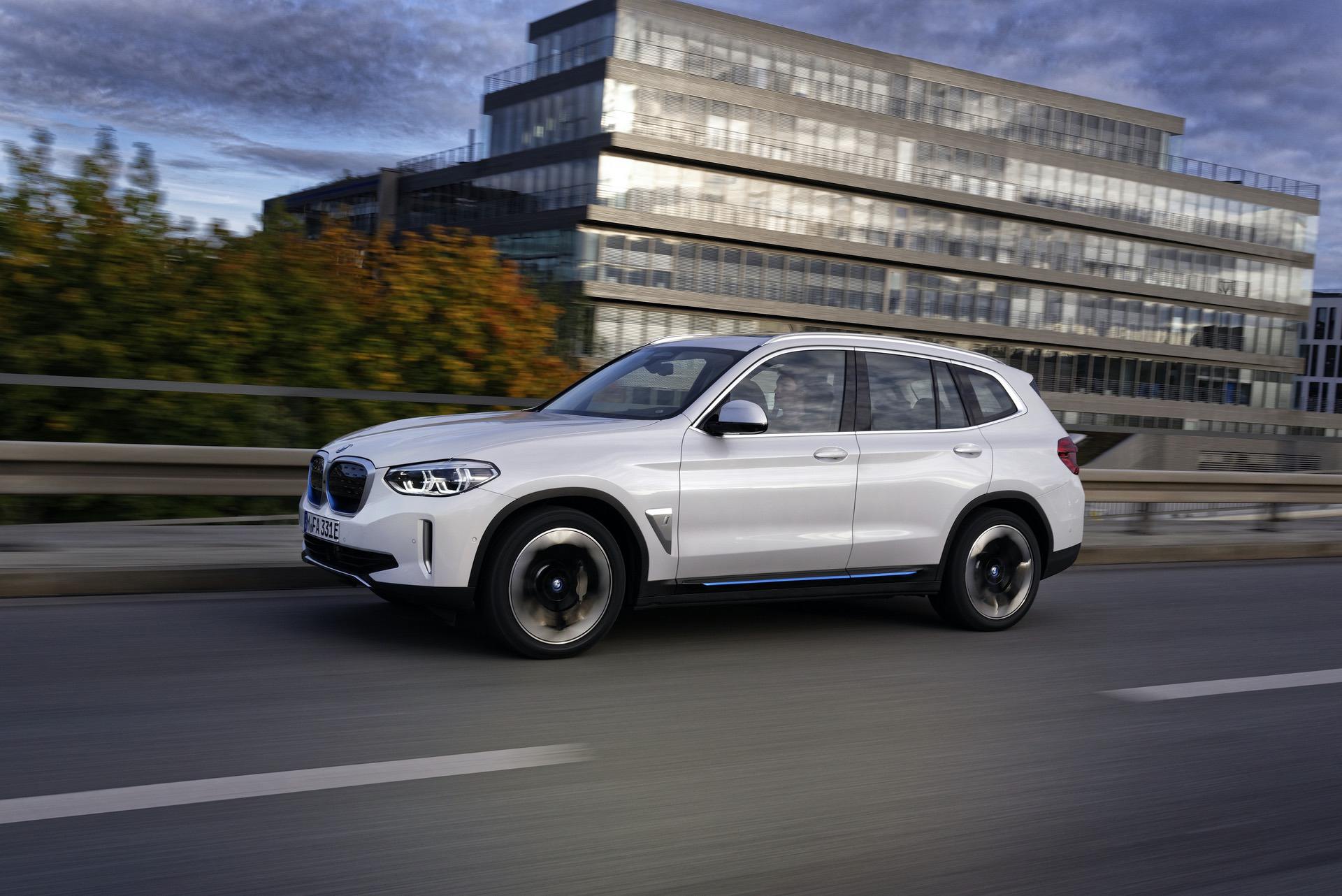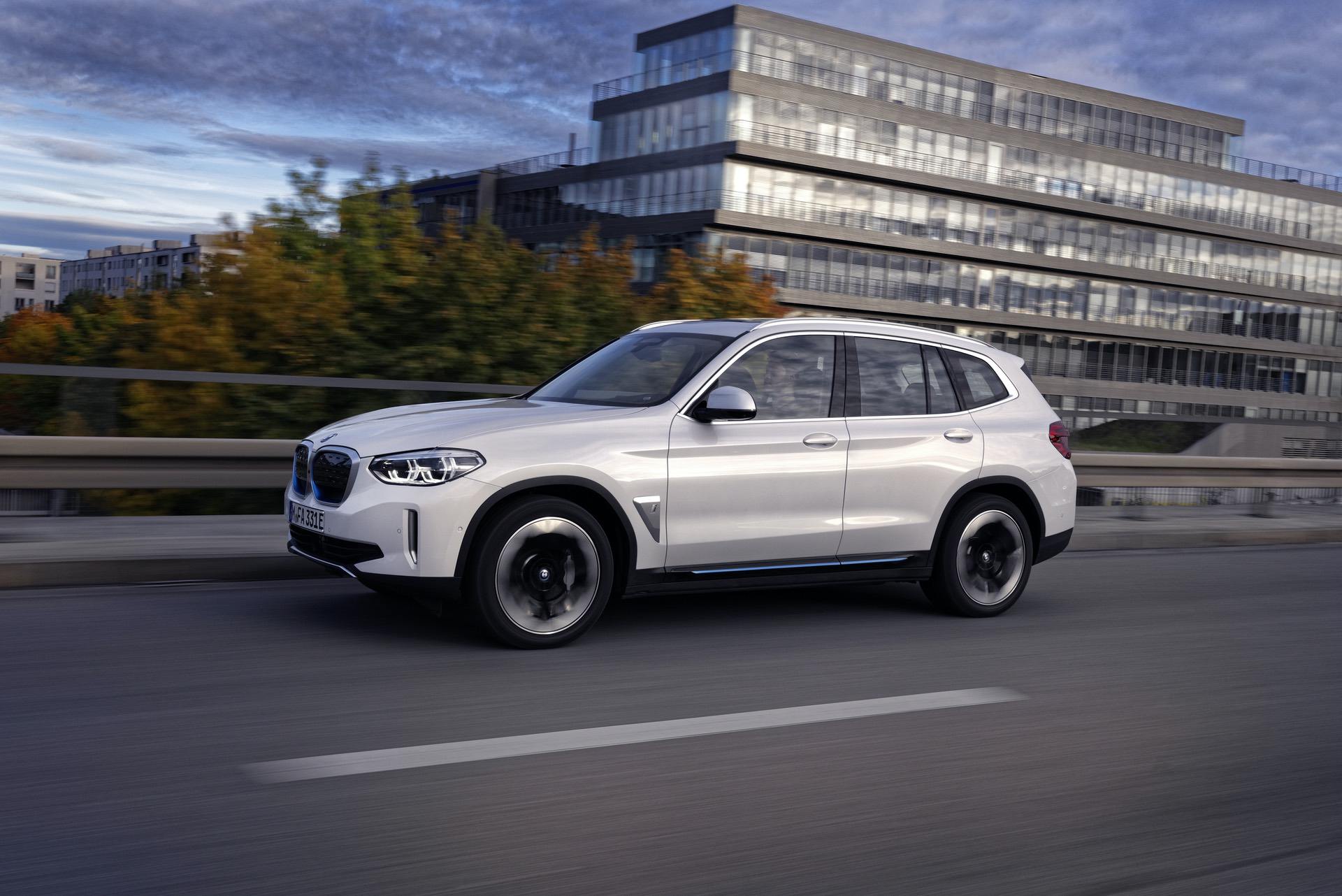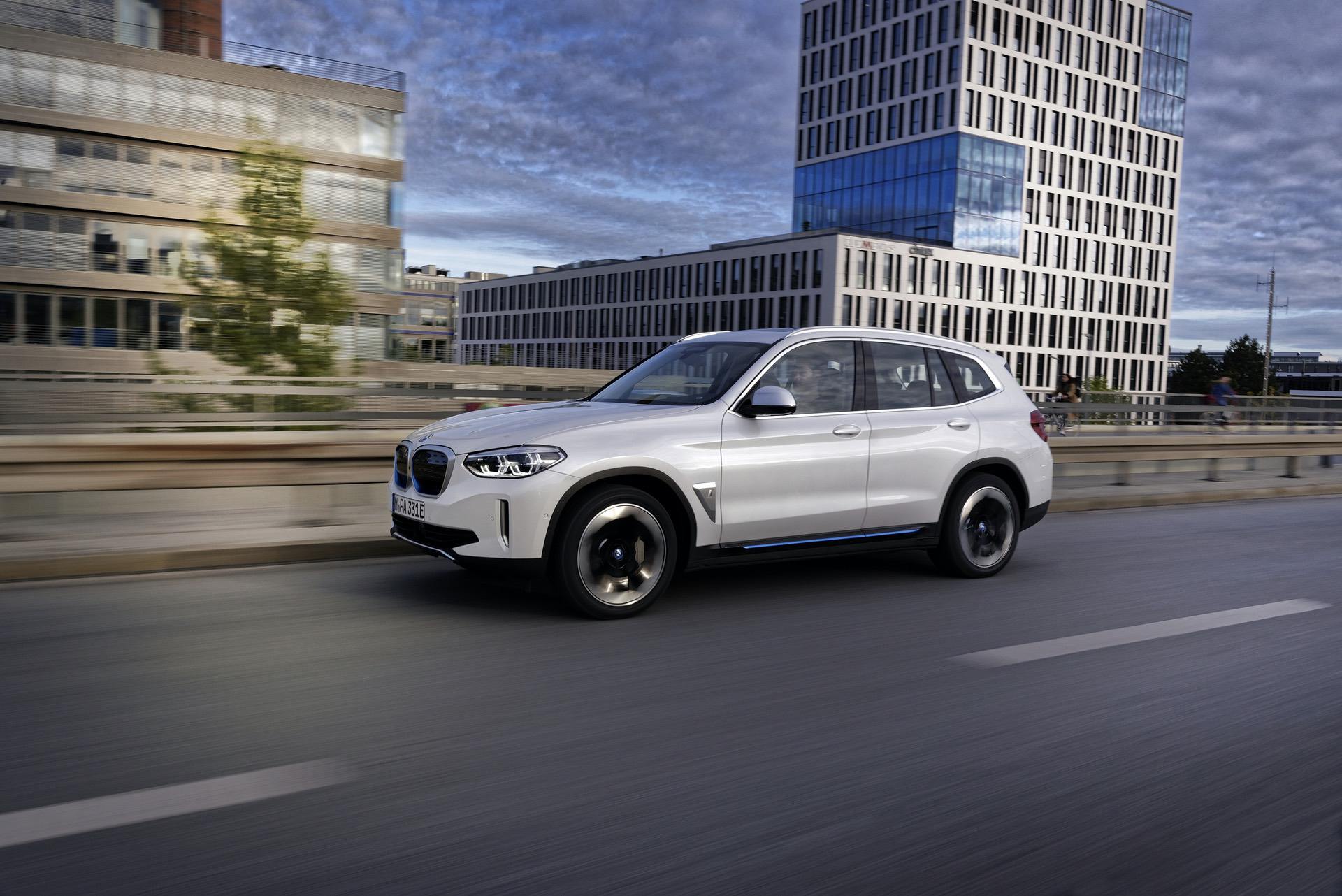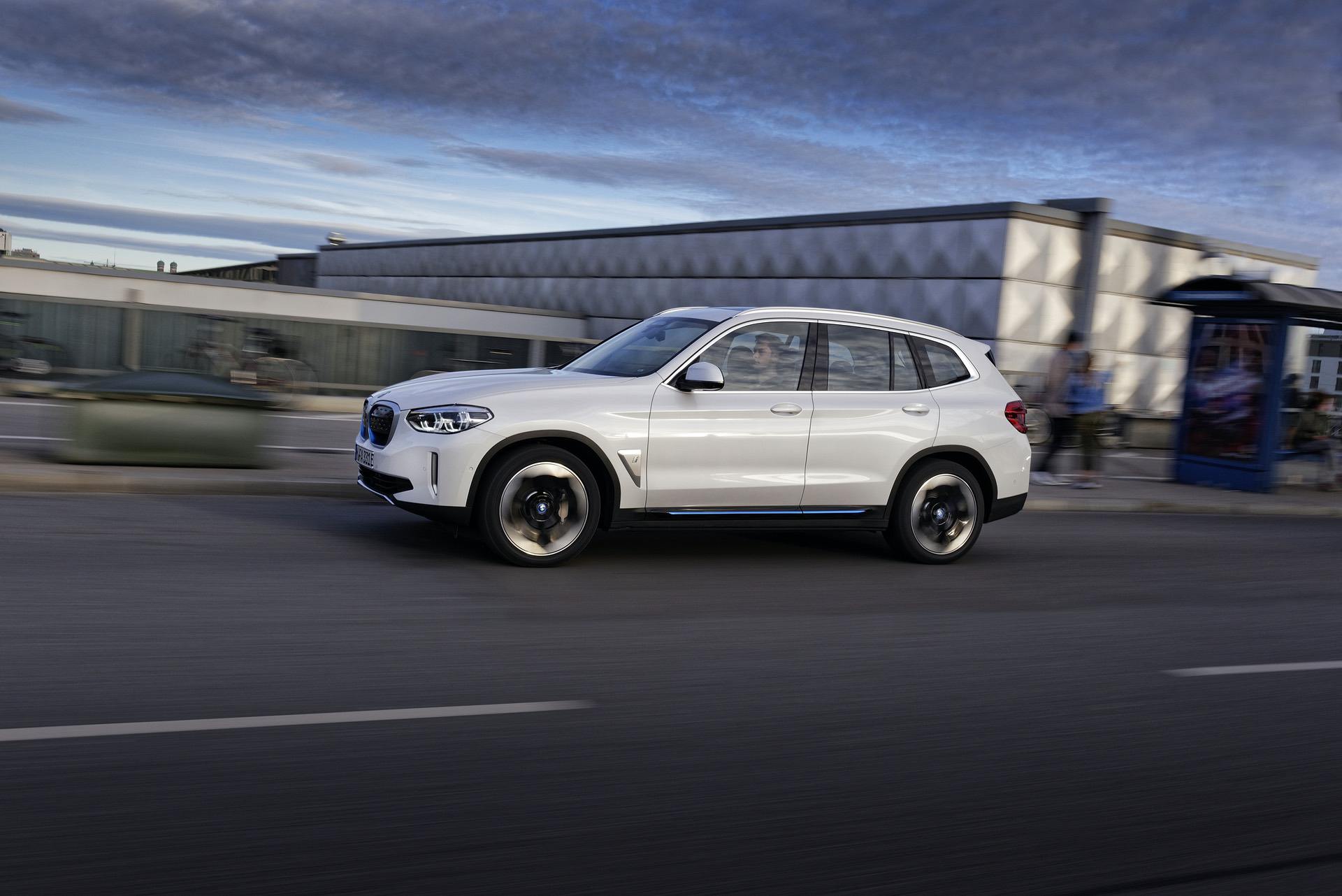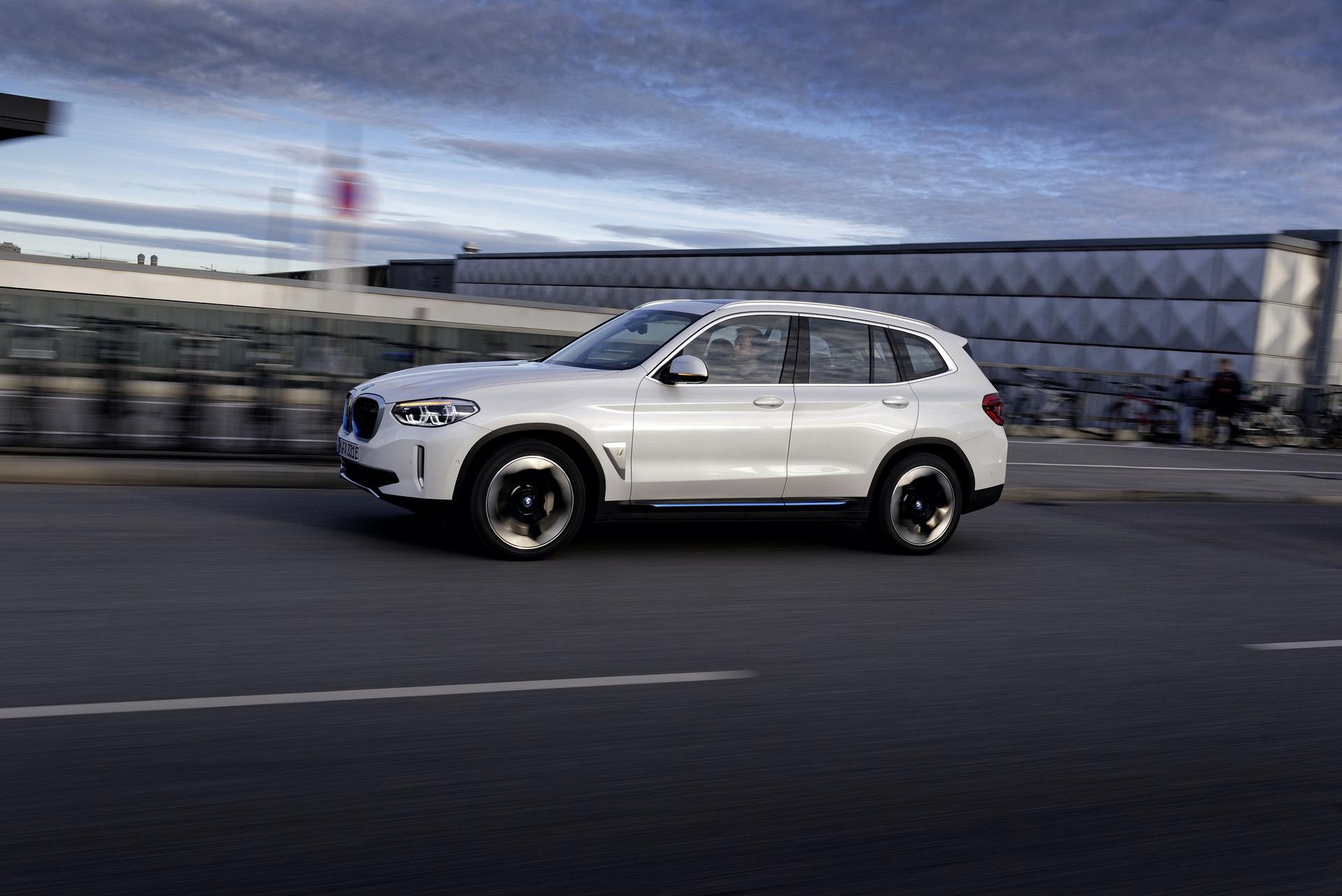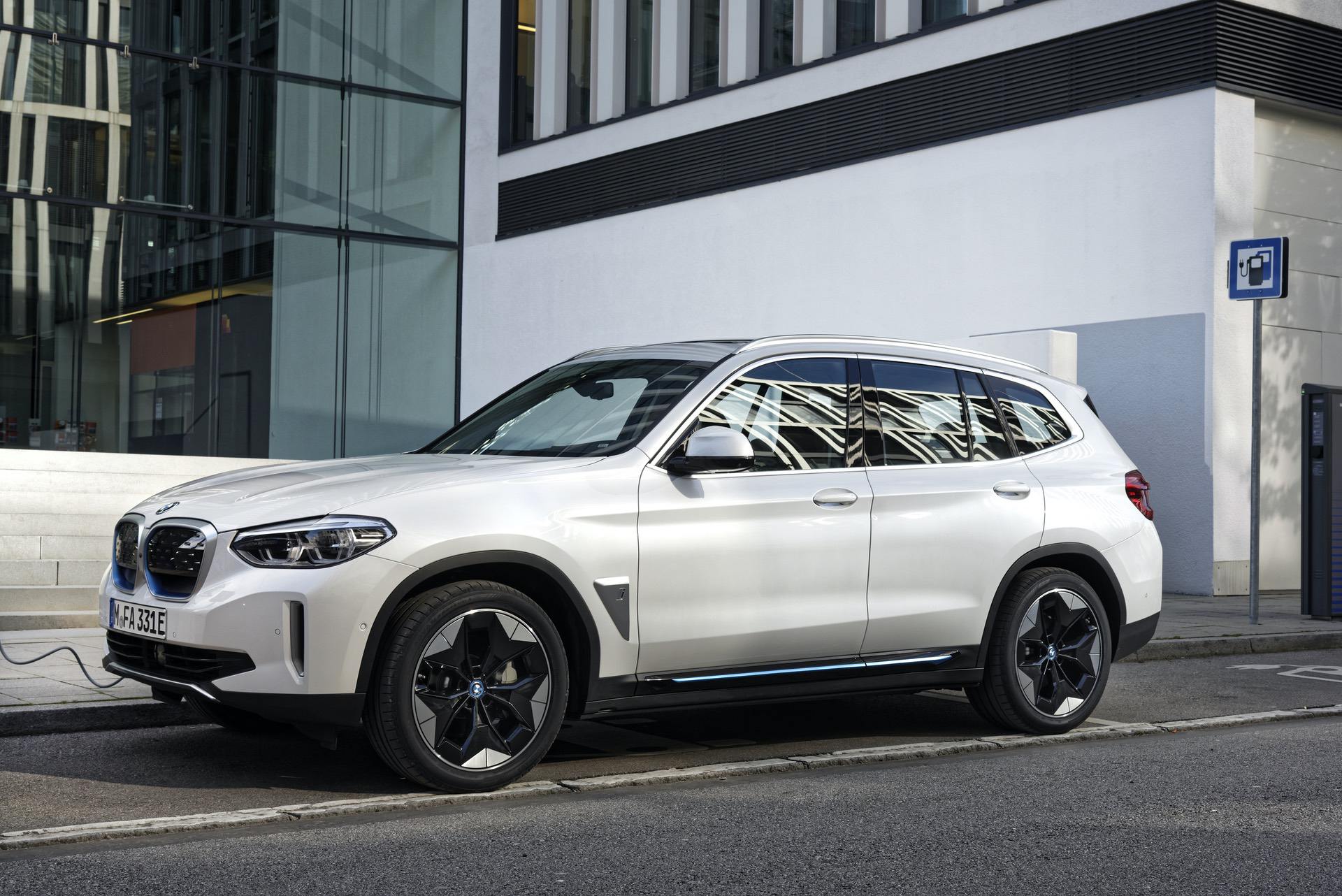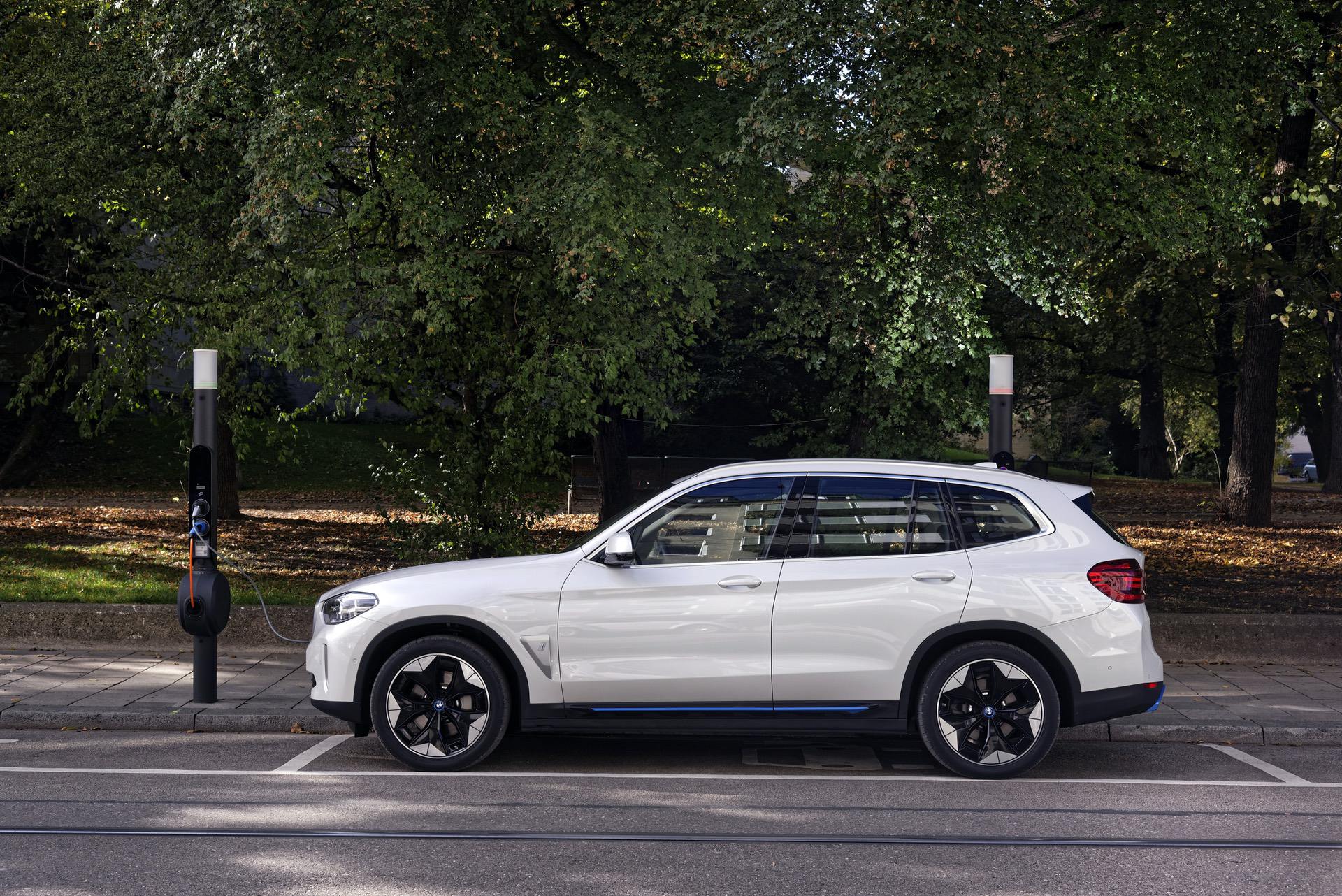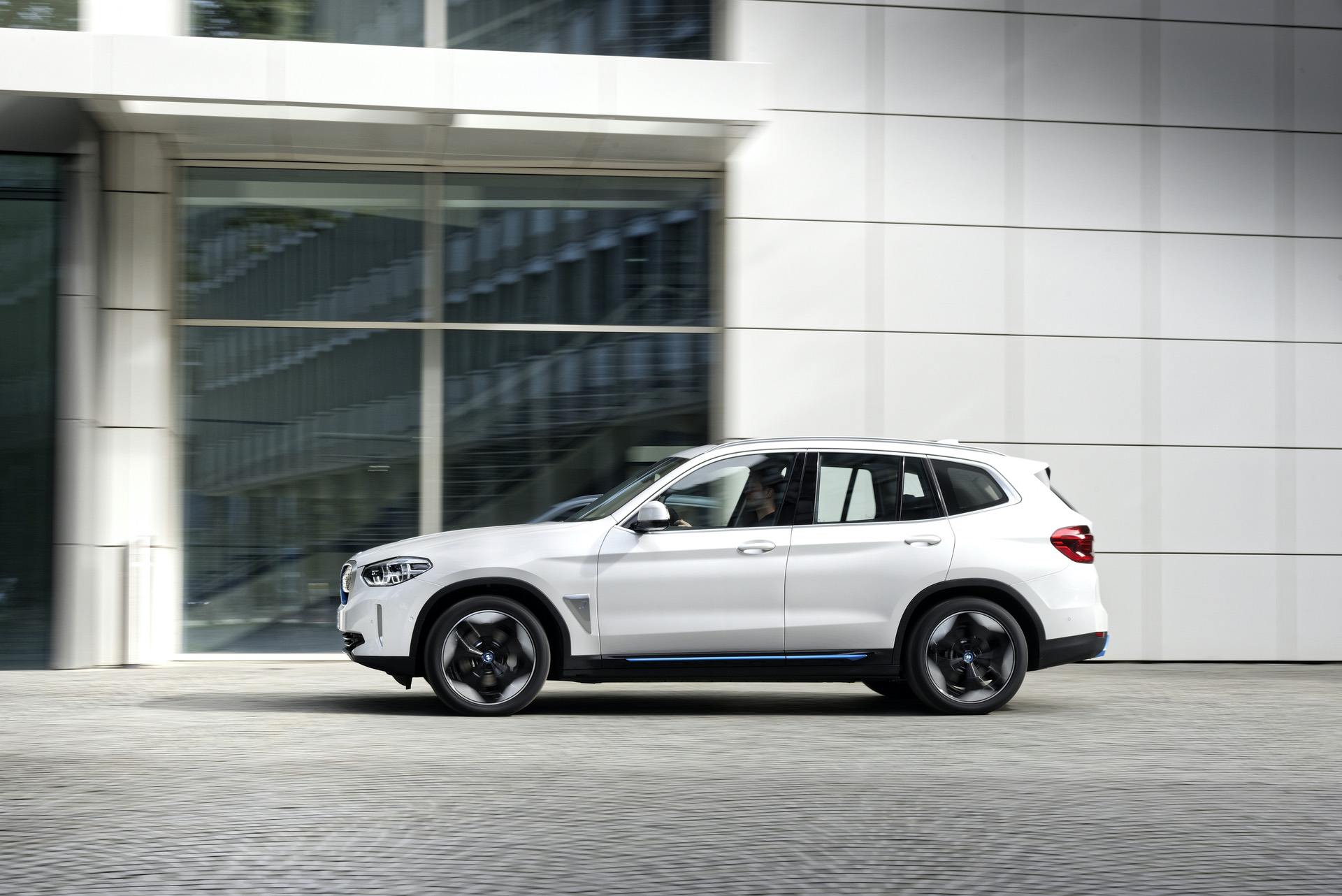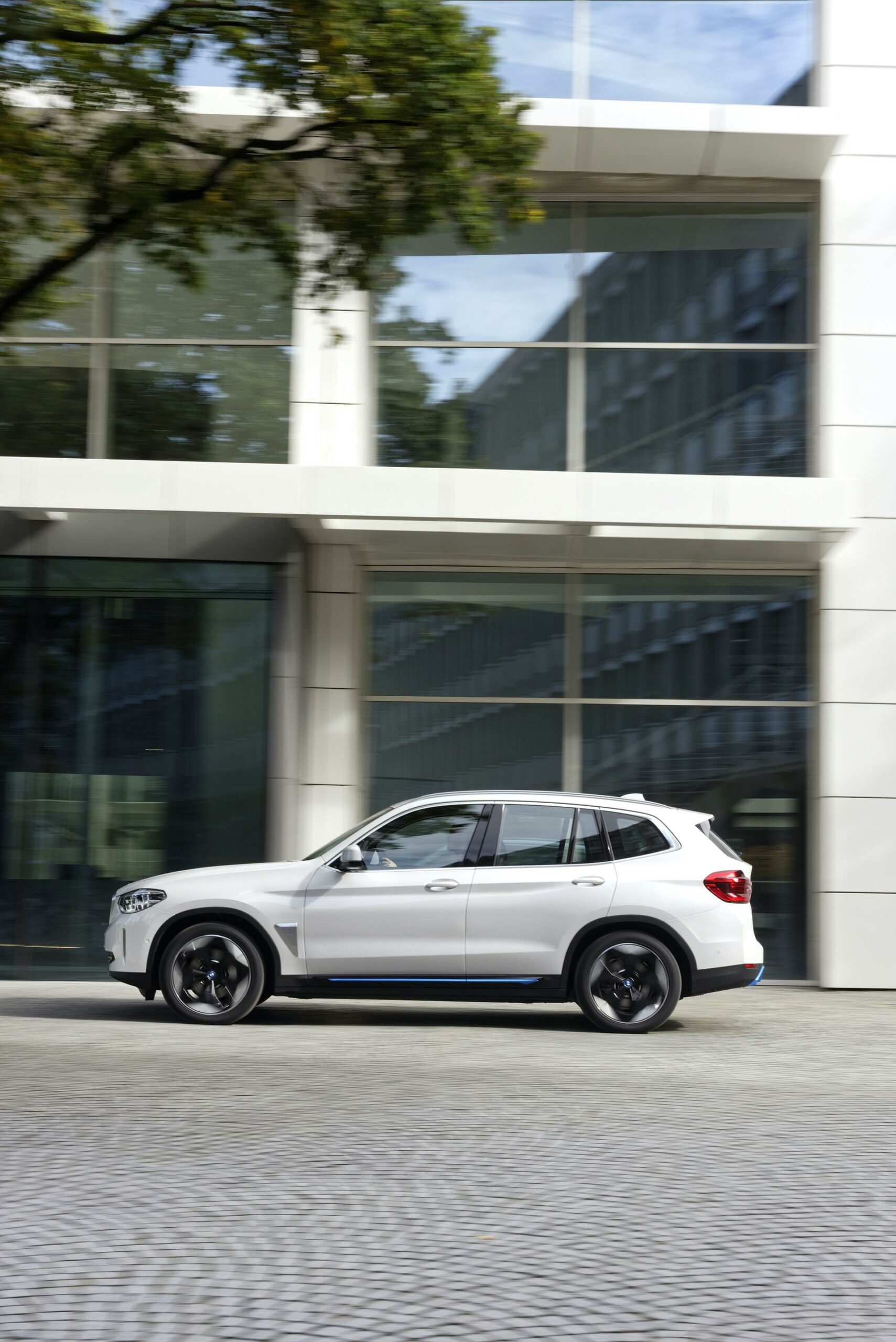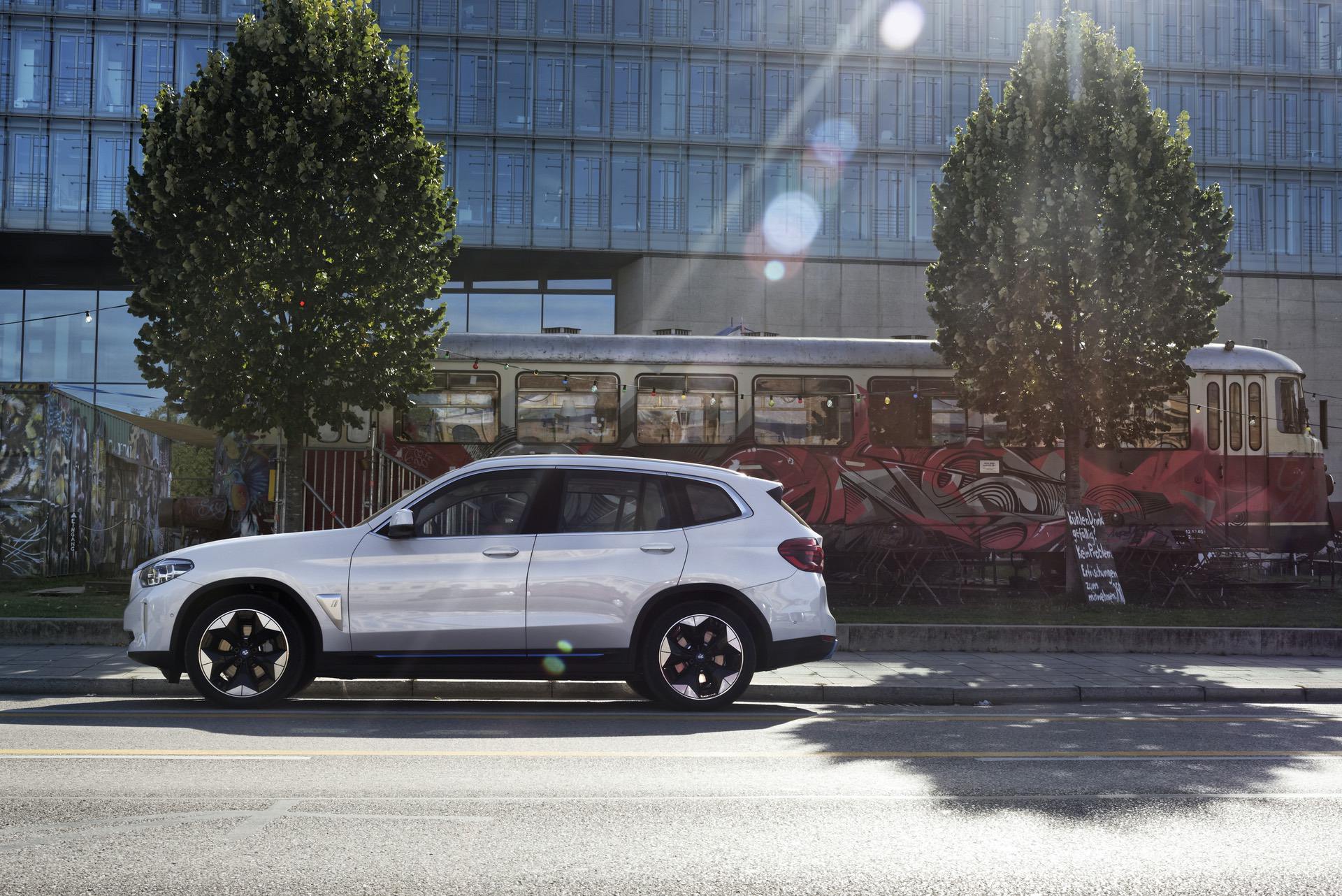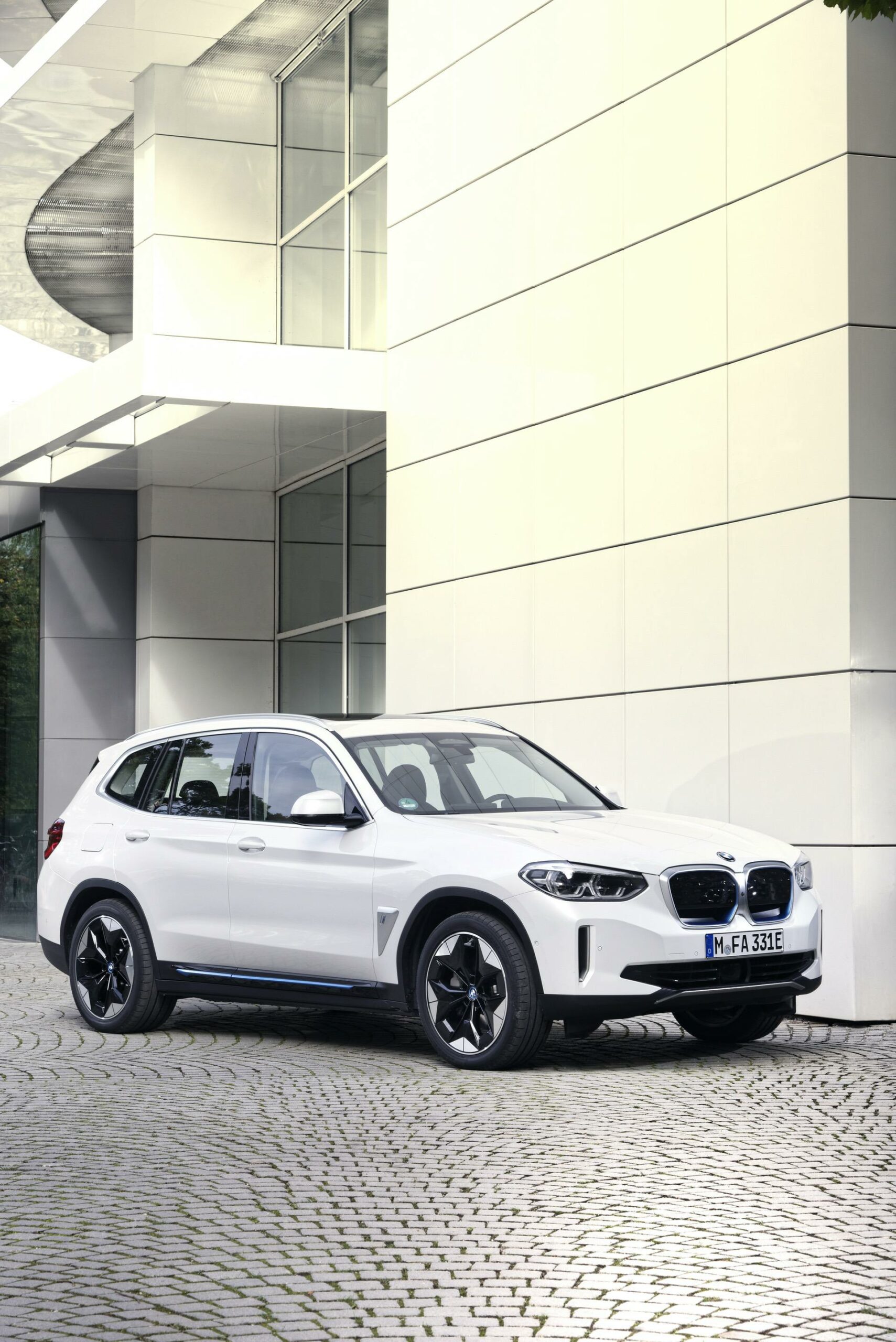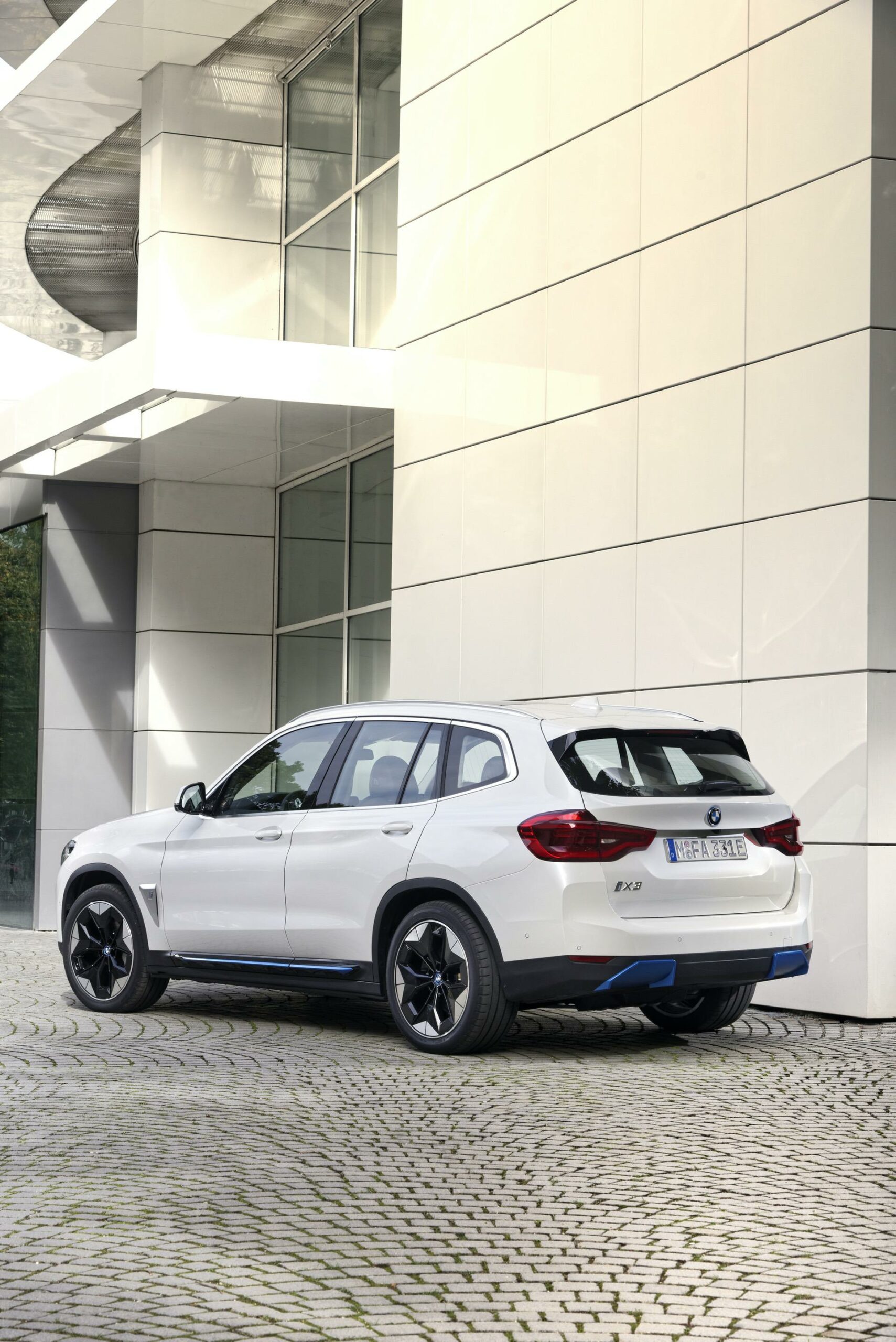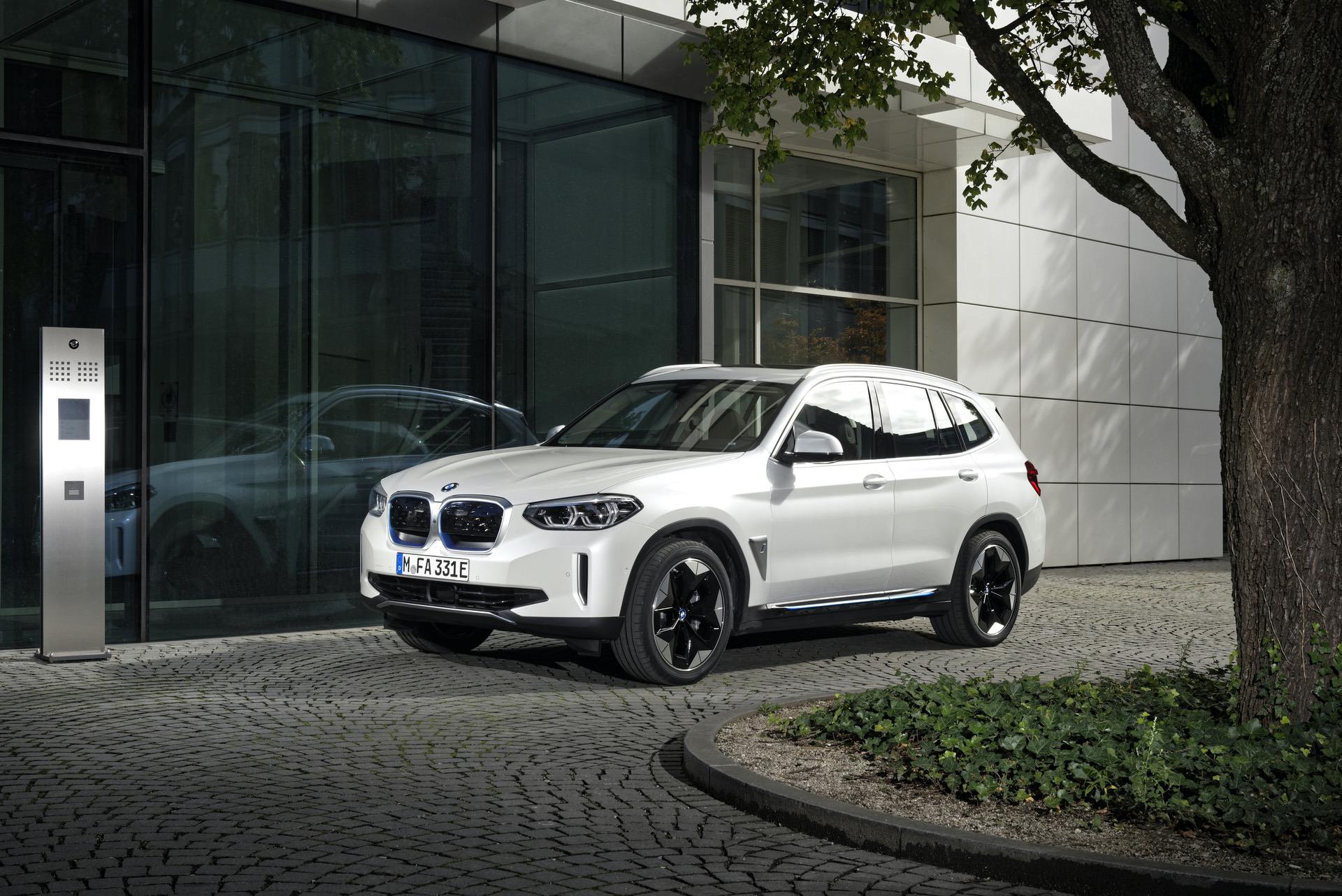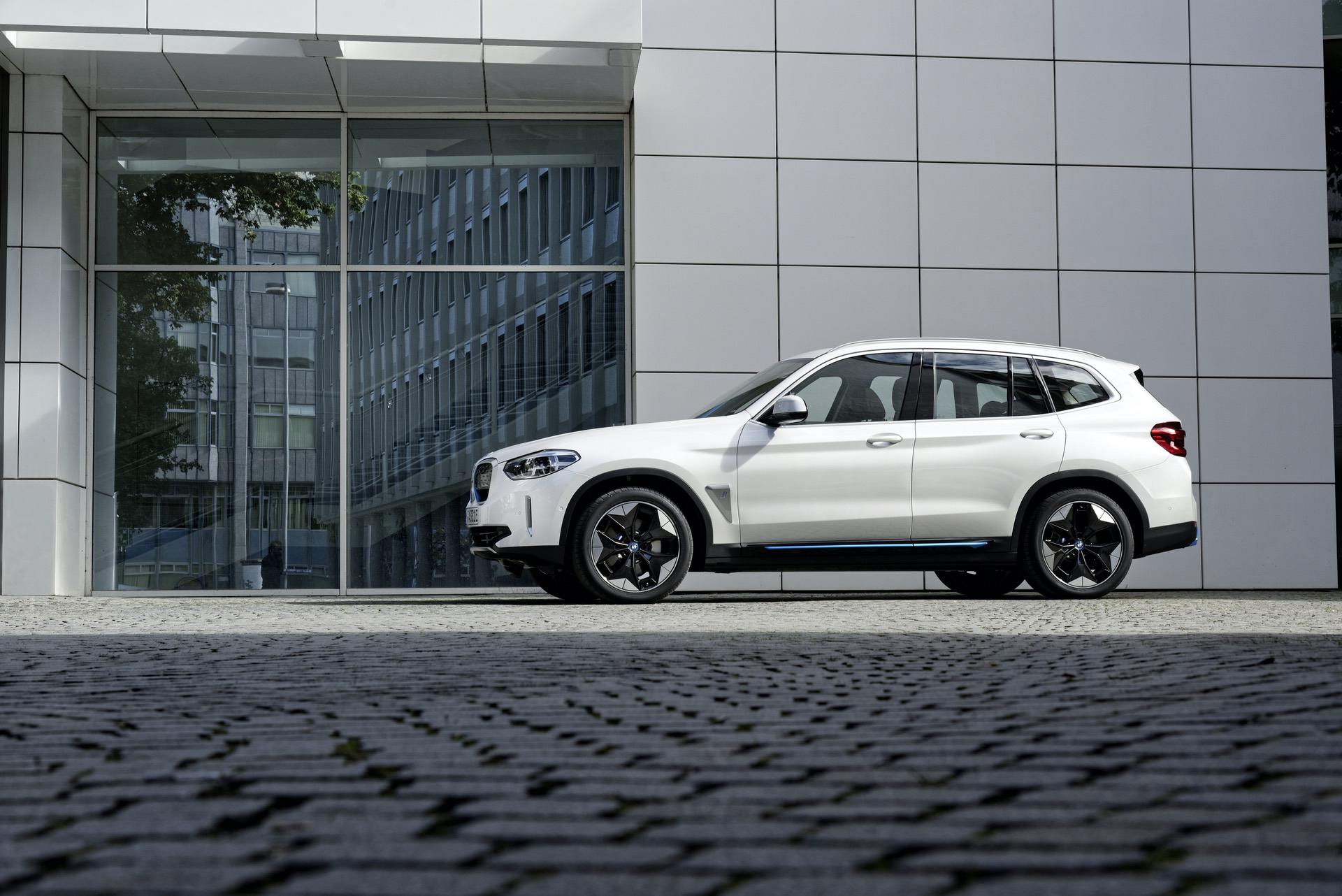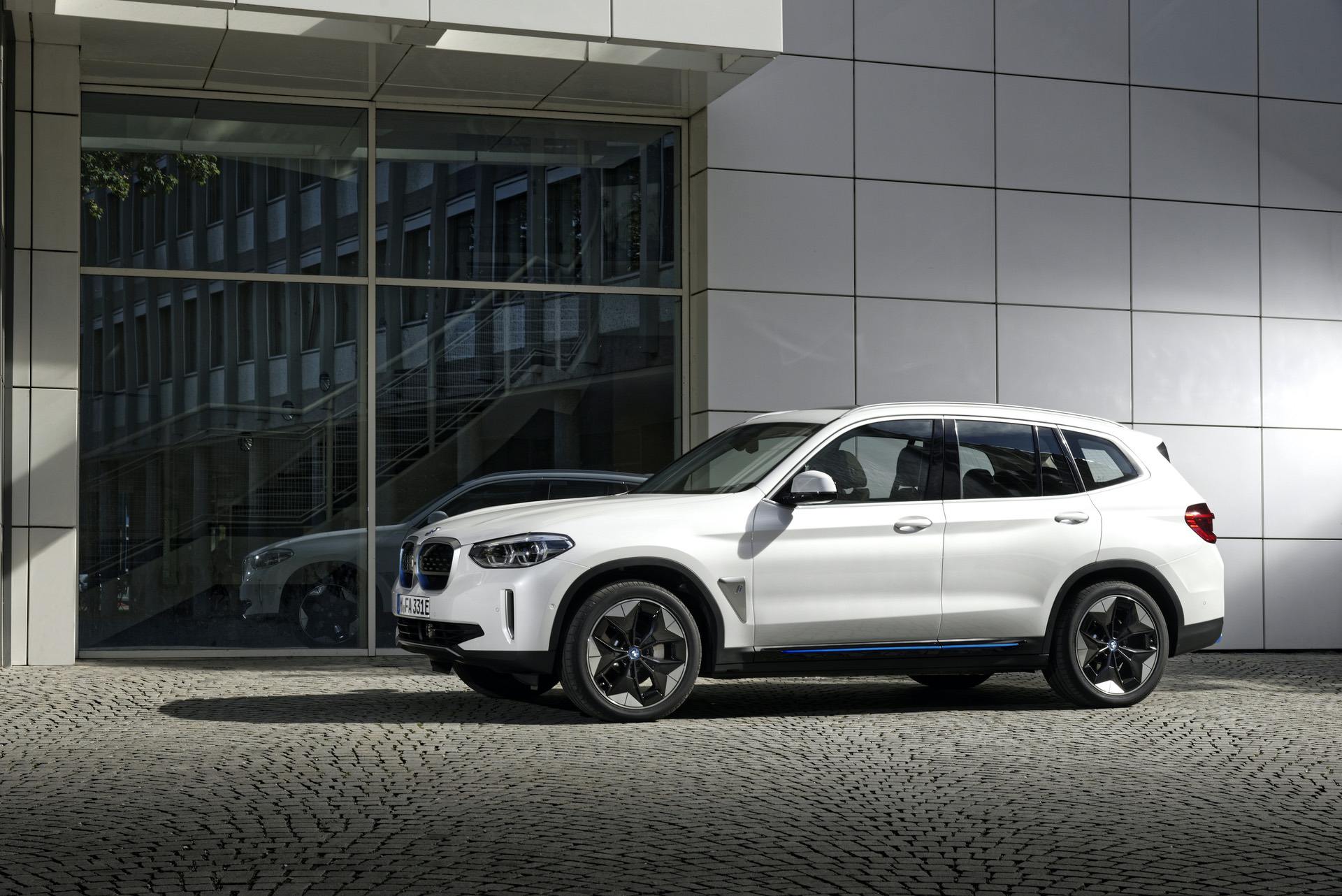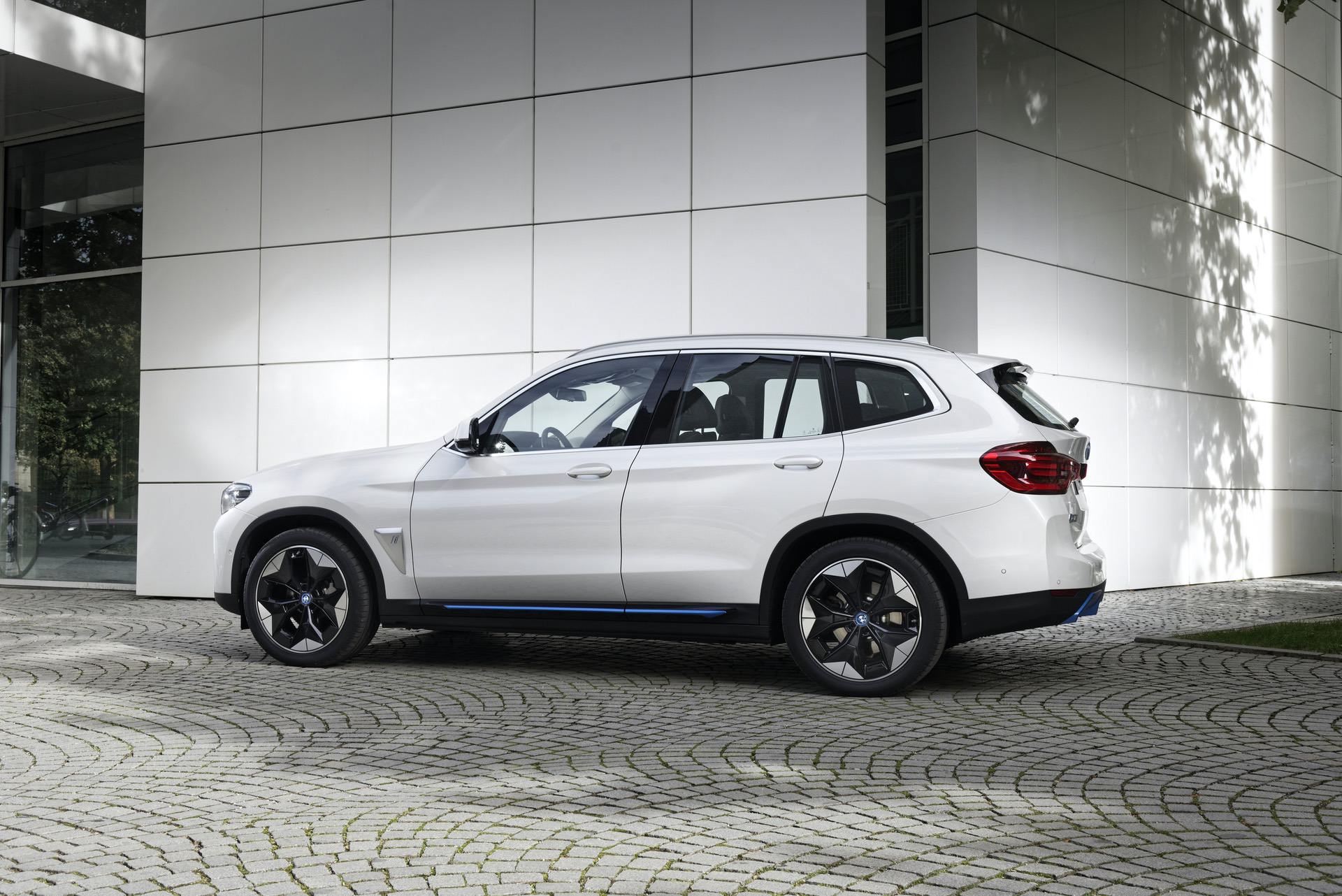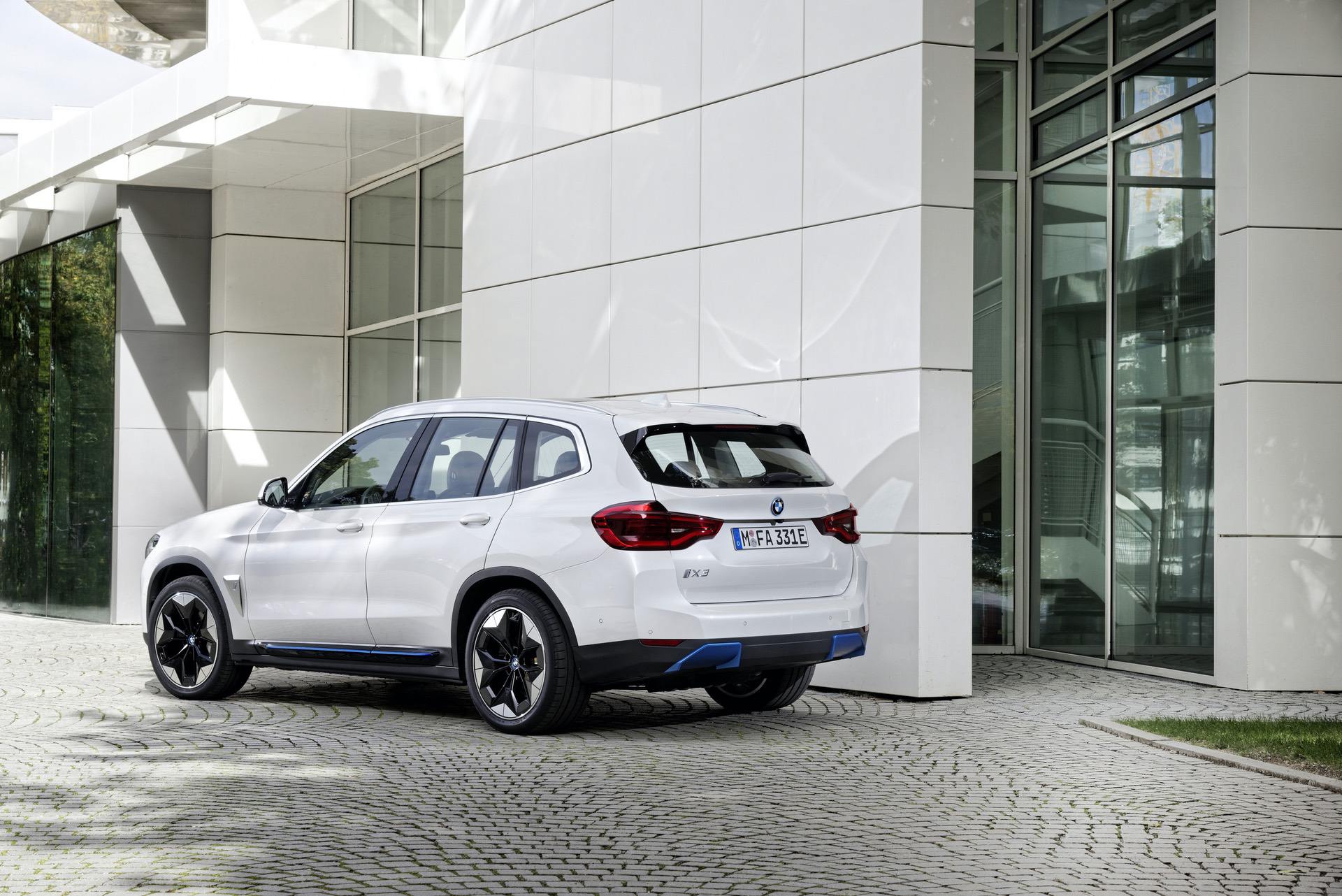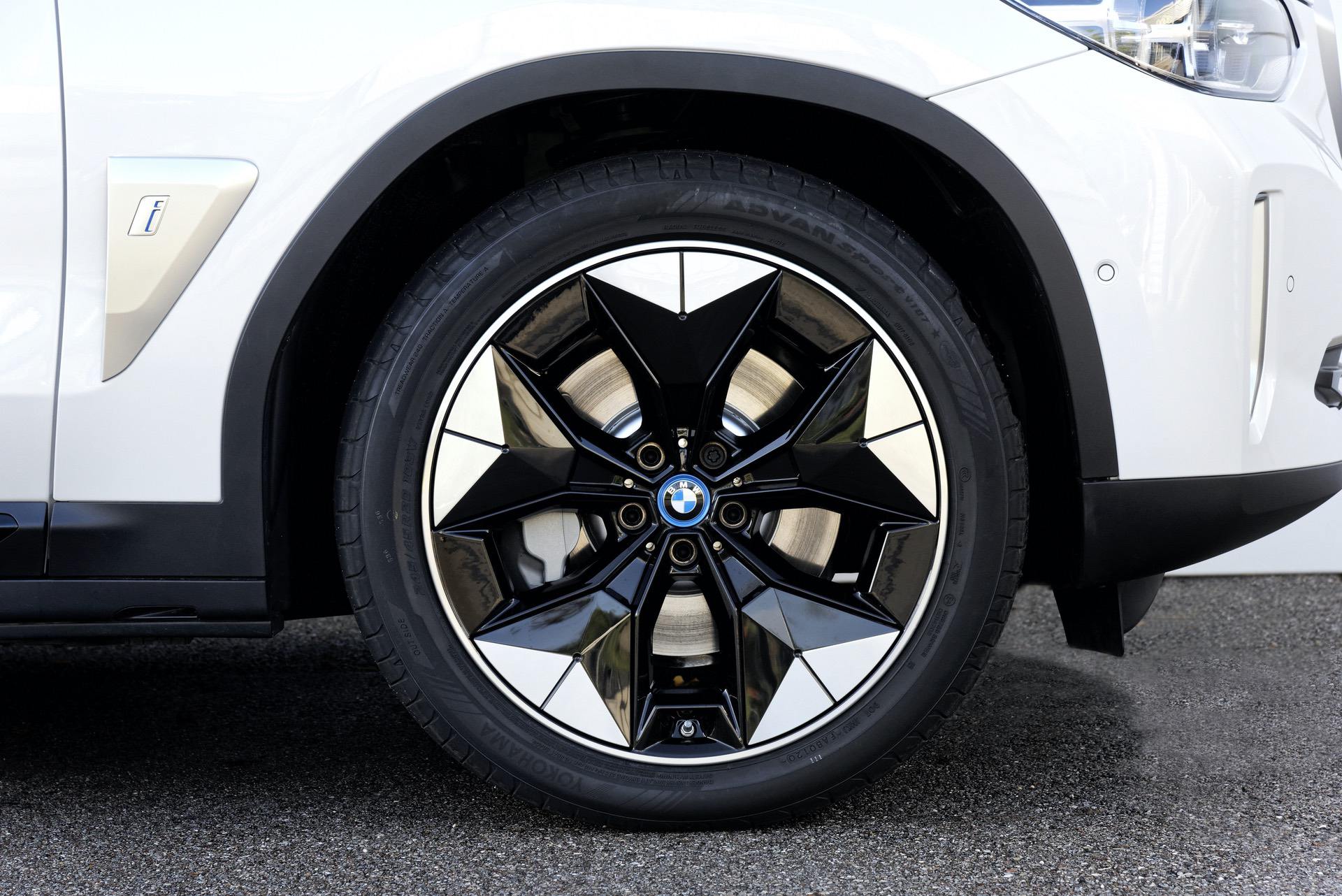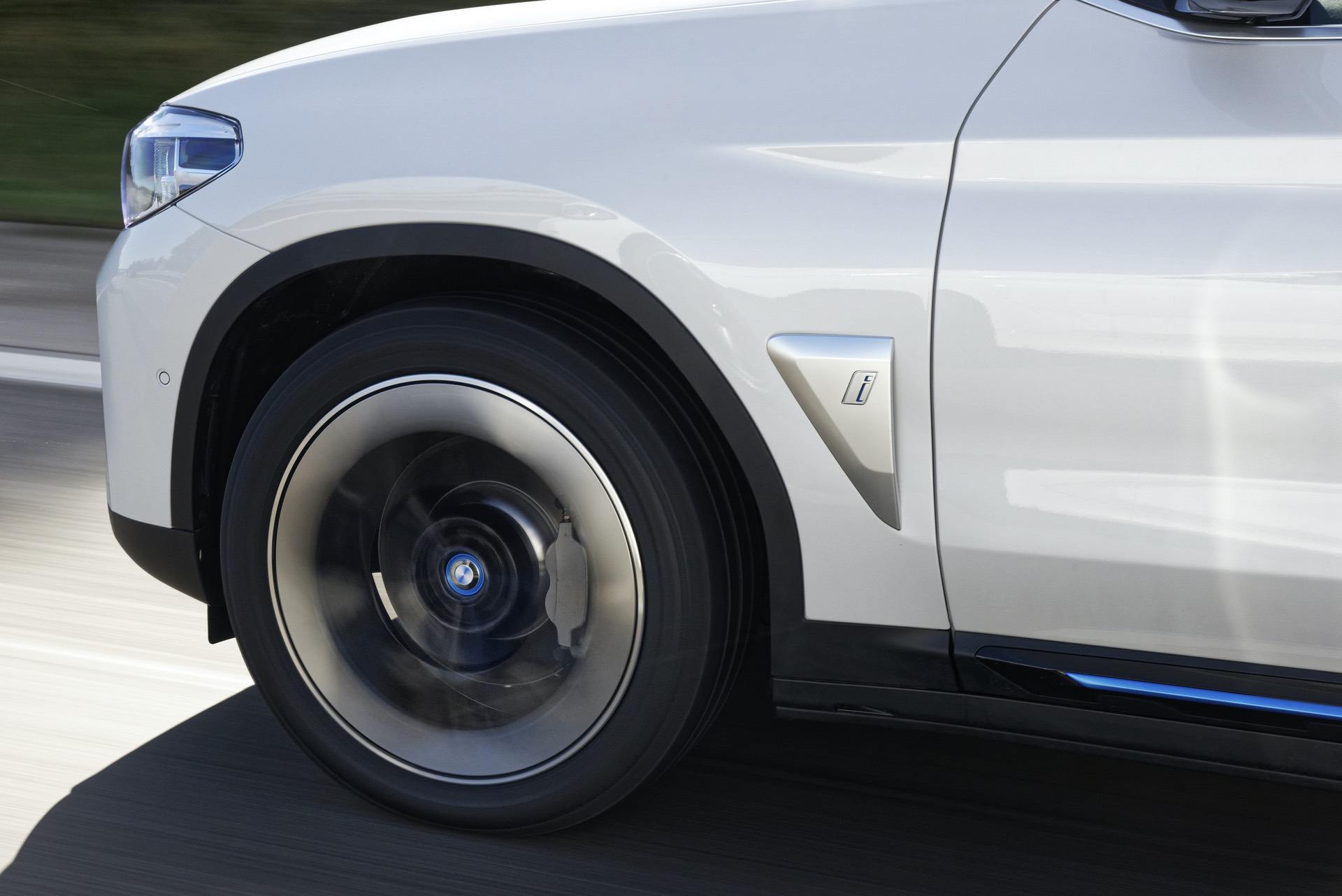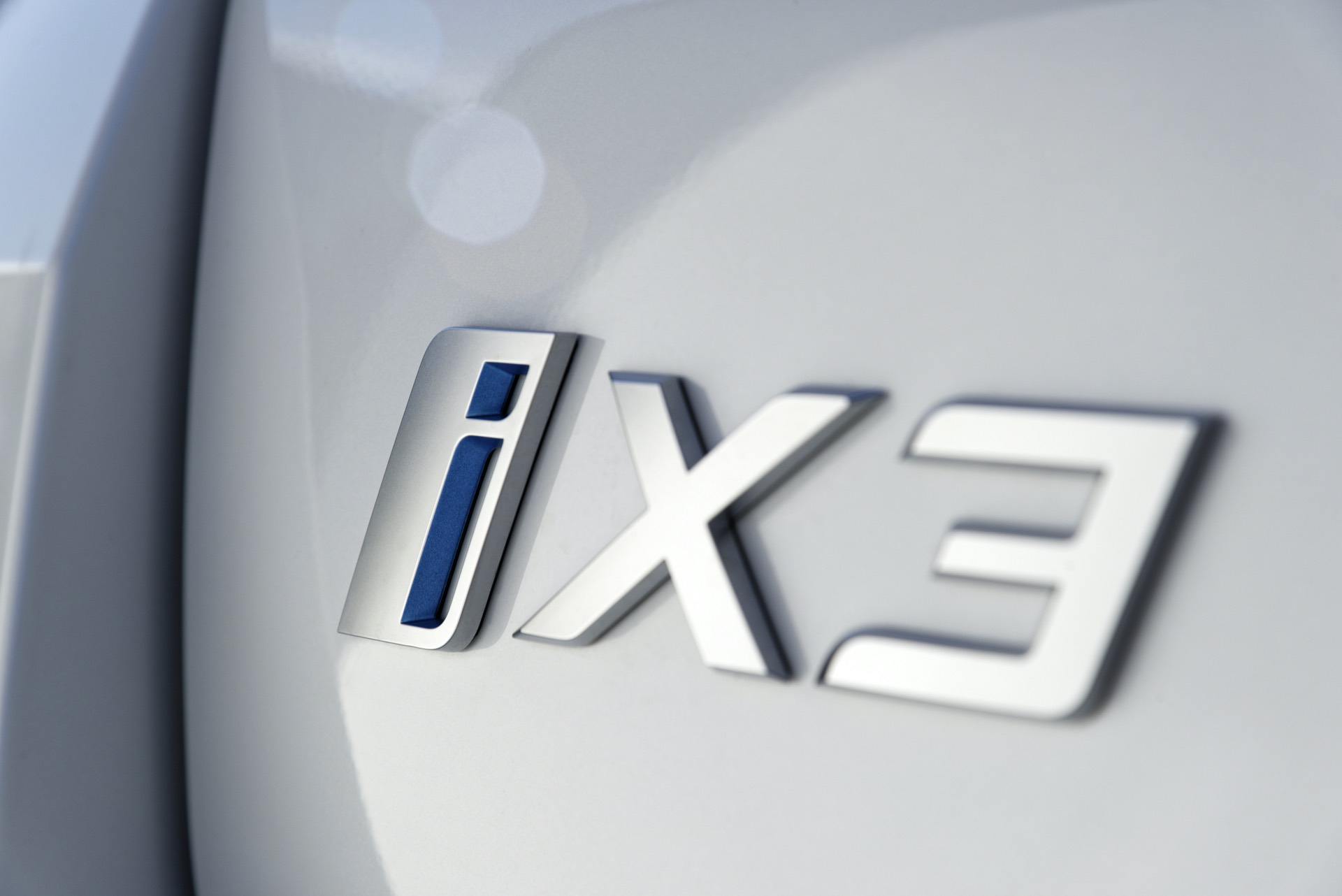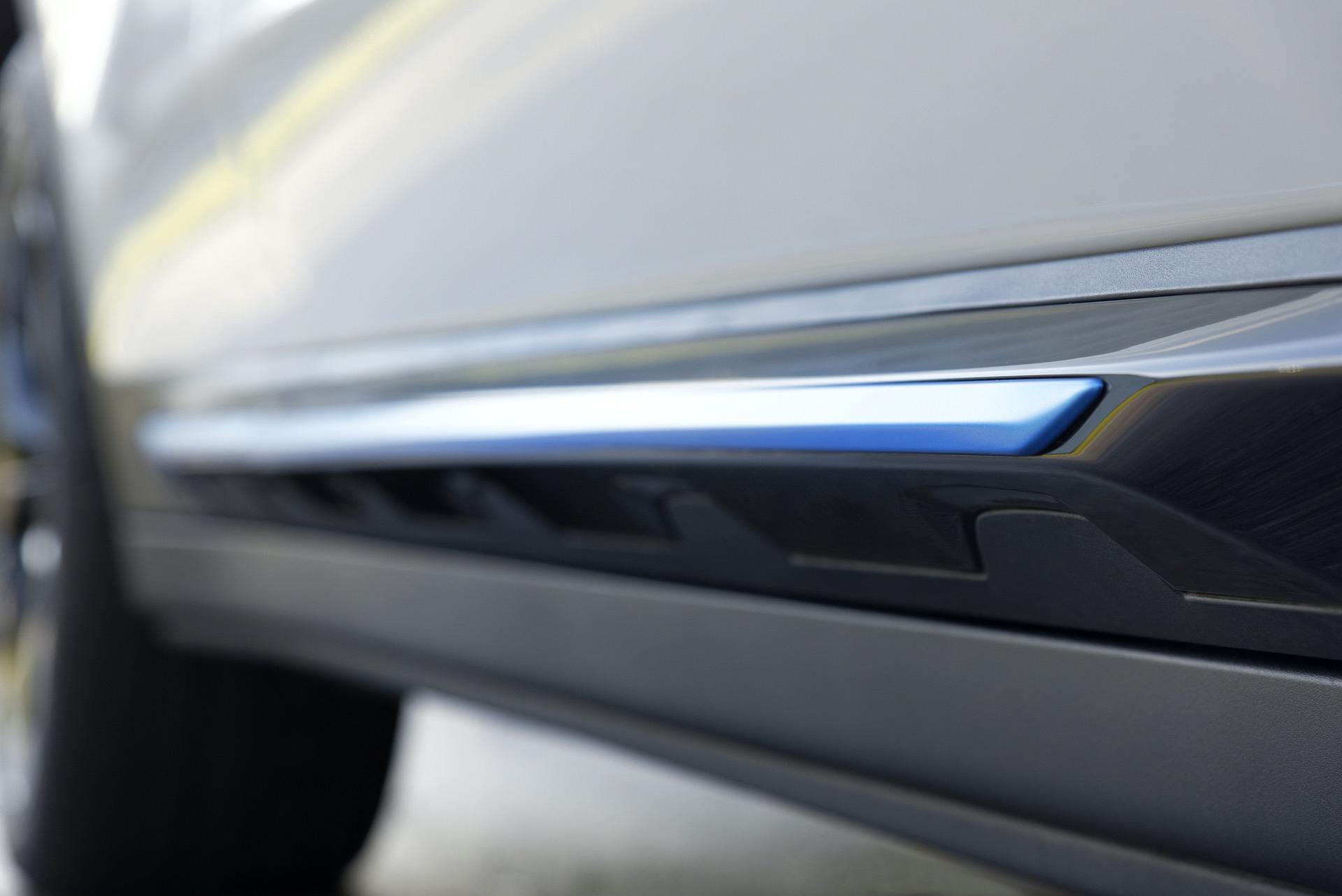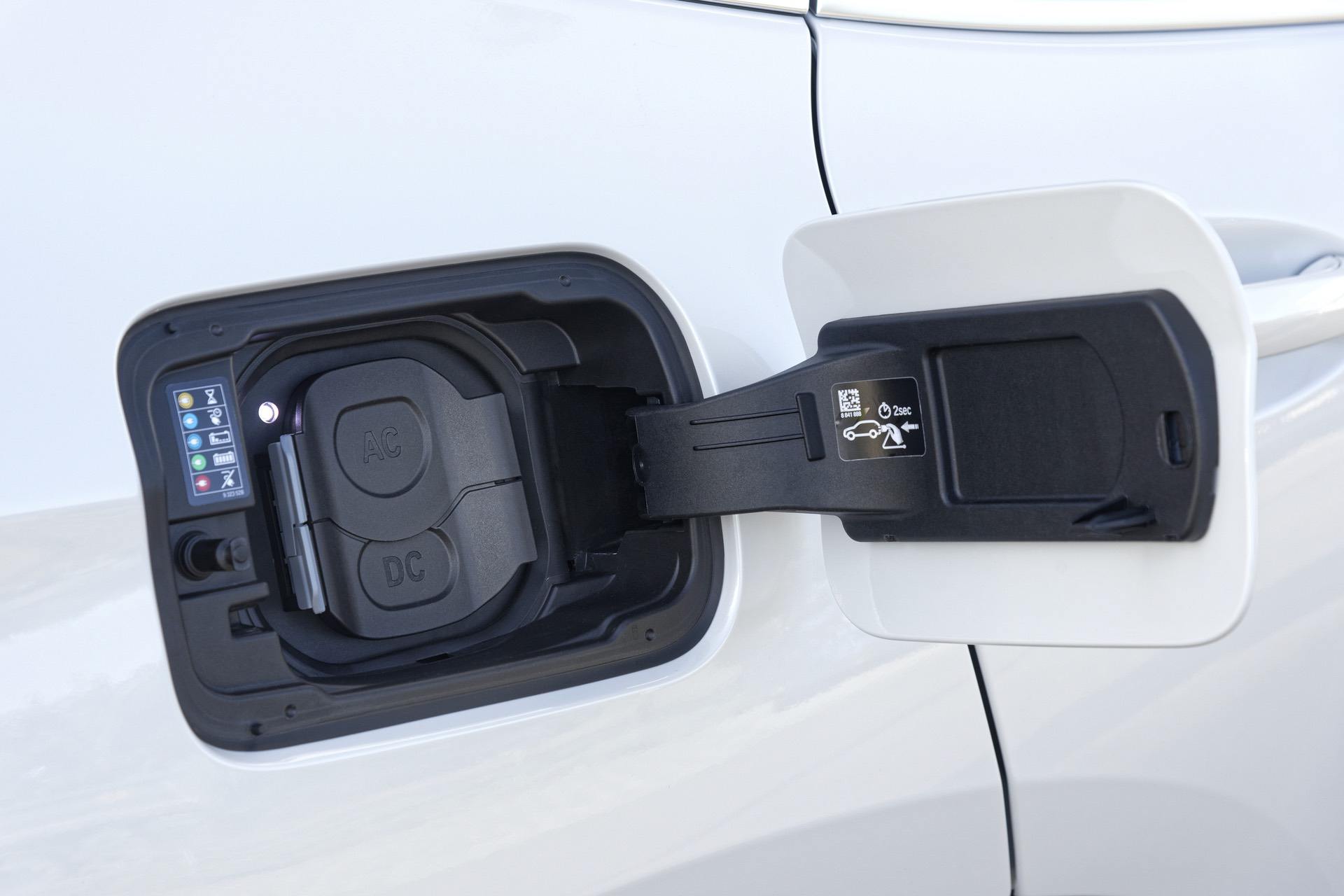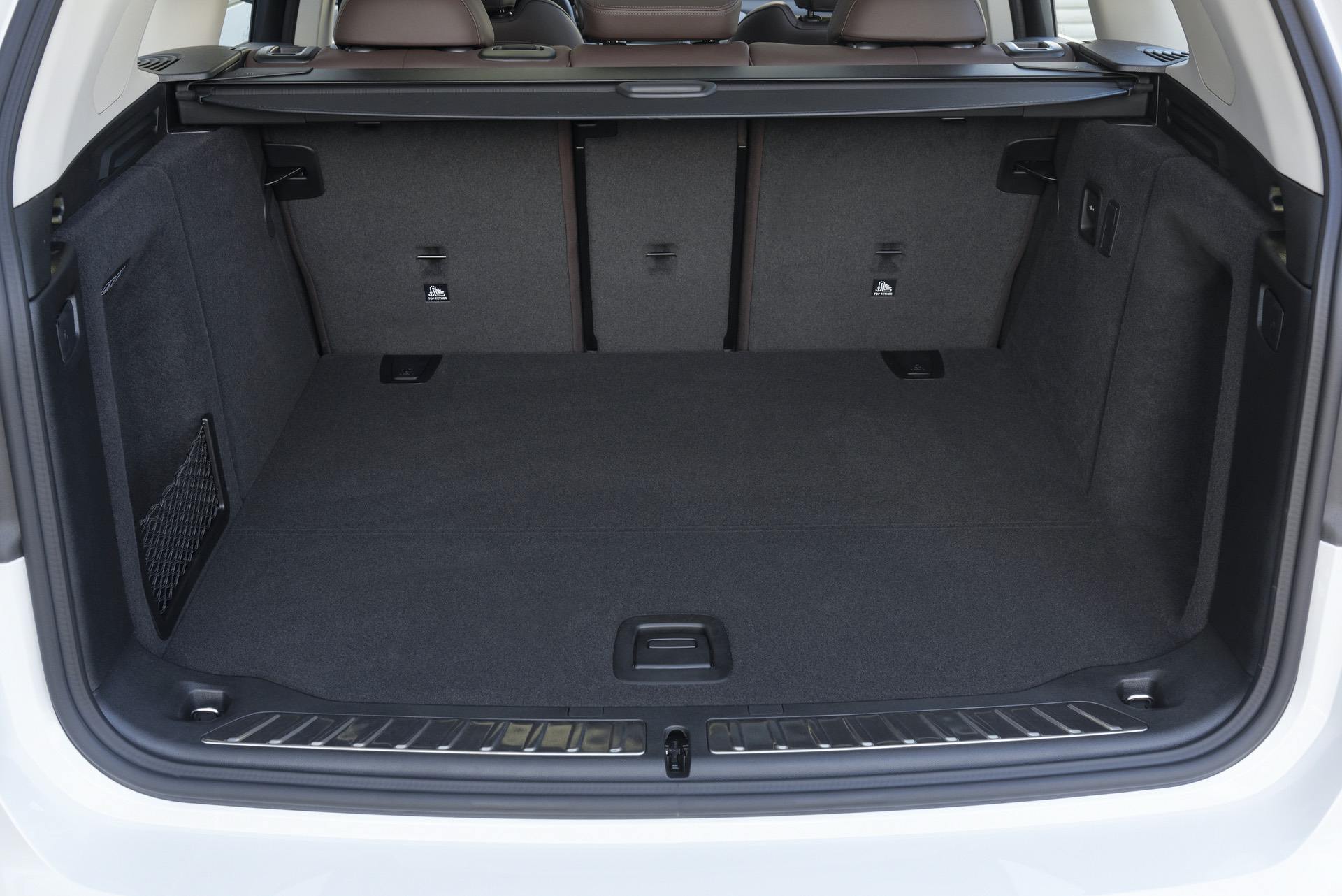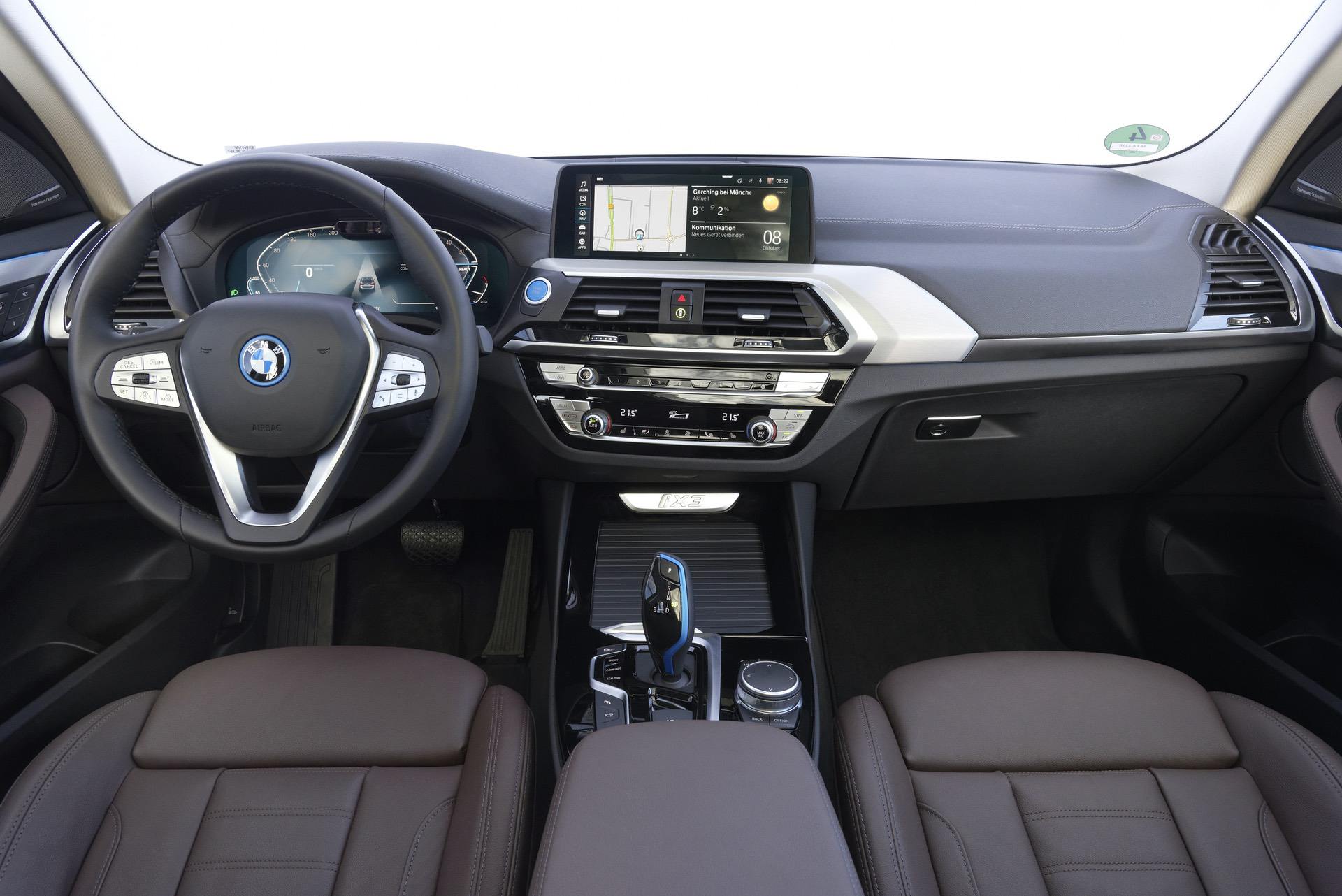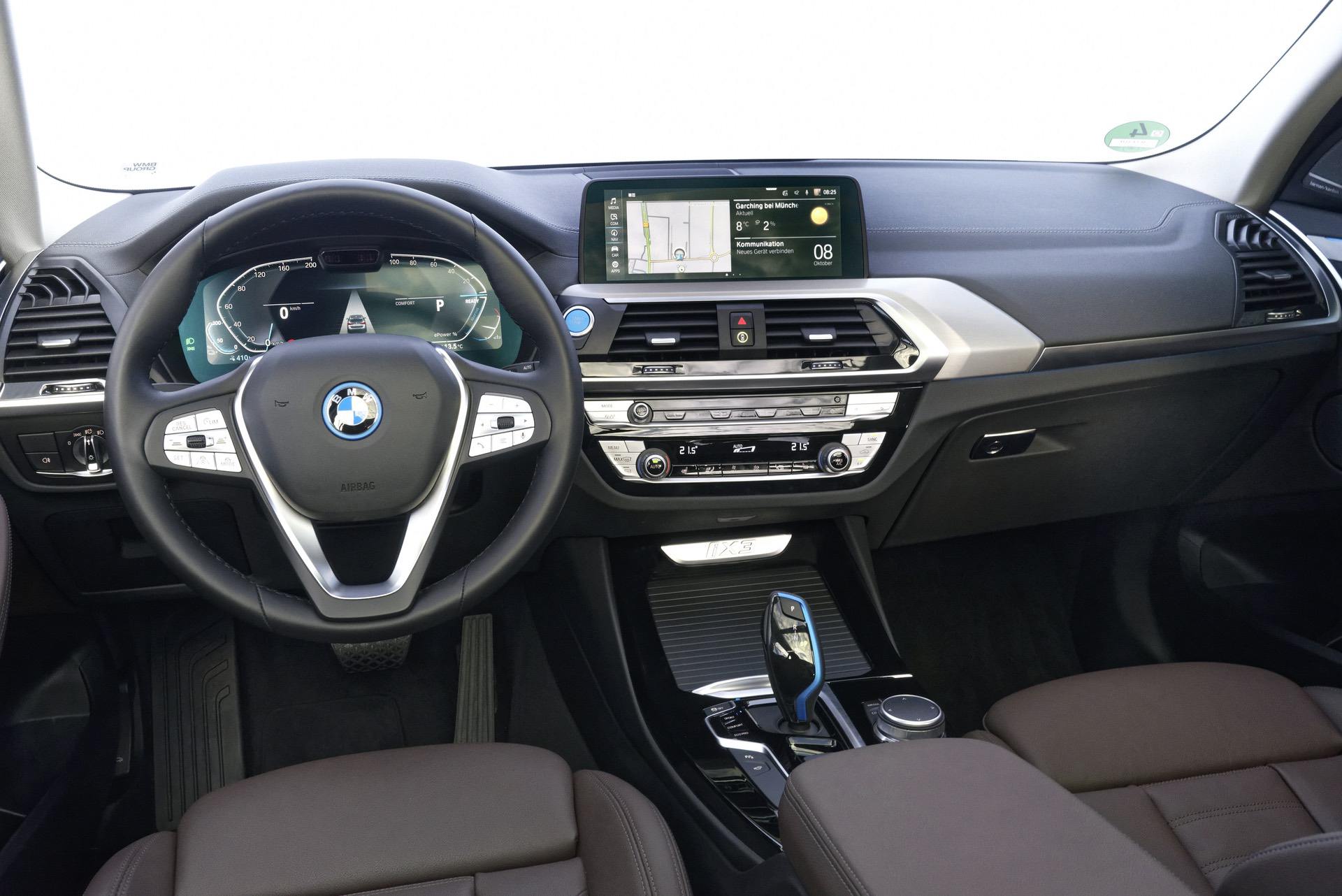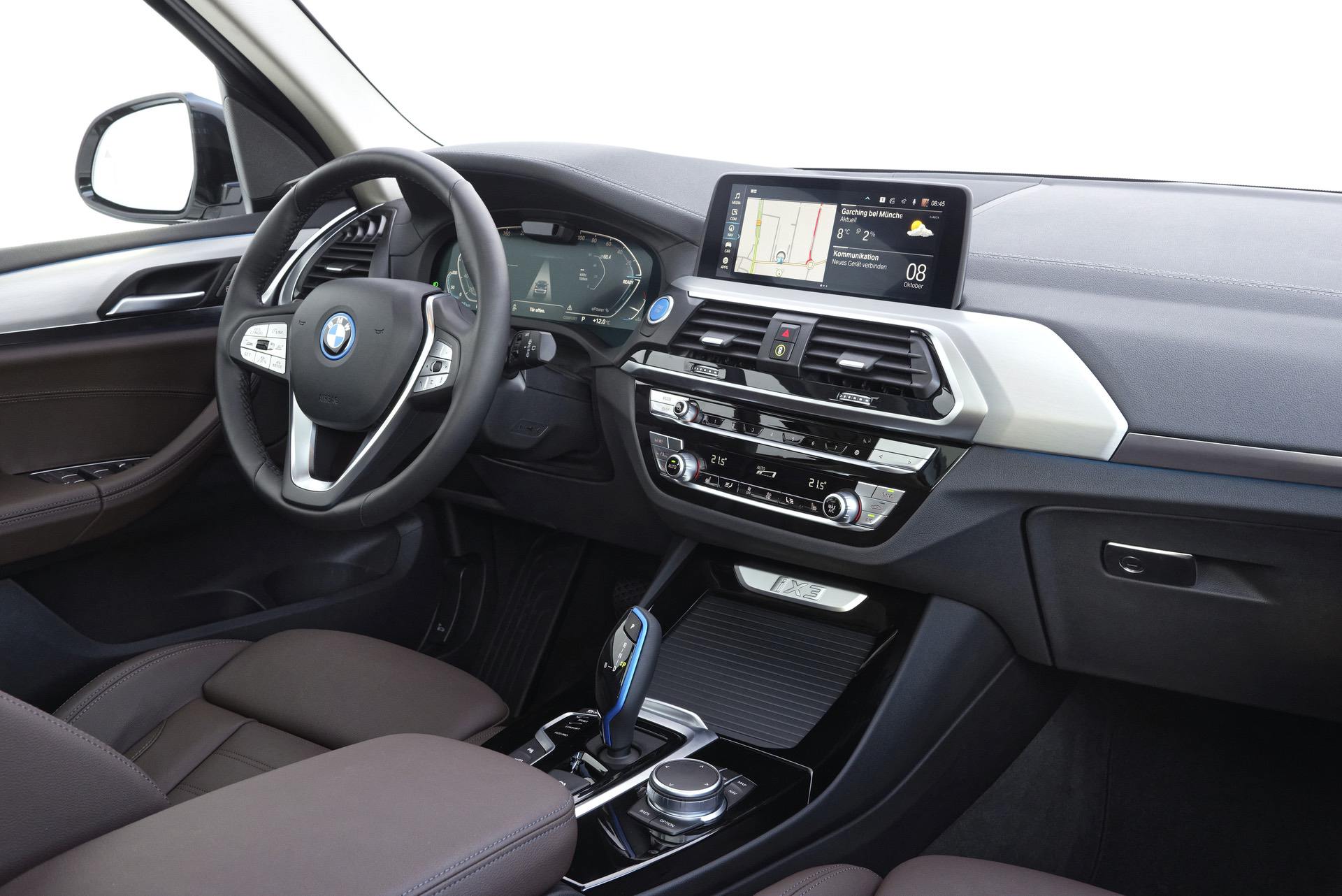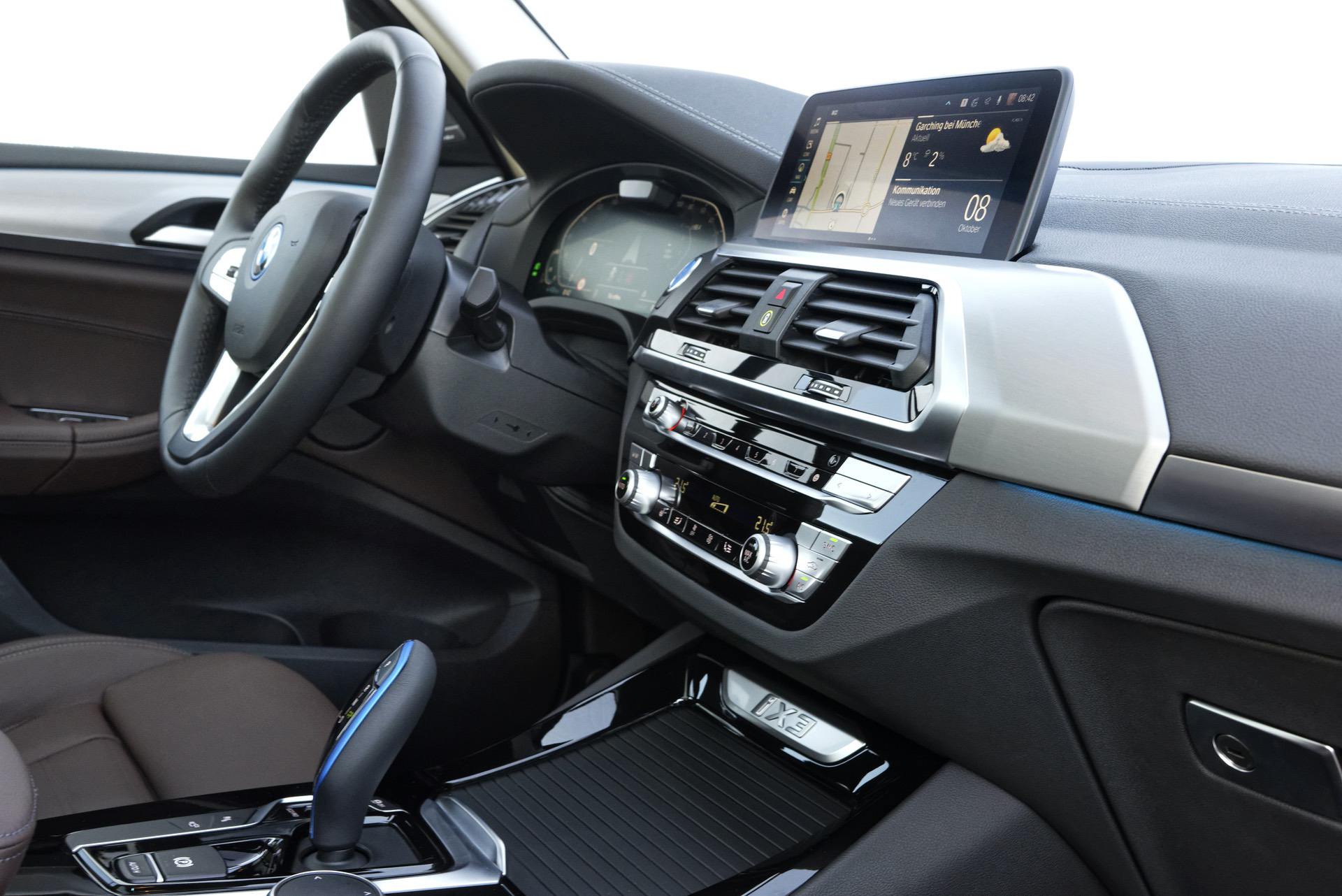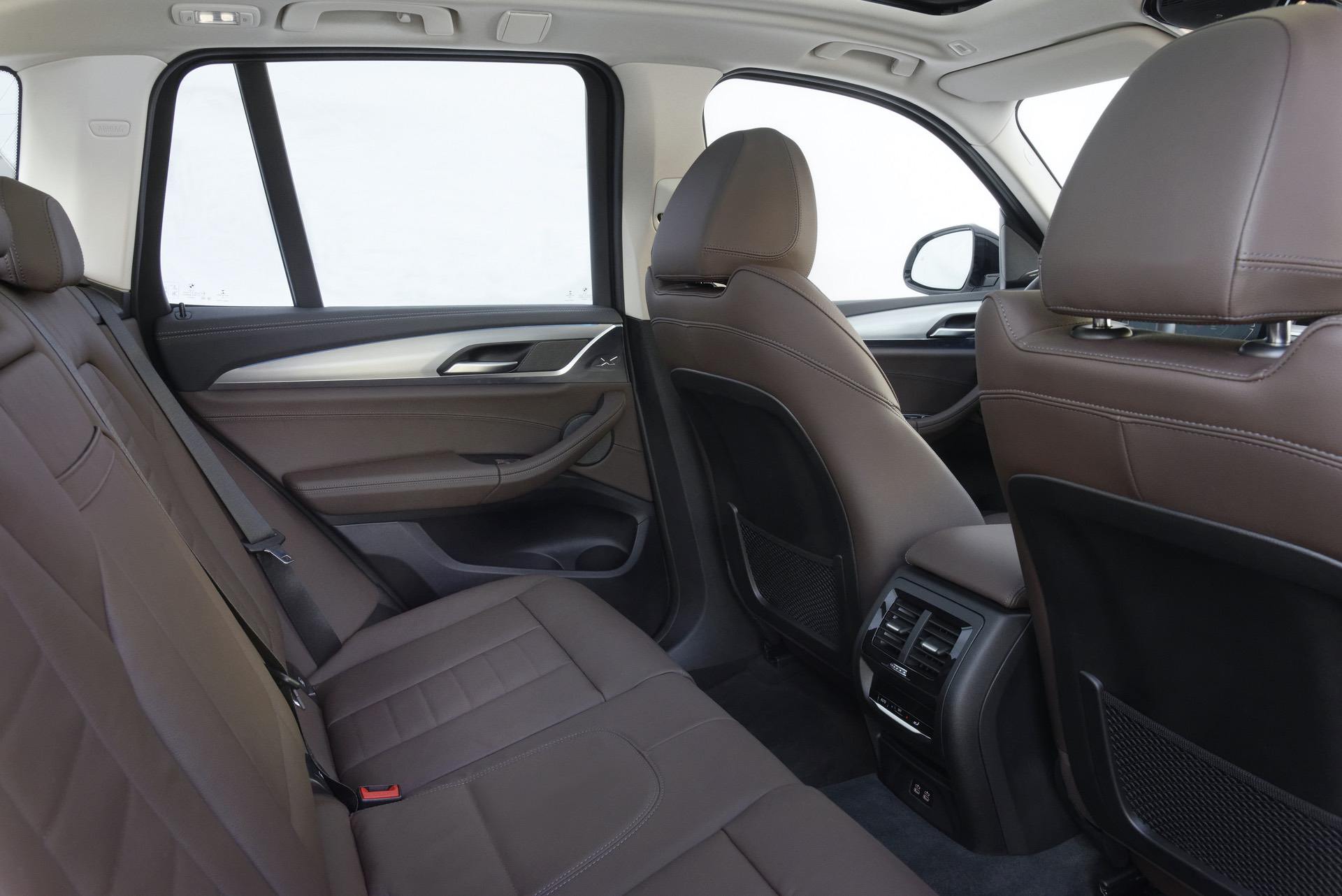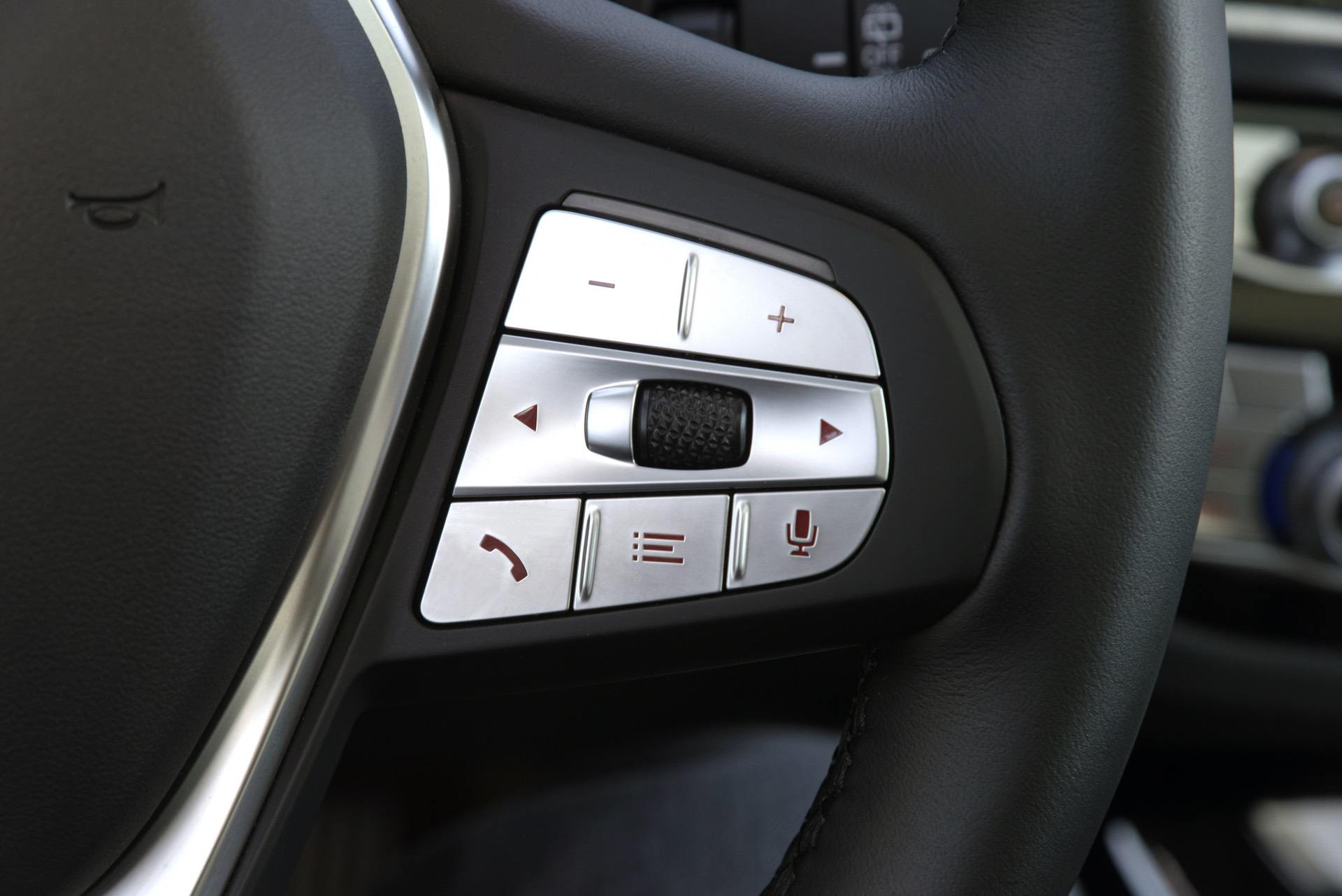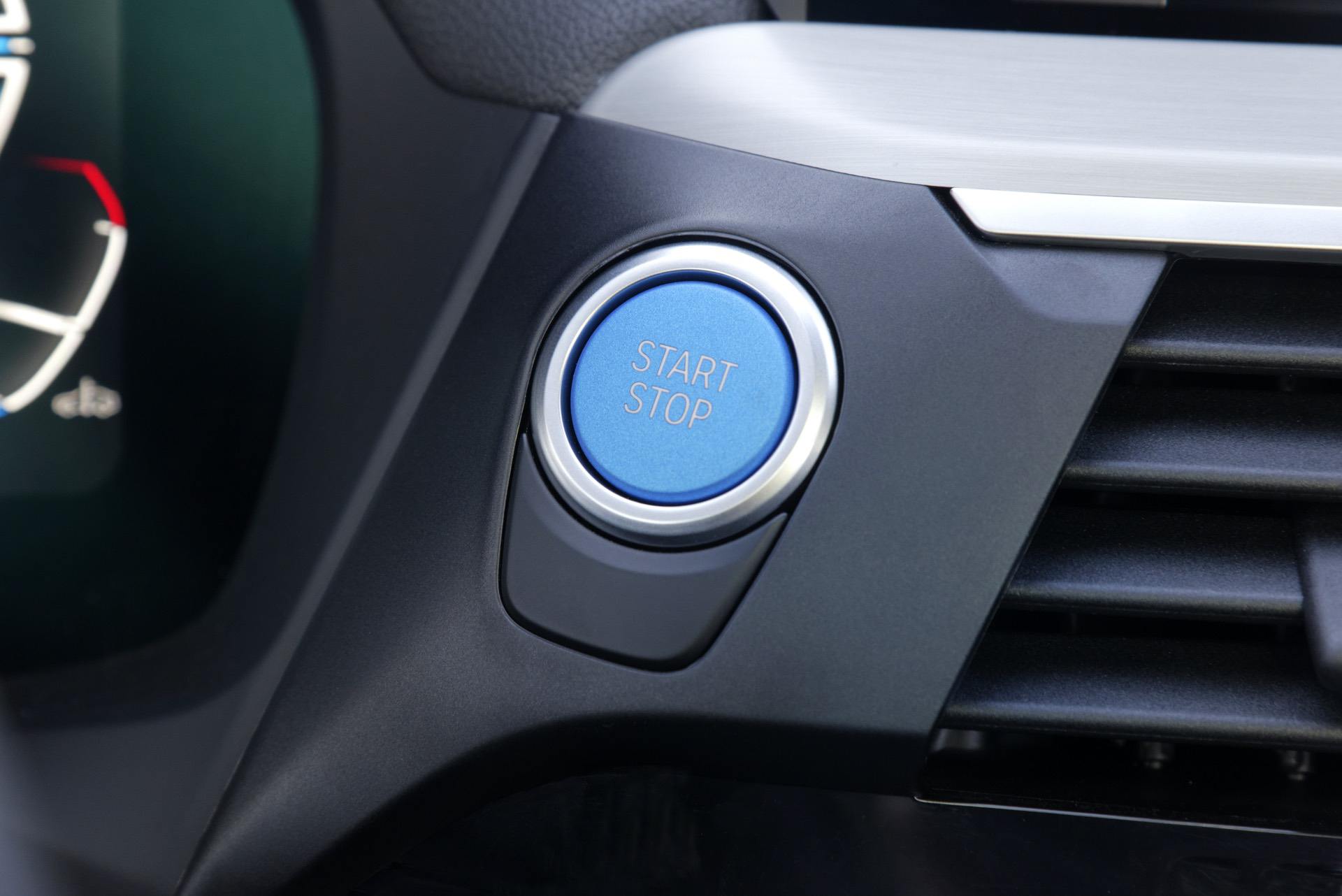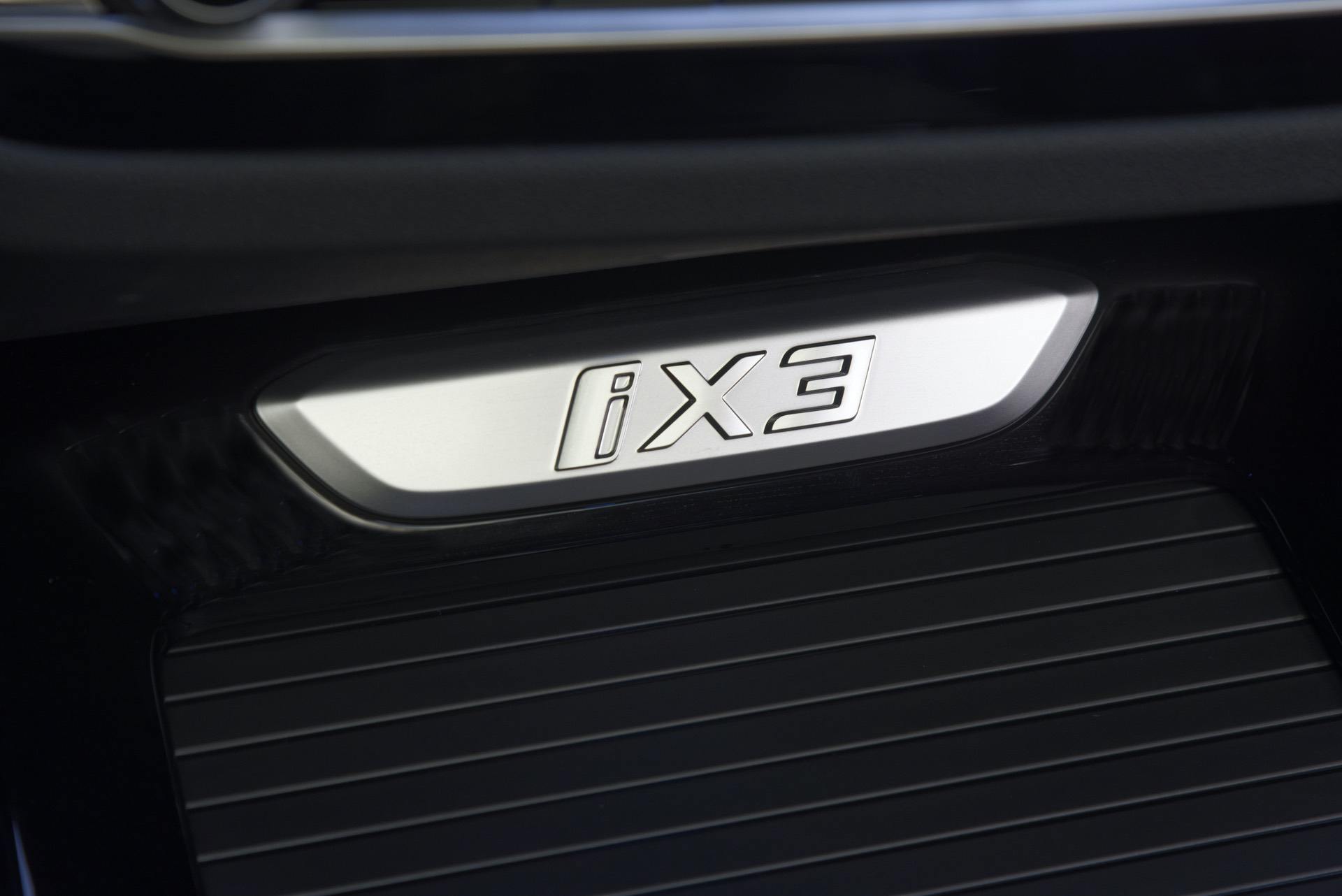Nearly 10 years ago, back in February 2011, BMW launched its sub-brand BMW i. The first concept cars of the brand, the BMW i3 and BMW i8, were presented at the Frankfurt Motor Show in the same year. From 2013 onwards, BMW i started to offer their first first full-electric vehicle – the BMW i3. Seven years after the market launch, we saw the 200,000th unit of the i3 model rolling of the production line in Leipzig. To date, the BMW i3 is the only mass-produced, fully electric vehicle offered by BMW. Arguably, we can also include the MINI Cooper SE as part of the BMW Group electric offerings.
But this is going to change soon. BMW will launch the all-new iX3 in the beginning of next year and deliveries in the European Union are expected to arrive at customers already by the end of January 2021. From this point onwards, the BMW iX3 will be the third, fully electric vehicle of the BMW Group and is supposed to boost BMWs market share for electric vehicles. The Bavarians are aiming to increase their current market share of 14% for plug-in hybrid vehicles and battery electric vehicles to up to 50% by 2030.
A Flagship Electric Model. Until The iX
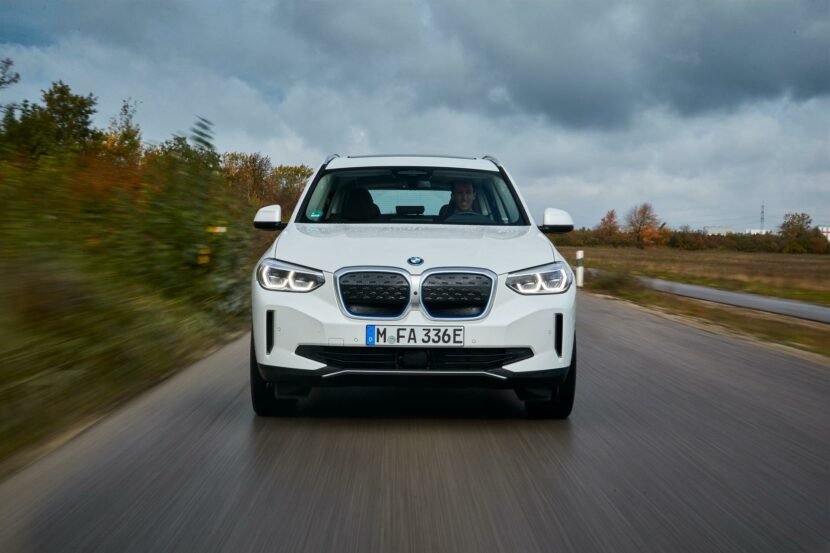 Besides the goal of increasing sales figures and market share, the 2021 BMW iX3 is also a flagship project for the entire BMW Group. The iX3 is a pioneering role model of the BMW lineup and completes the X3 model line, which is now available with a choice of all available drive options.
Besides the goal of increasing sales figures and market share, the 2021 BMW iX3 is also a flagship project for the entire BMW Group. The iX3 is a pioneering role model of the BMW lineup and completes the X3 model line, which is now available with a choice of all available drive options.
The X3 will become the first model to be available with a petrol or diesel engine, plug-in hybrid drive system or all-electric drive system. BMW calls this approach “Power of Choice”. Since market and customer requirements are different around the globe, BMW aims to provide the perfect solution for all individual situations. Additional BMW models are about to follow and should become available with all three drive options as well.
While the new iX3 is exclusively built at BMWs Shenyang manufacturing facility in China, the conventional X3 models remain to be built in Spartanburg, South Carolina.
Powertrain and Battery Tech
The 2021 BMW iX3 is powered by BMW’s fifth generation of eDrive technology. For the first time ever, the electric motor, the power electronics and the transmission are arranged in one central component. The maximum power output of the electric motor is 286 HP (210 kW) and a peak torque of 400 Nm (295 lb-ft) is immediately available.
The sprint from 0 to 100 km/h (62 mph) is done within 6.8 seconds. For the sake of comparison: A petrol-powered BMW X3 xDrive 30i needs 6.4 seconds. The maximum speed of 180 km/h (112 mph) is electronically limited.
The latest generation of high-voltage battery cells helps the BMW iX3 to increase the power density by up to 30 per cent compared to the BMW Groups existing fully electric vehicle, namely the BMW i3. A gross energy battery capacity of 80 kWh (74 kWh net capacity) enables the iX3 to achieve an operating range of 460 km (285 miles) in the WLTP test cycle. This translates to a power consumption of 19.5 kWh per 100 km.
The Exterior Design
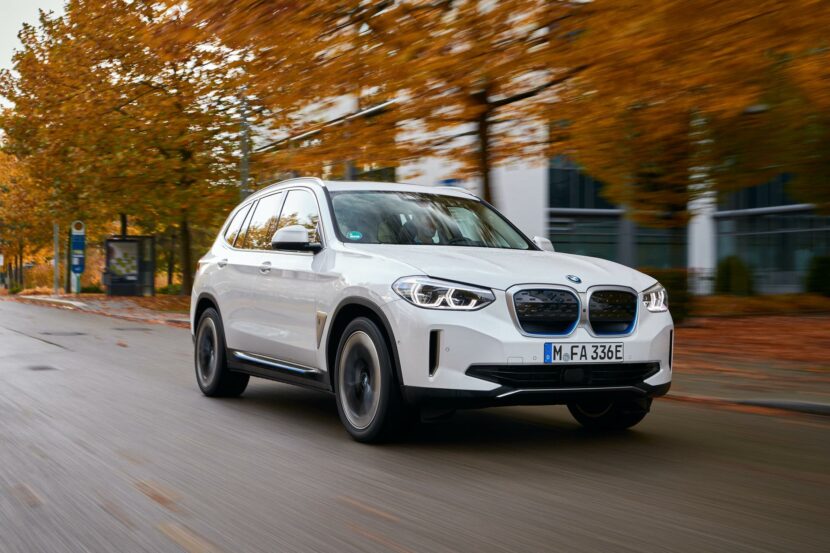 At first glance, the 2021 BMW iX3 resembles all other models in the X3 model range in terms of shape and design. But if you take a closer look, you will notice some details that make the iX3 stand out from the crowd. There is, for example, the new BMW i specific kidney grille design at the front.
At first glance, the 2021 BMW iX3 resembles all other models in the X3 model range in terms of shape and design. But if you take a closer look, you will notice some details that make the iX3 stand out from the crowd. There is, for example, the new BMW i specific kidney grille design at the front.
Since the conventional ventilation flaps are no longer needed for an electric motor, the iX3 now features a closed kidney in a new, typical mesh design with BMW i blue accents at the bottom. At the rear, the iX3 has special blue panels on the left and right side of the diffuser, and, of course, the model-specific iX3 badge on the left side below the rear light.
Driving the BMW iX3
My test drive with the iX3 started in Garching where the BMW press fleet is located. It was a grey and rainy Saturday morning and the chance of rain was 100 percent. It was a typical rainy day for Munich in the fall, when nobody leaves the house without a purpose. But I had a good purpose. The battery of the BMW iX3 was fully charged and the navigation system was pre-programmed with several different routes on which the driving characteristics could be tested extensively.
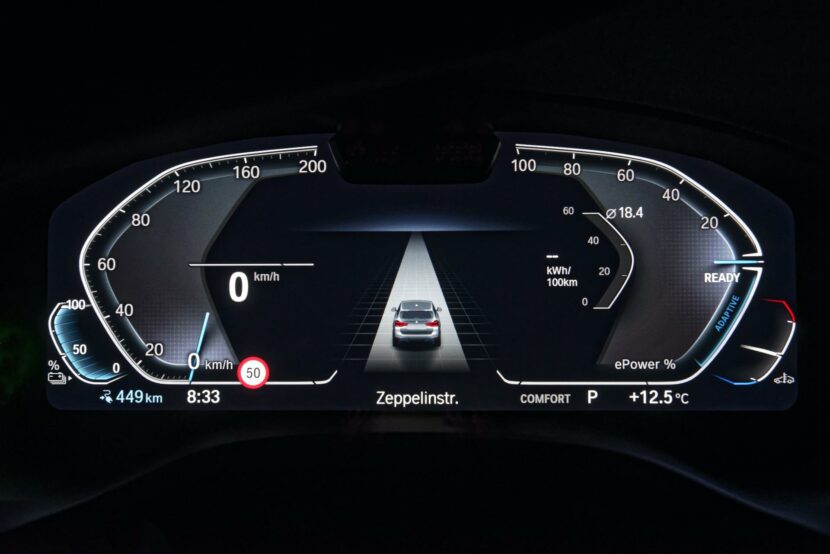
When I entered the car, a maximum range of 449 km (279 miles) was shown on the lower left side of the digital cockpit. My preprogrammed route will lead me through the Bavarian countryside, east of Munich. The route should cover a total distance of roughly 130 km (80 miles) and should last about two hours.
After the first few kilometers, I was eager to test how the iX3 is doing in terms of acceleration and recuperation and switched the car to SPORT mode. Especially due to the wet and slippery road conditions I soon realized that I don’t drive a car with BMW’s intelligent all-wheel system xDrive.
Furthermore, the weight distribution of the iX3 is 43 (front) to 57 (rear), which means that 57 percent of the weight is allocated to the rear axle. Although this weight distribution emphasizes the typical BMW rear-wheel drive character, you should be a little more cautious at the beginning. Especially when you drive on slippery roads and when the maximum torque is instantly available.
Once I was accustomed to the specific drive characteristic of the iX3, I was ready to test BMW’s latest feature for electrified vehicles – the so called Adaptive recuperation. The feature is automatically adjusting the brake energy regeneration by detecting the current road situation and analyzing the data of the navigation system.
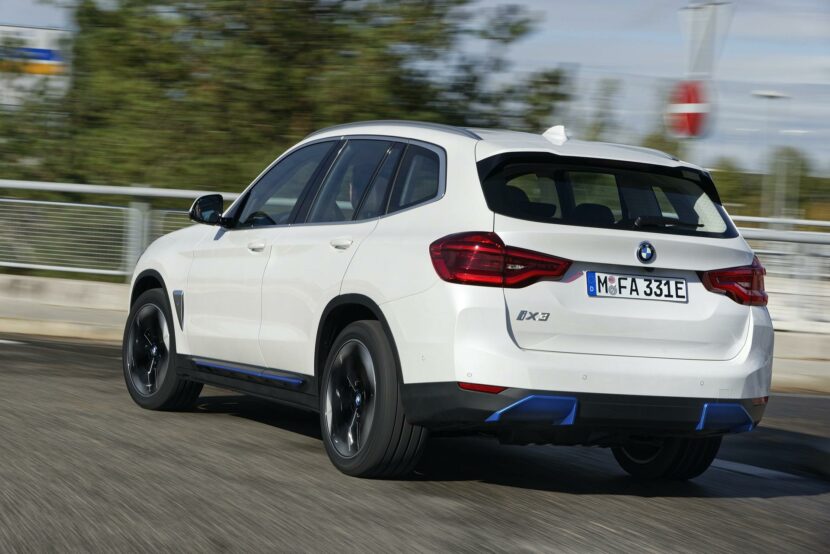
On the several occasions I ran through some tight curves, the car initiated the braking mechanism automatically to the maximum power which was appropriate for the respective situation. This function allows the iX3 to make full use of the brake energy in order to charge the battery.
The last part of the drive took me via the Autobahn A94 towards Munich and from there back to the BMW press center in Garching. But before I would drive via the city center of Munich to Garching, I was able to experience the iX3 on an unrestricted part of the Autobahn at maximum speed.
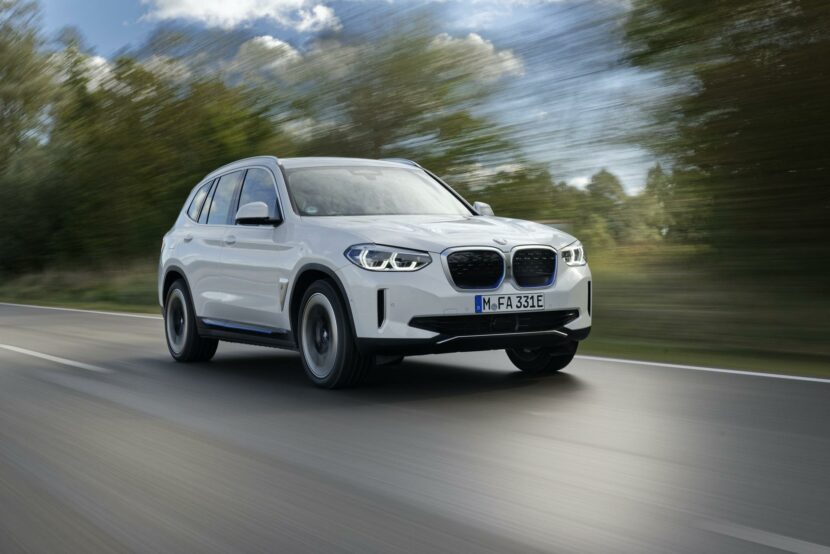
I switched the driving experience to the SPORT mode and the iX3 immediately felt stiffer and the steering was more direct and precise. At the maximum speed of 180 km/h (112 mph) the car was very stable and easy to control. It felt like the iX3 could have gone even faster with ease.
Also a glance at the electric range did not come as a negative surprise. The remaining electric driving range didn’t suddenly collapse, but only gradually decreased, in accordance to the current driving speed.
At the end of my test drive I was quite impressed by the overall performance and suitability for everyday use. On my trip through the Bavarian countryside I was able to cover a total distance of 130 km (80 miles) on pure electric power and my average energy consumption was 21 kWh per 100 km.
This figure is quite close to the official WLTP rating of 19.5 kWh per 100 km. The remaining range of the iX3 was shown with 230 km (143 miles) when I returned the car.
Price and Availability
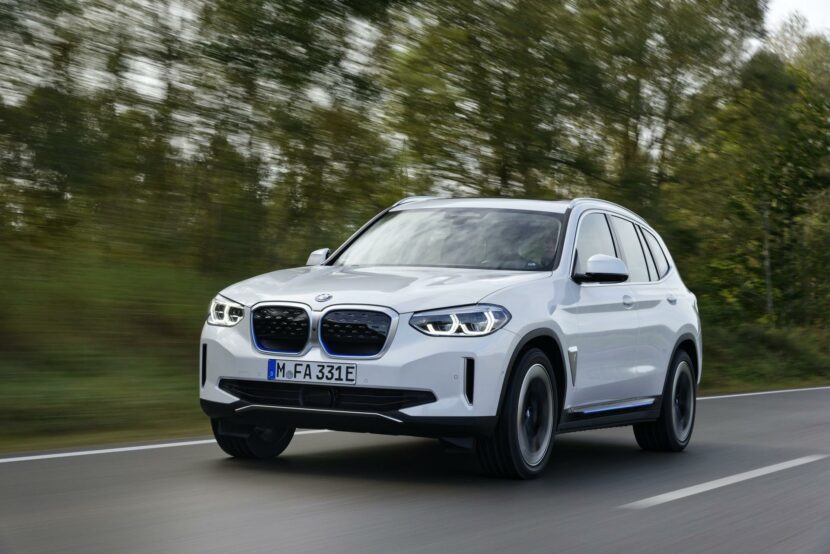
The BMW iX3 arrives at European customers by the end of January 2021. The base price for the car starts in Germany at 66,300 EUR incl. 19% VAT. Customers in the United Kingdom are asked to pay at least GBP 57.945 incl. VAT. BMW officials confirmed that no pricing for the United States is announced, since it’s not planned to bring the BMW iX3 to North America.
Should I Buy One?
The 2021 BMW iX3 can do almost everything what the conventional X3 can do. It can accommodate five passengers and their luggage and is able to cover long distances with a fully charged battery. If you don’t push the accelerator pedal too hard, a realistic range of 400 km (248 miles) is certainly possible.
In addition, the iX3 also offers state of the art connectivity, driver assistance systems and BMW’s latest eDrive technology. In the end there may be only one feature that customers will miss. And this could be the xDrive all-wheel drive system. Although the enhanced rear wheel drive character of the iX3 is pure fun and a blast to drive, I would expect that customers choosing an X-model are certainly looking for an xDrive system as well.


